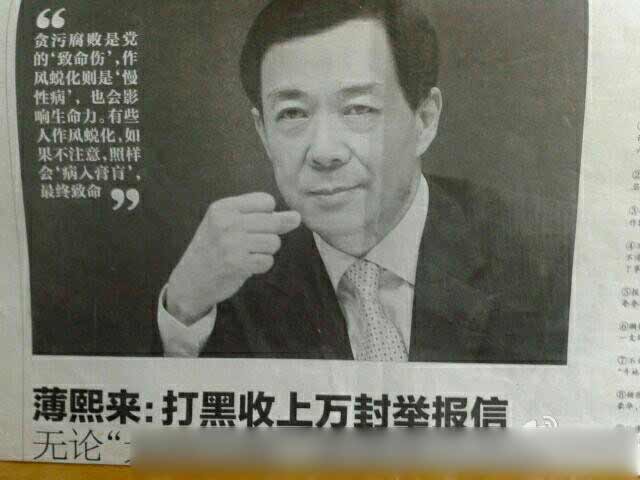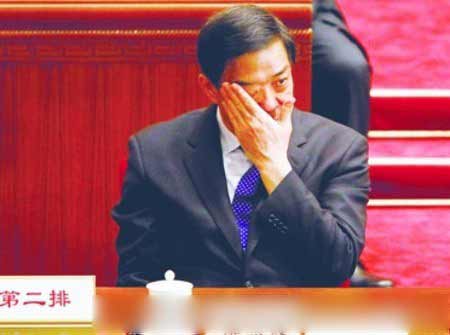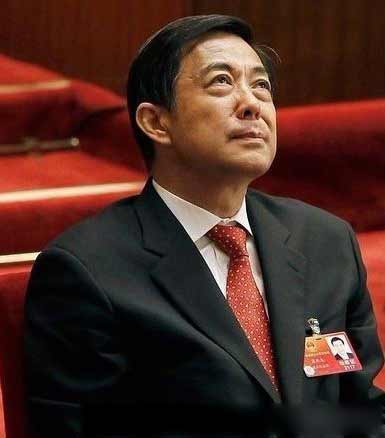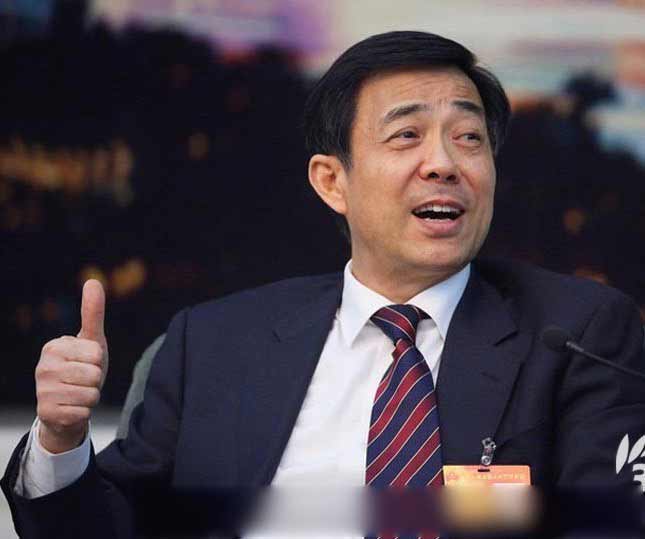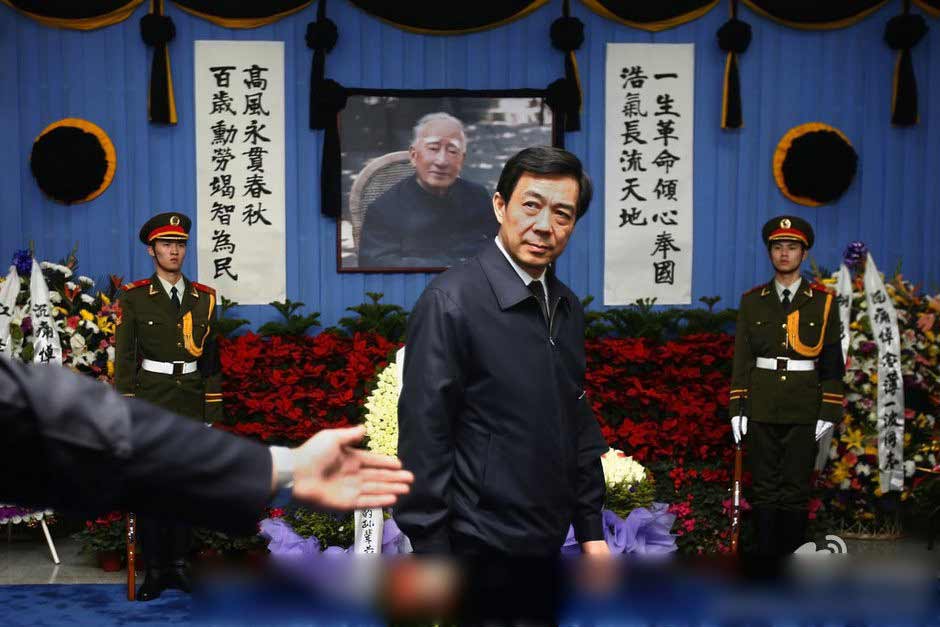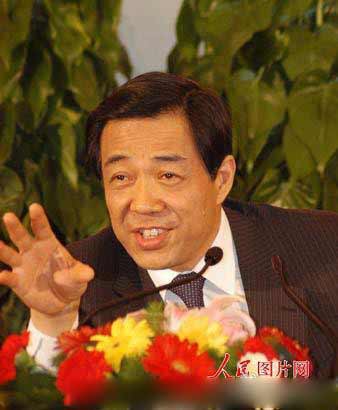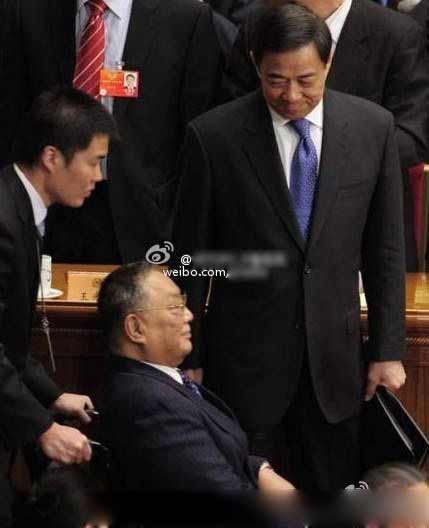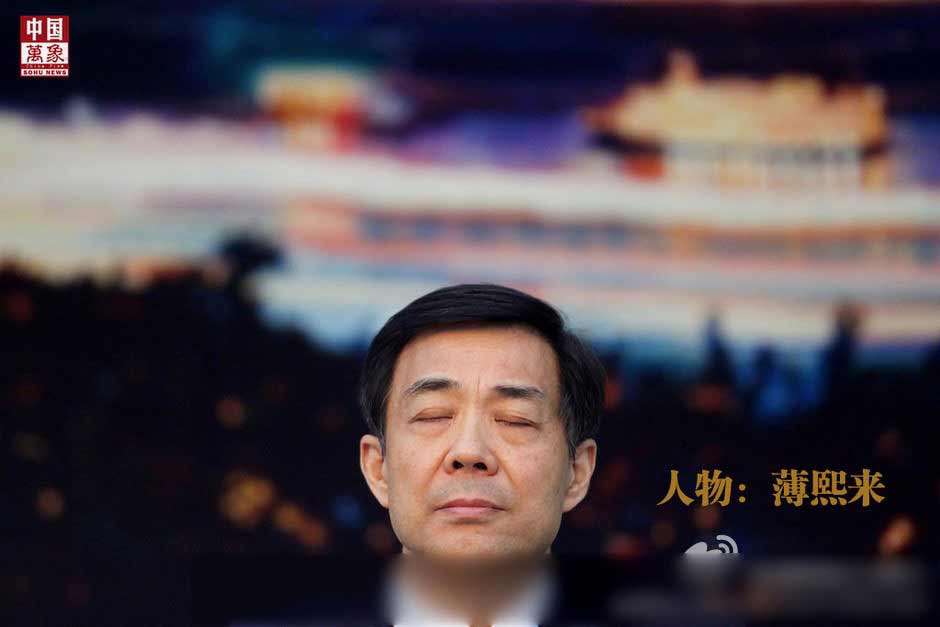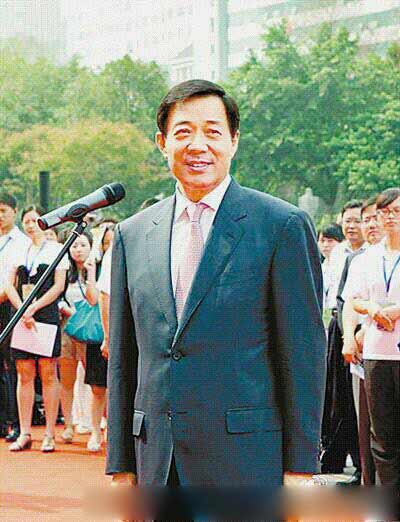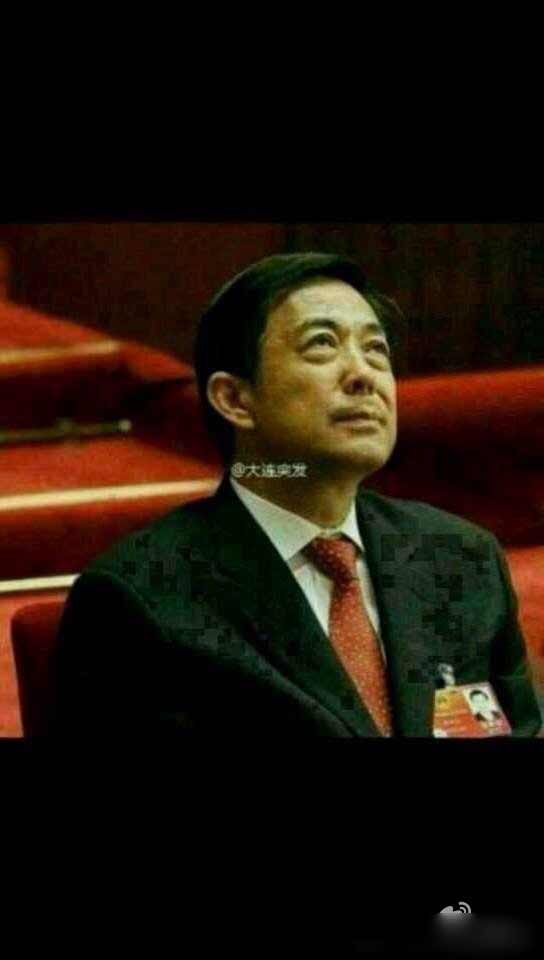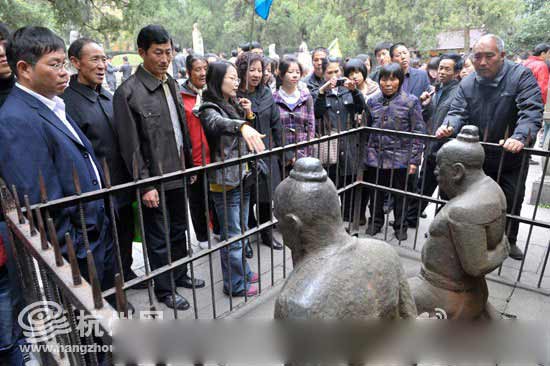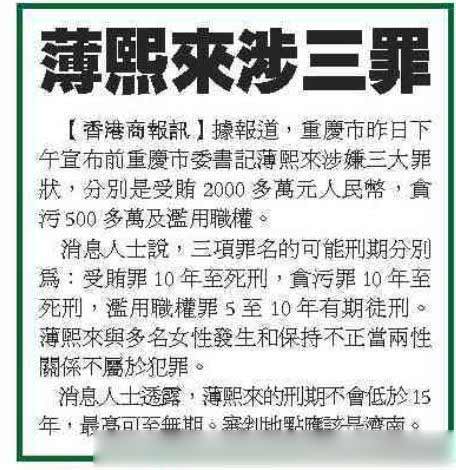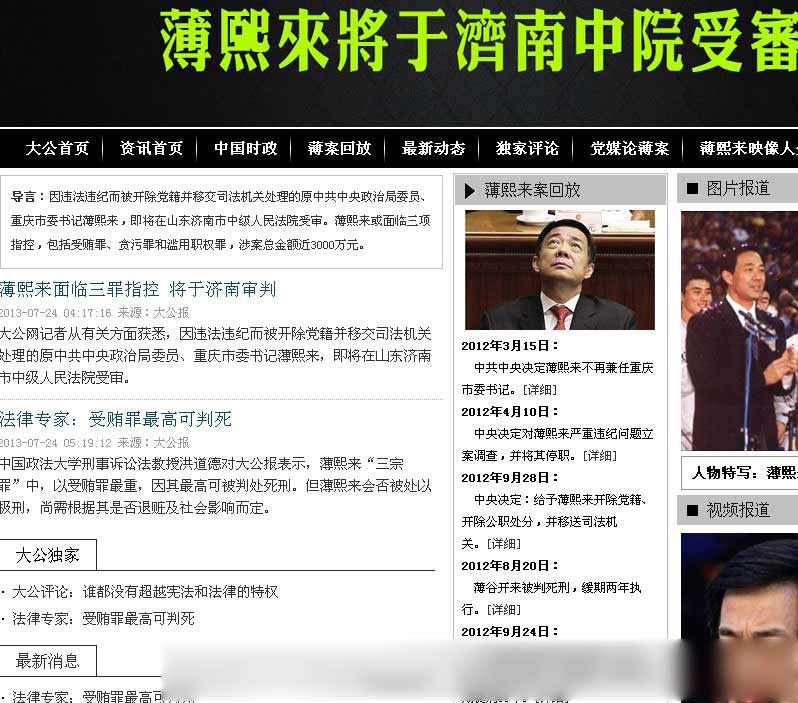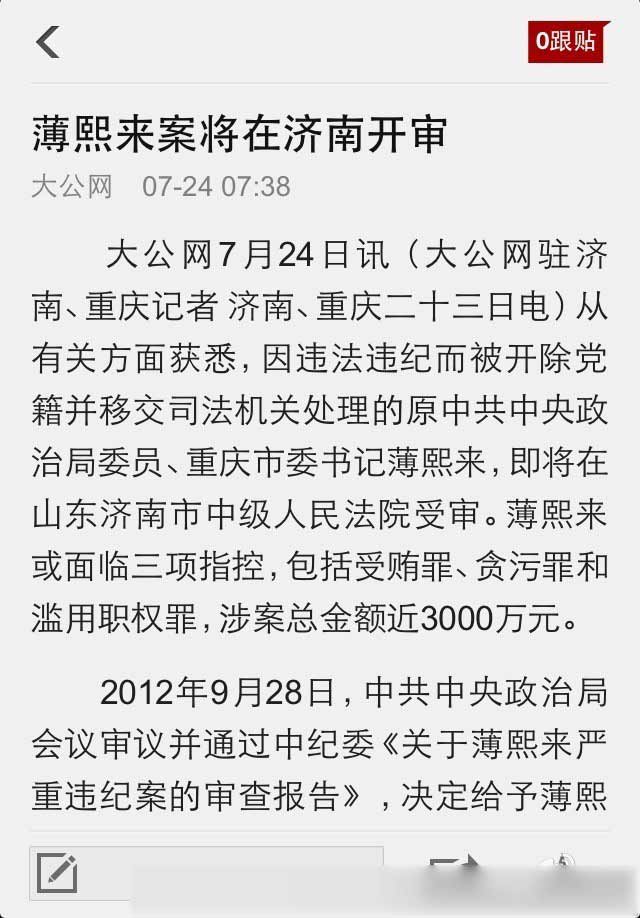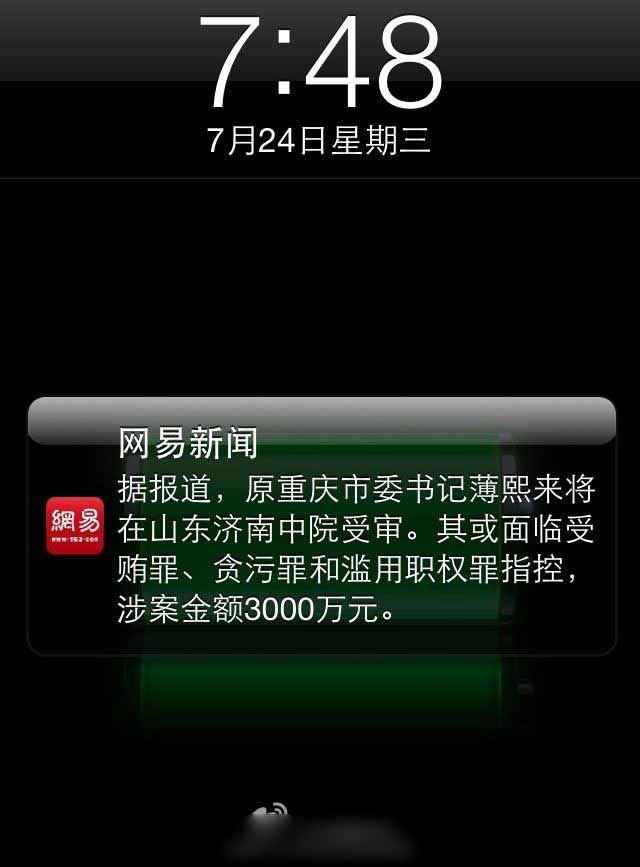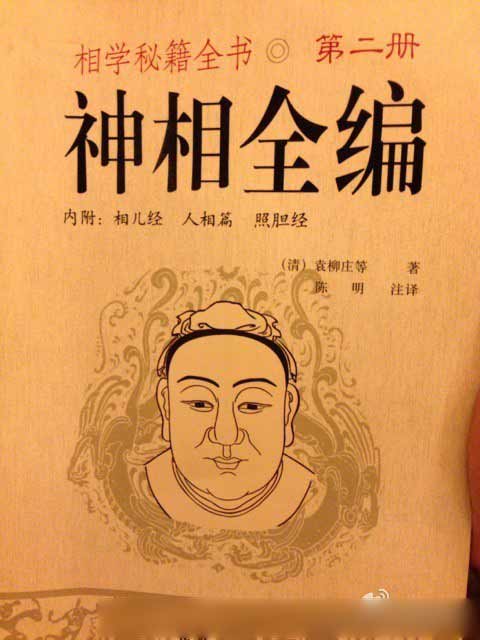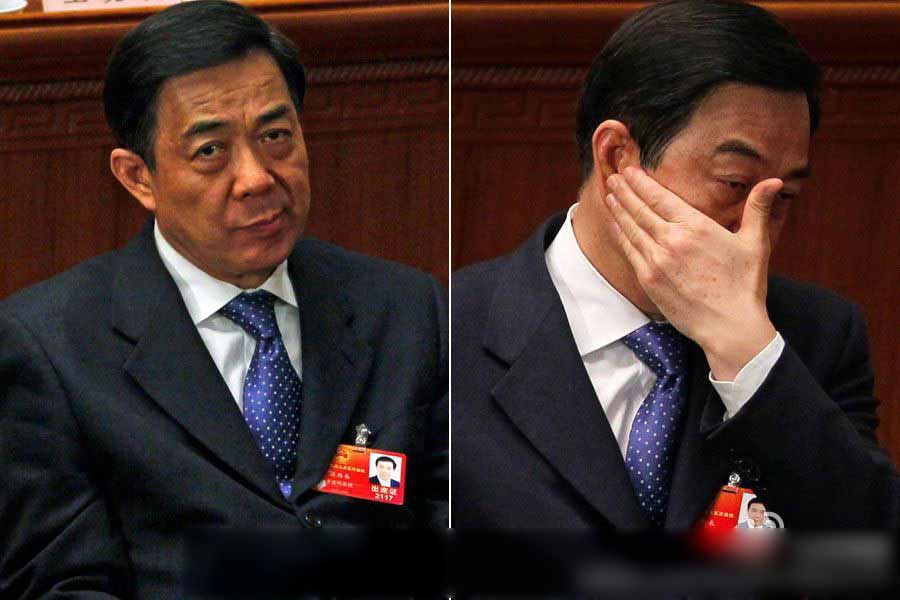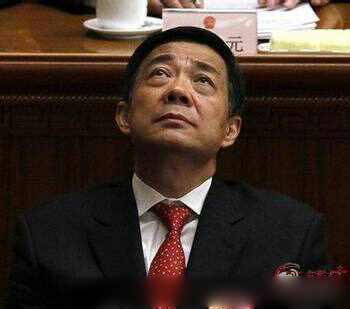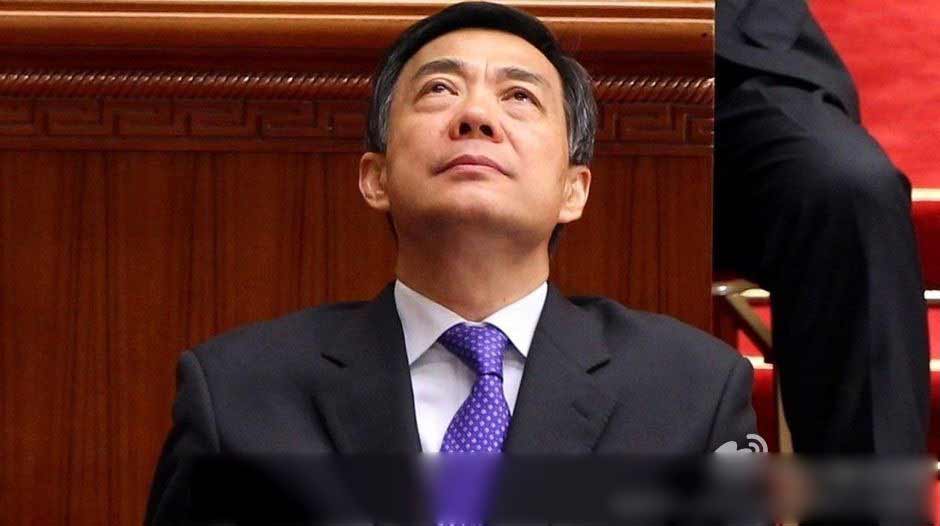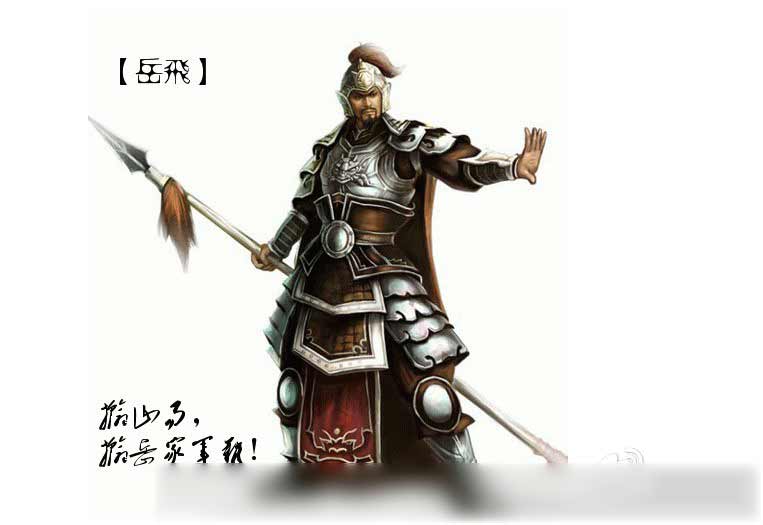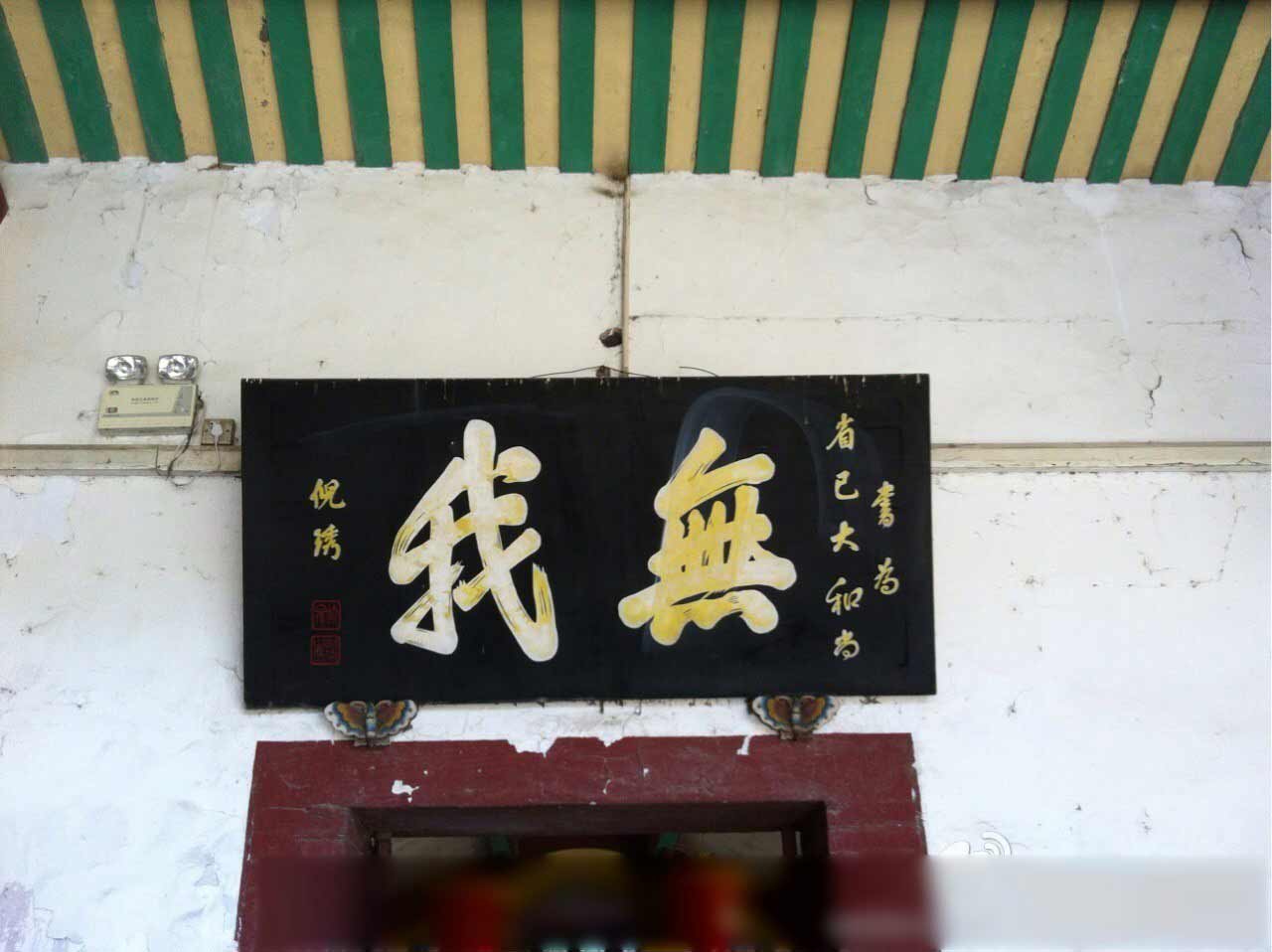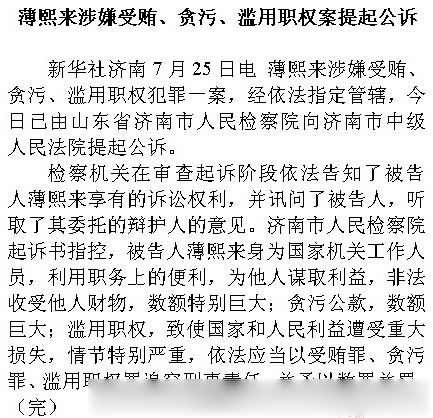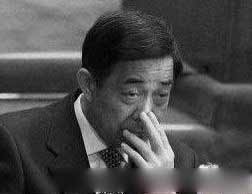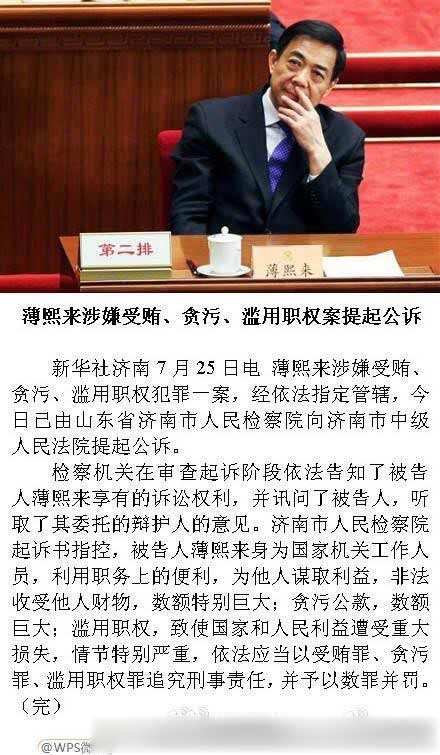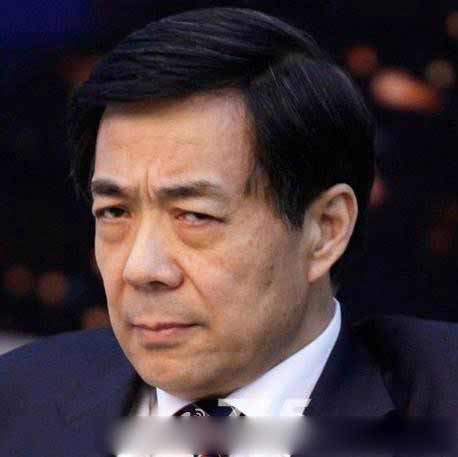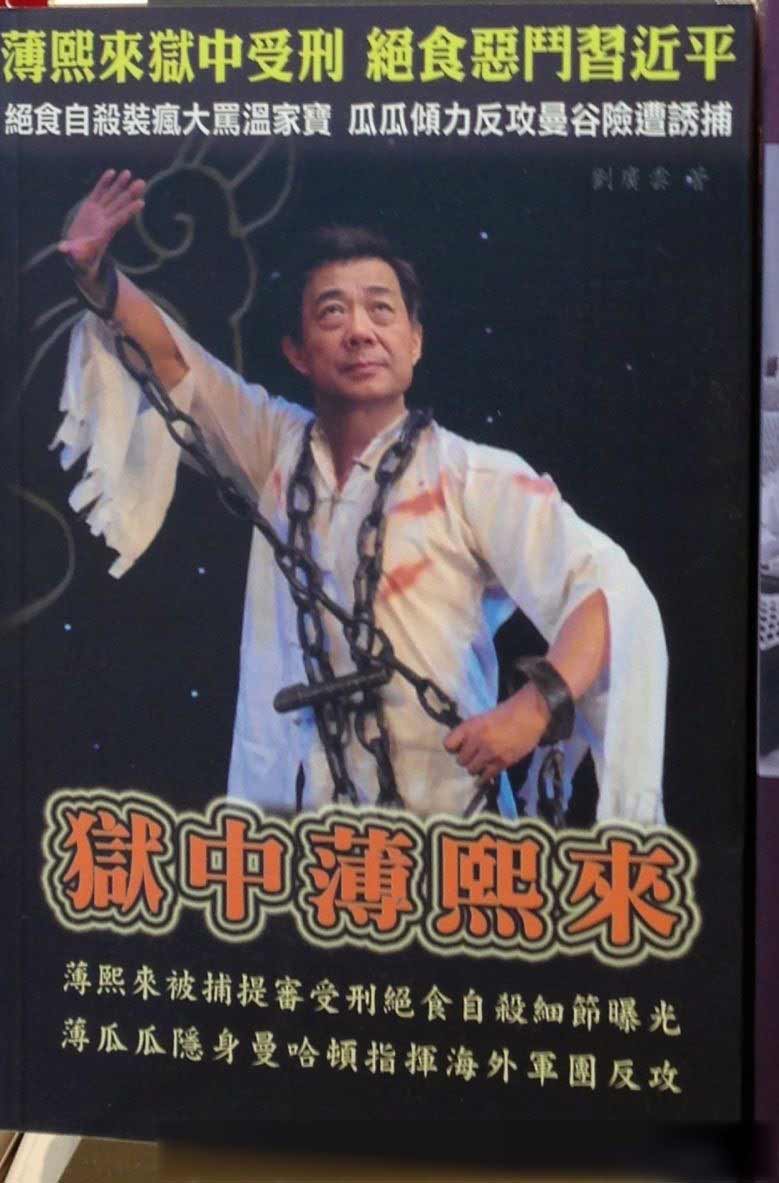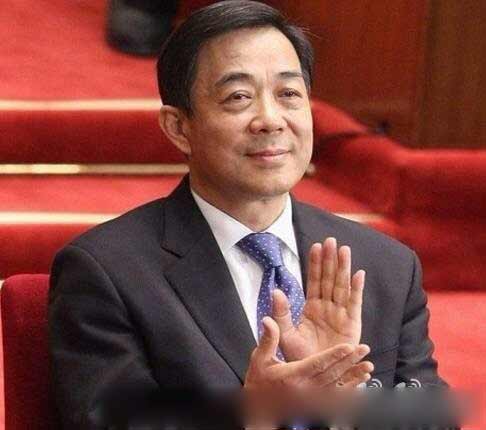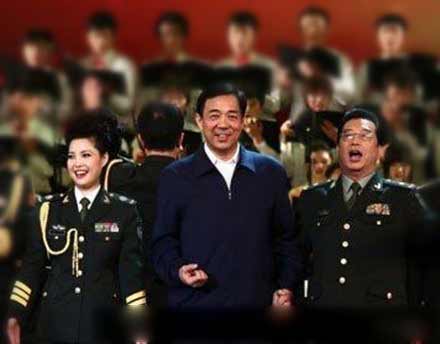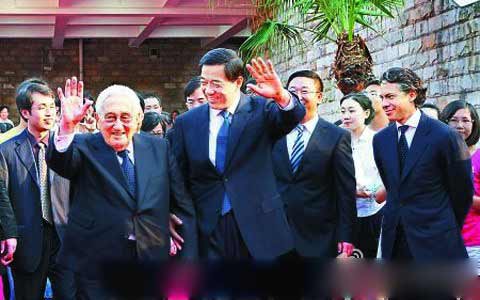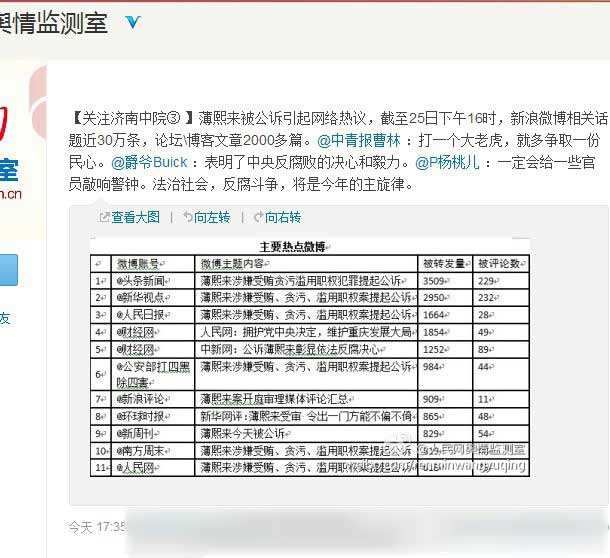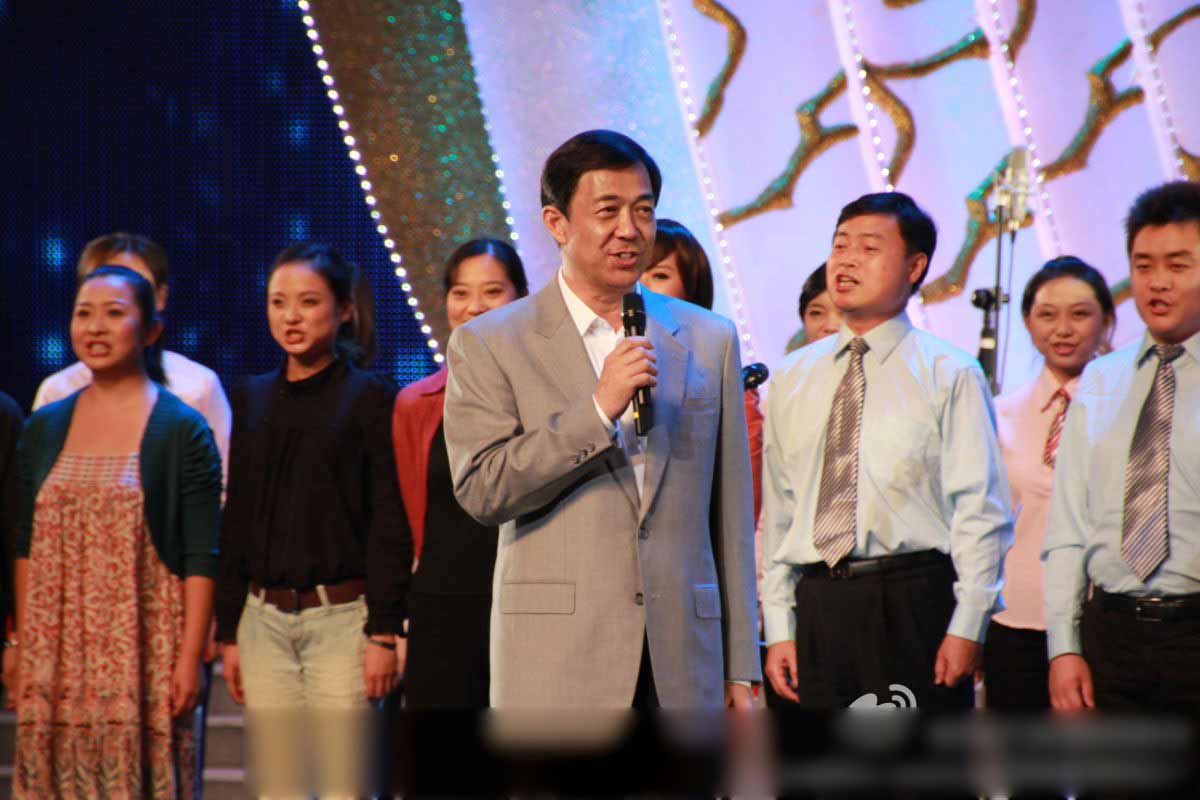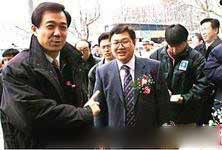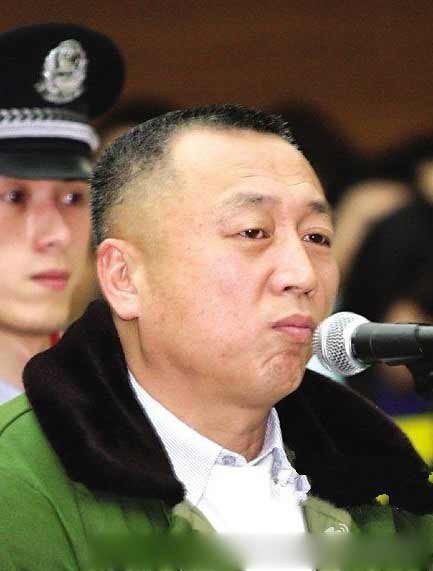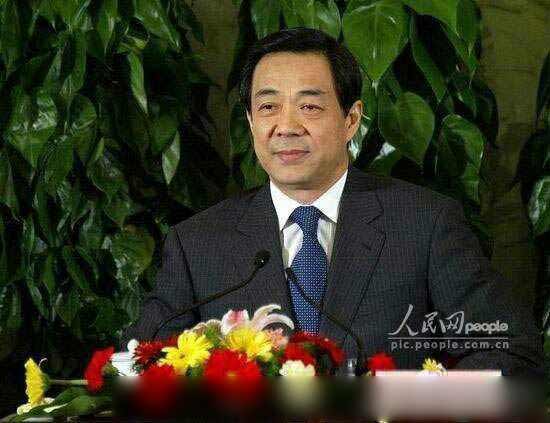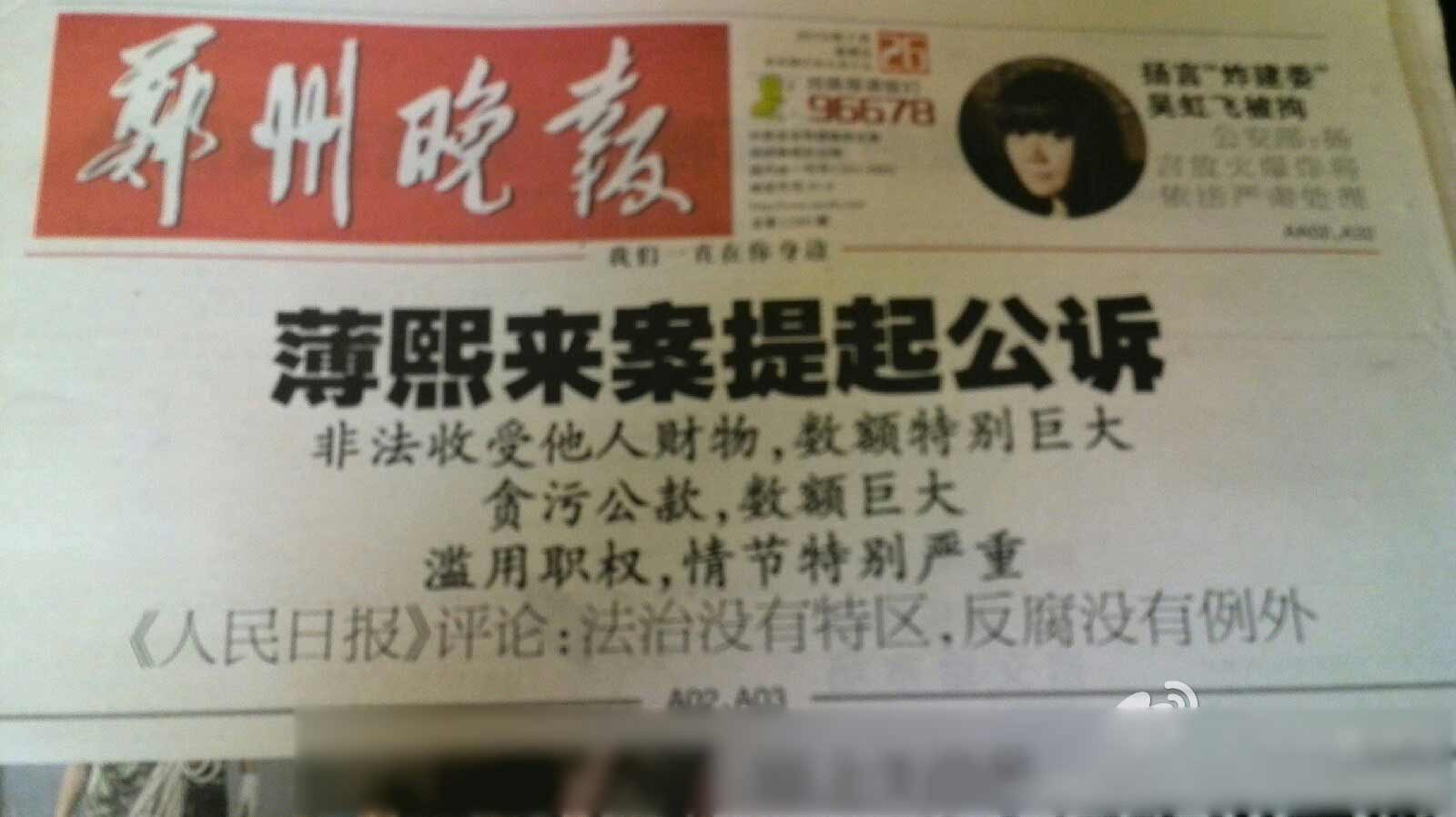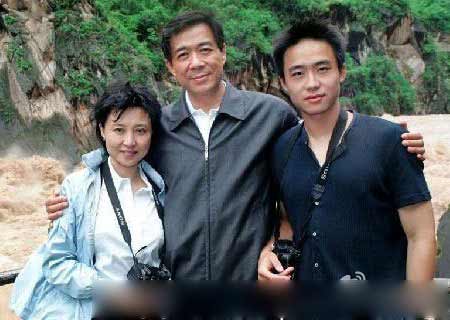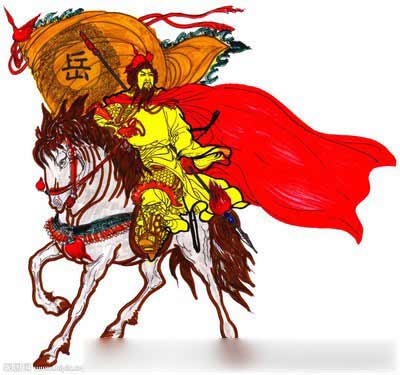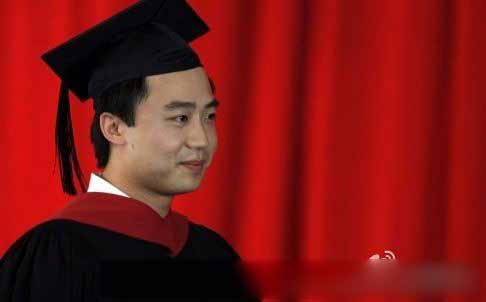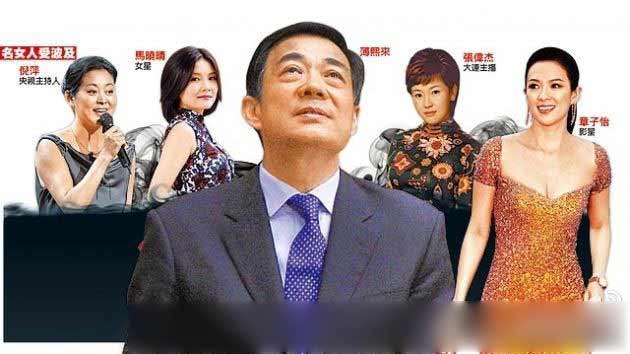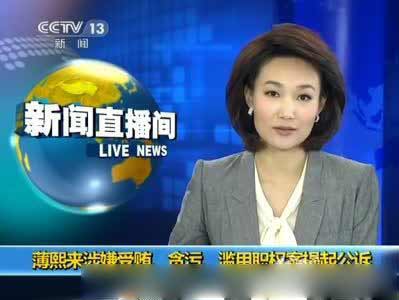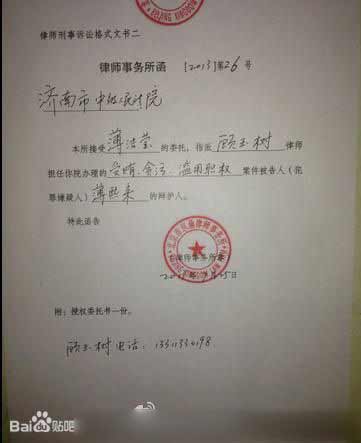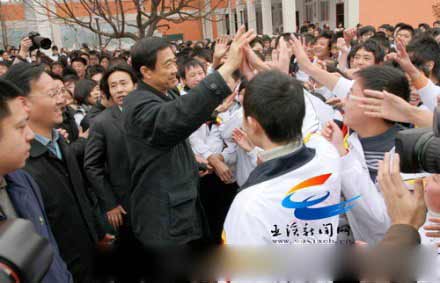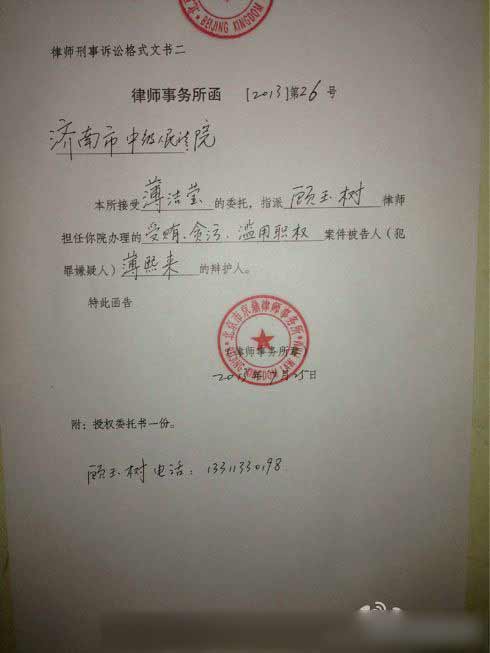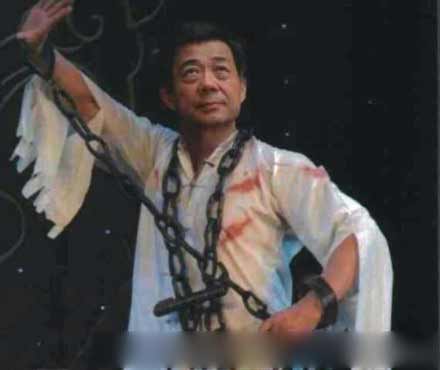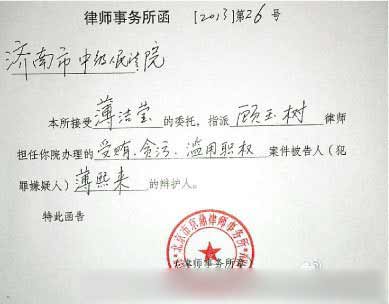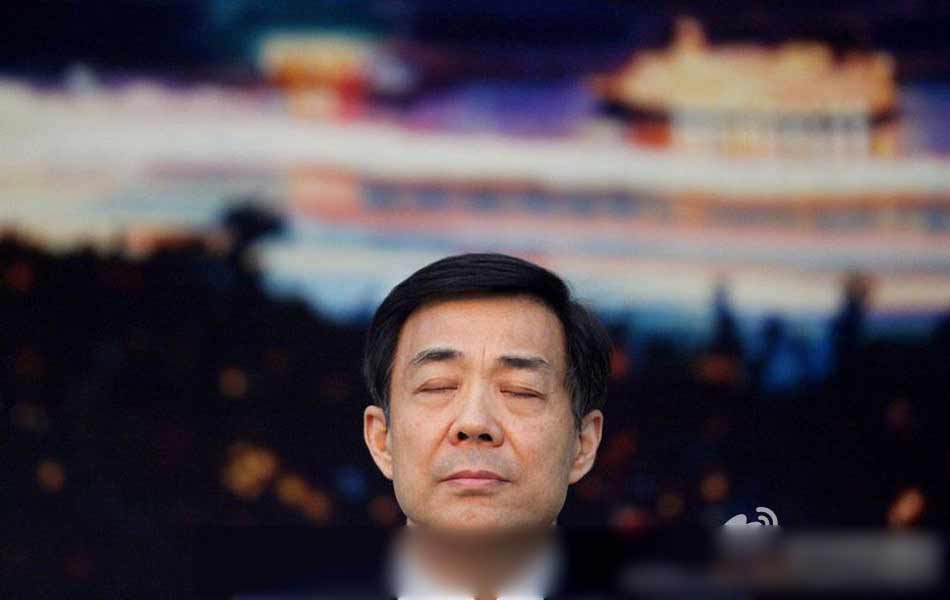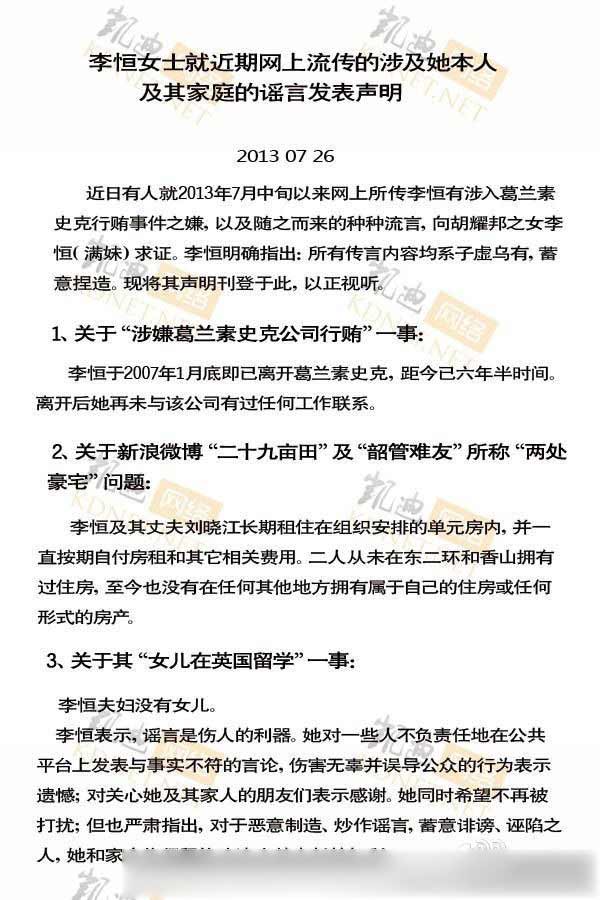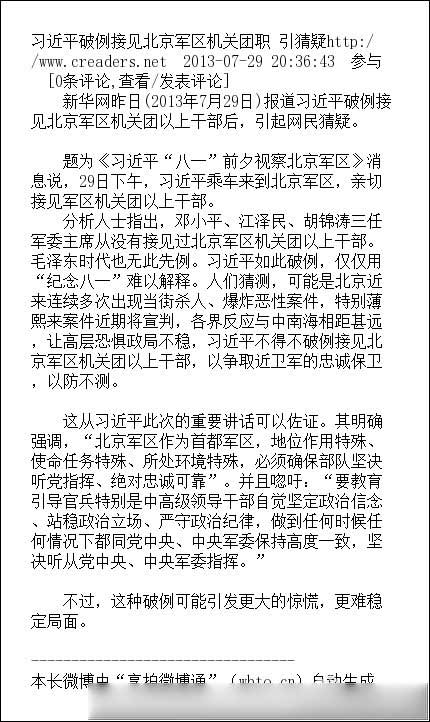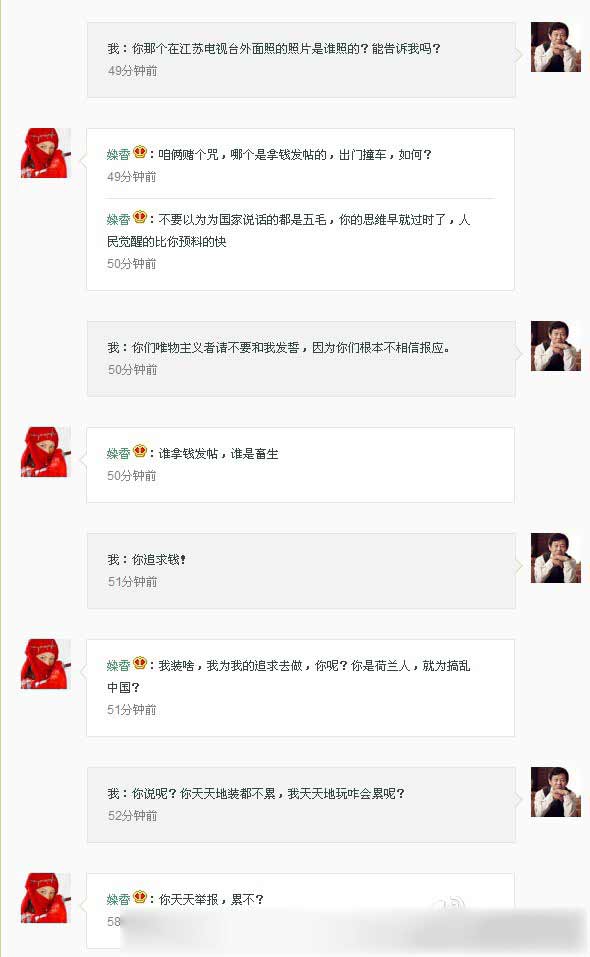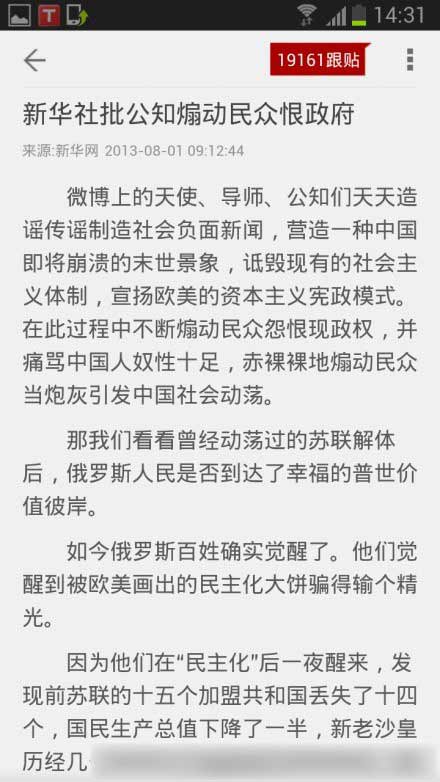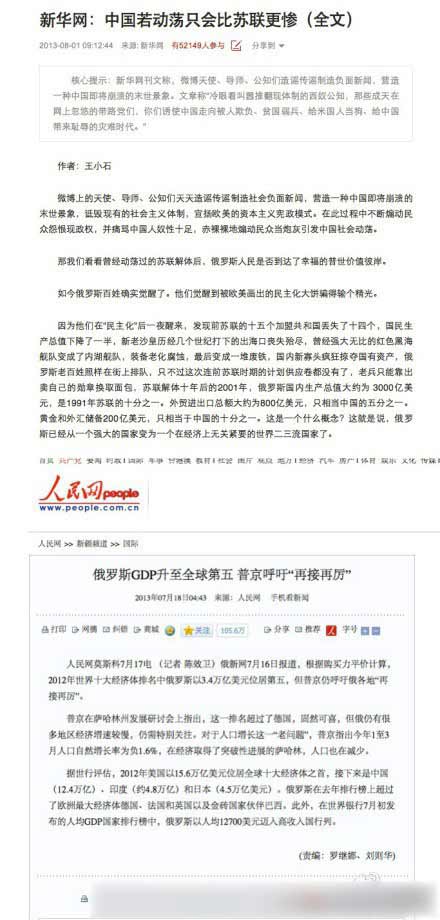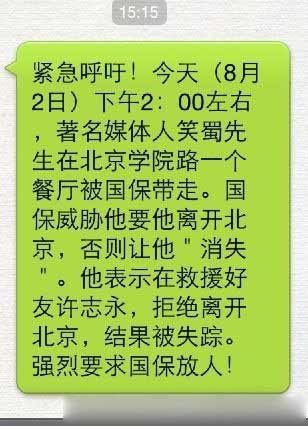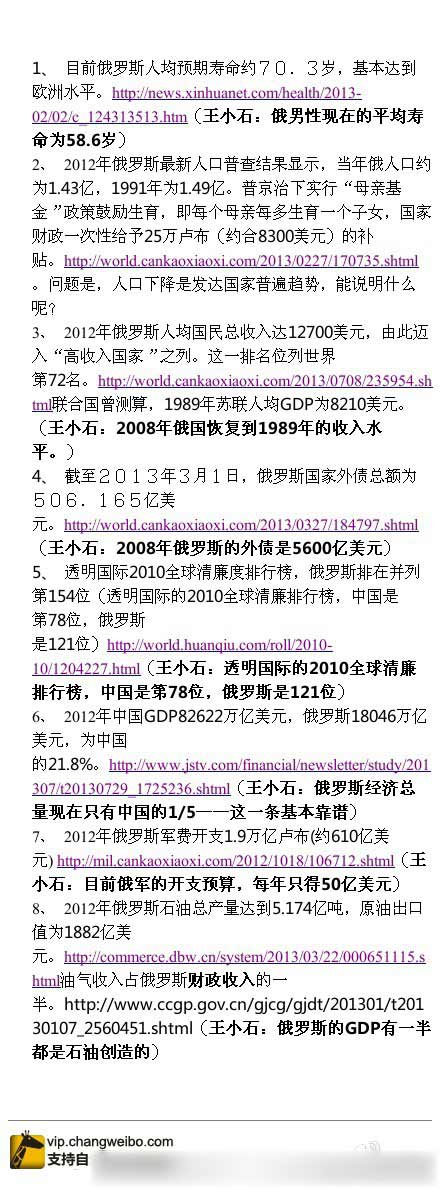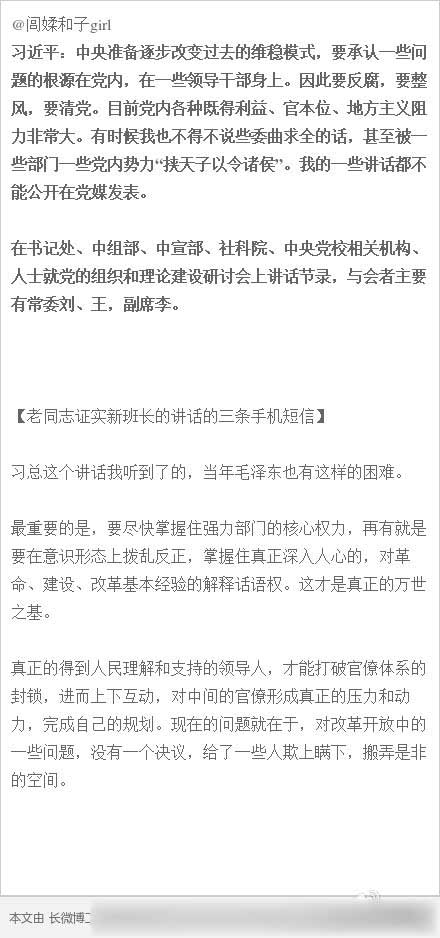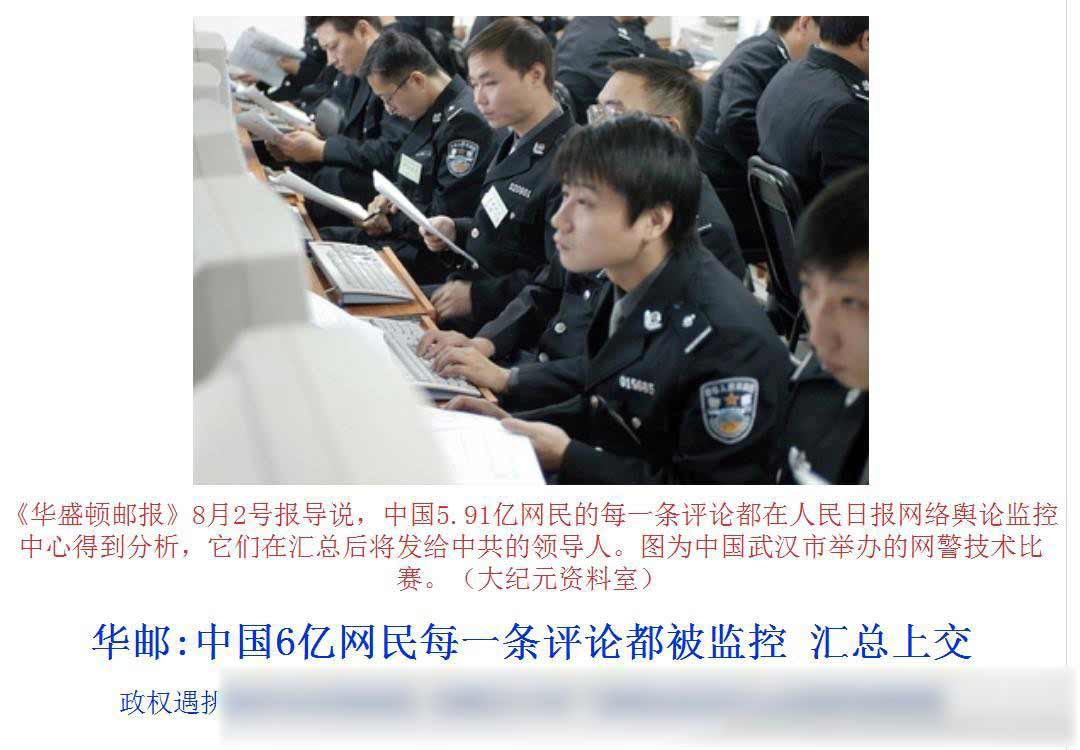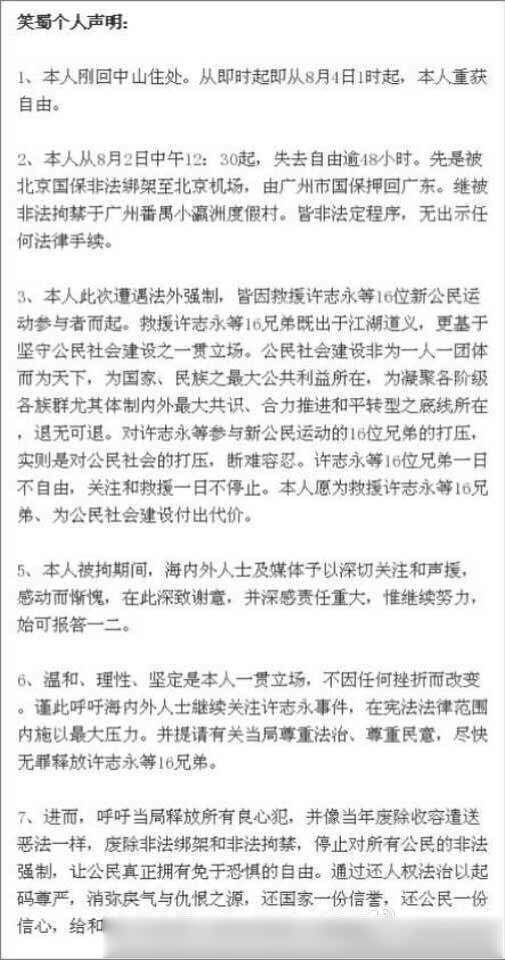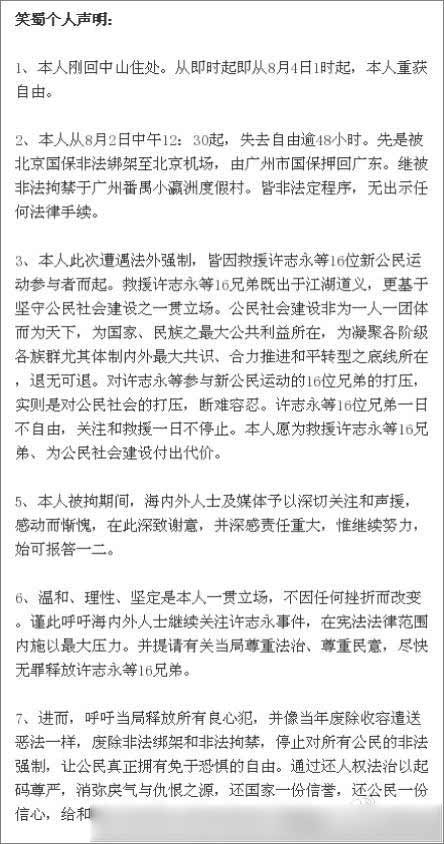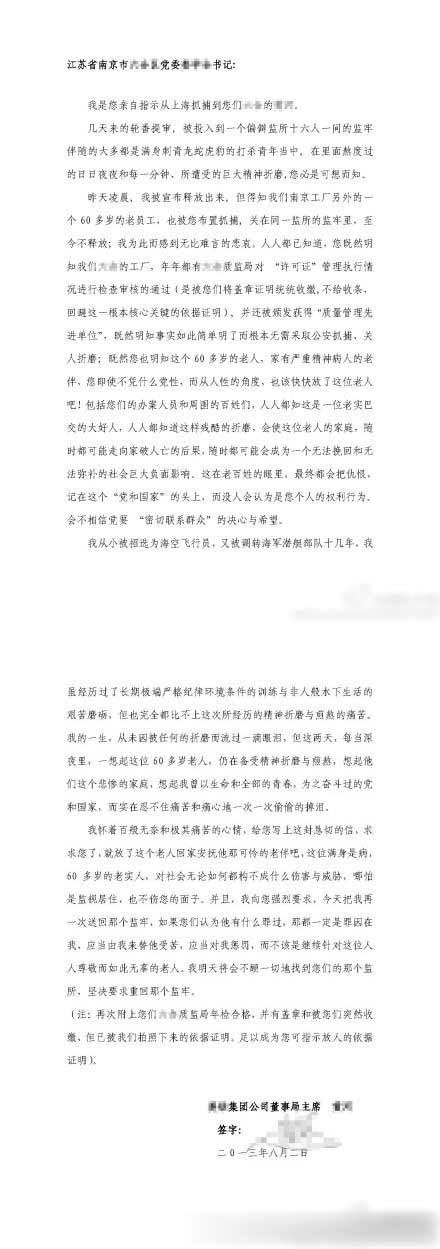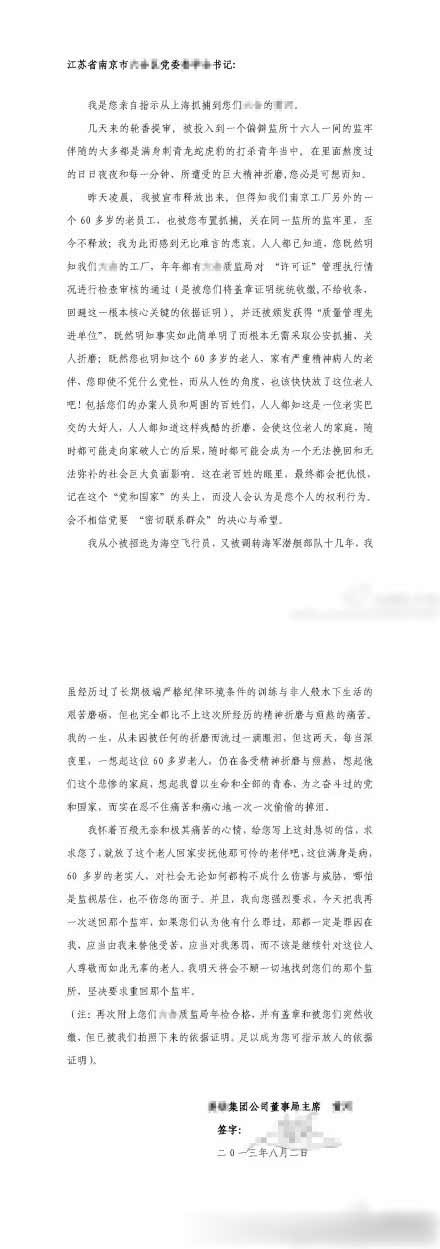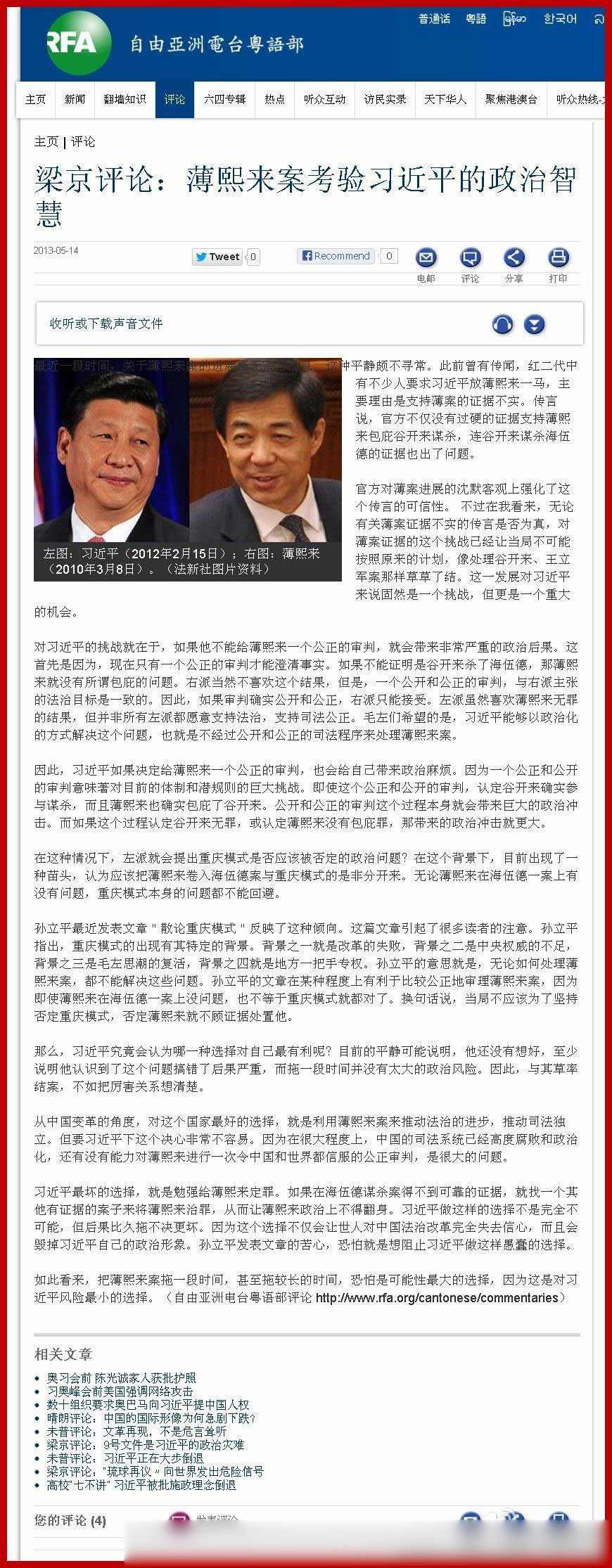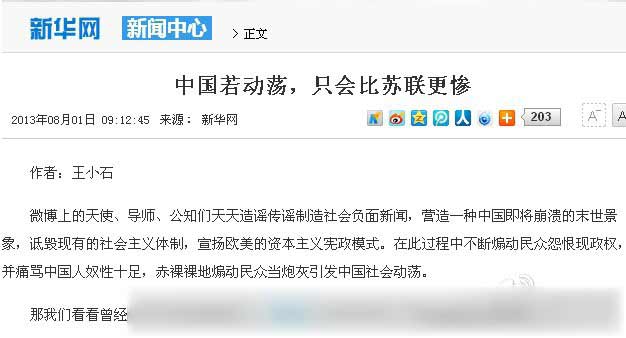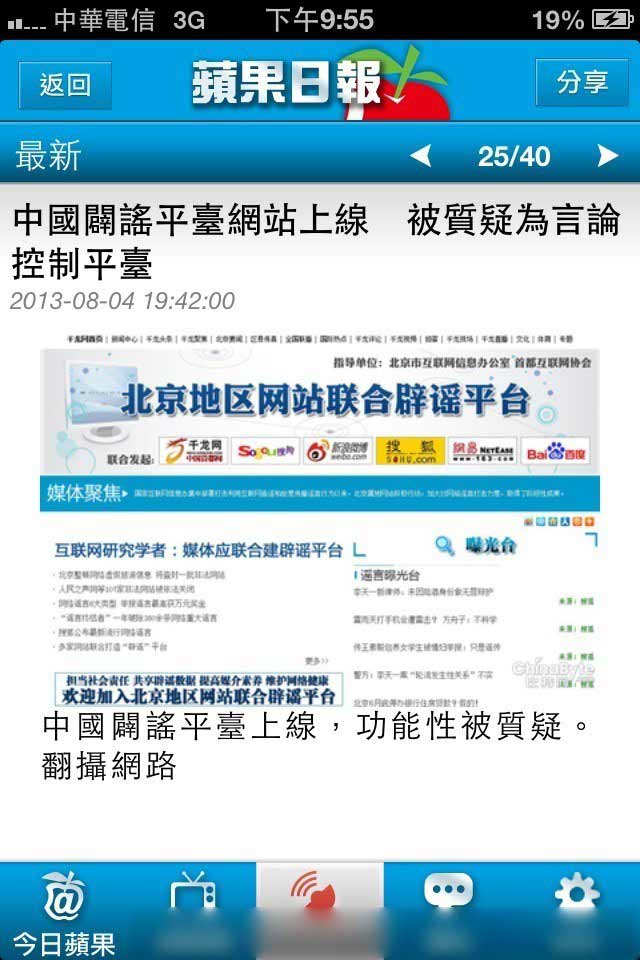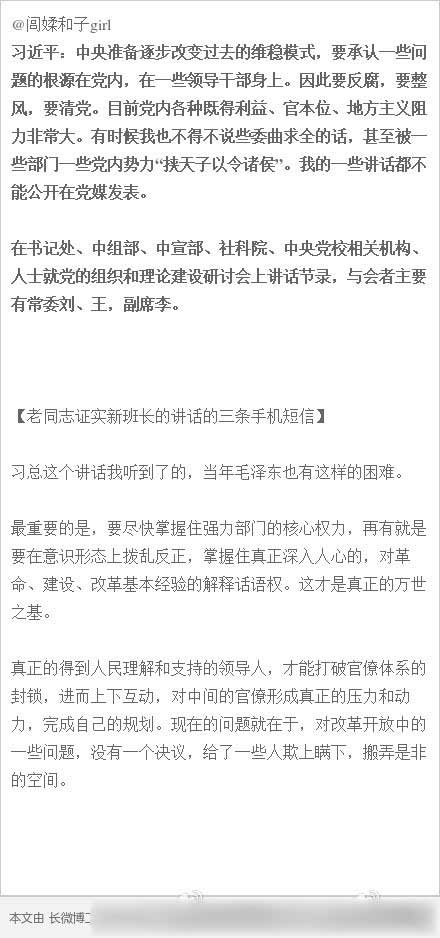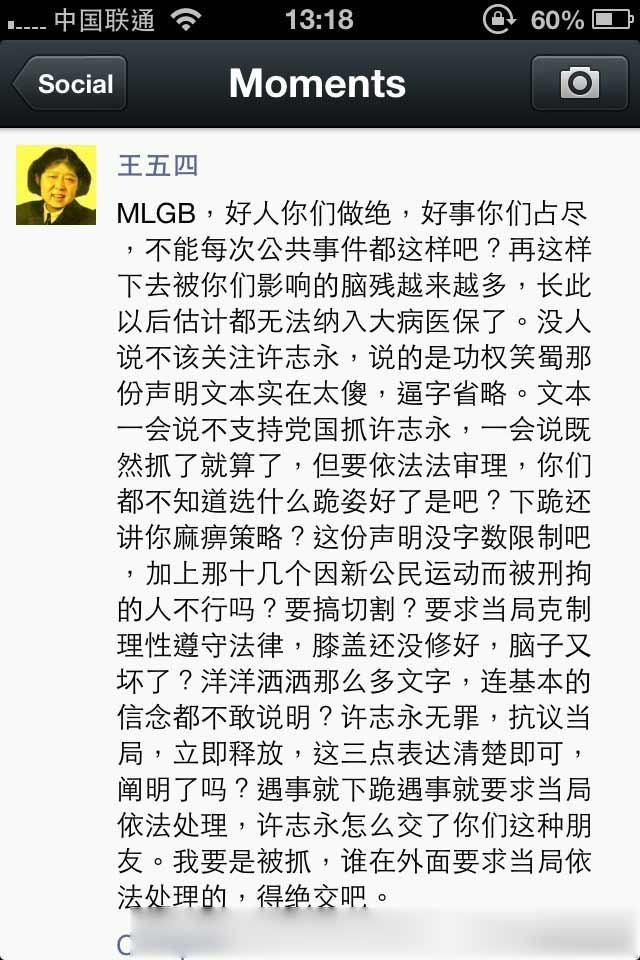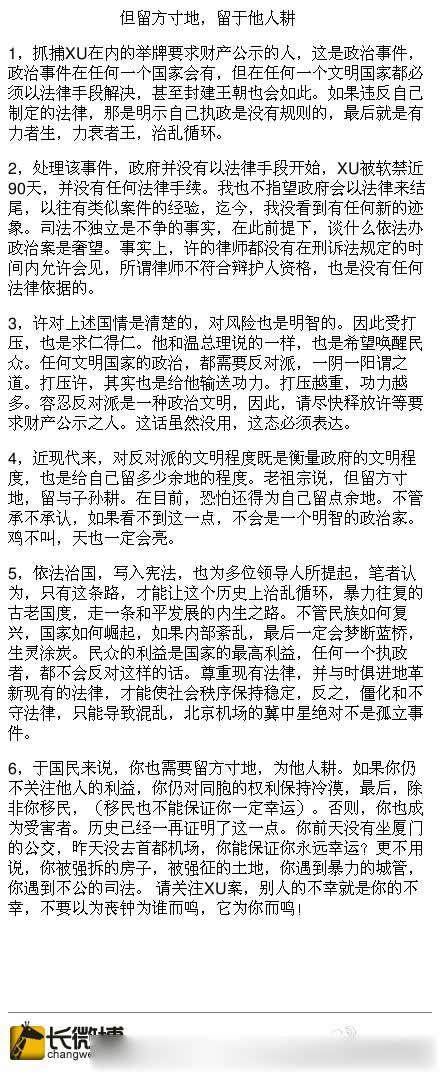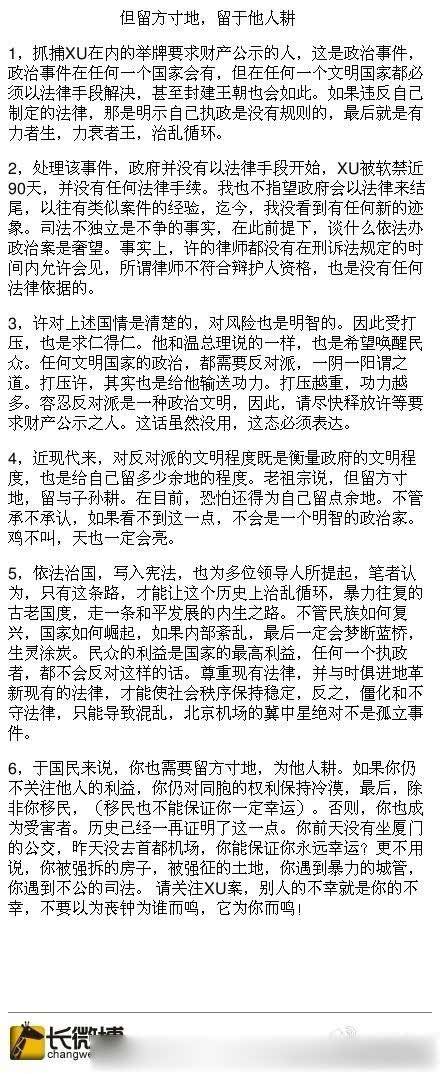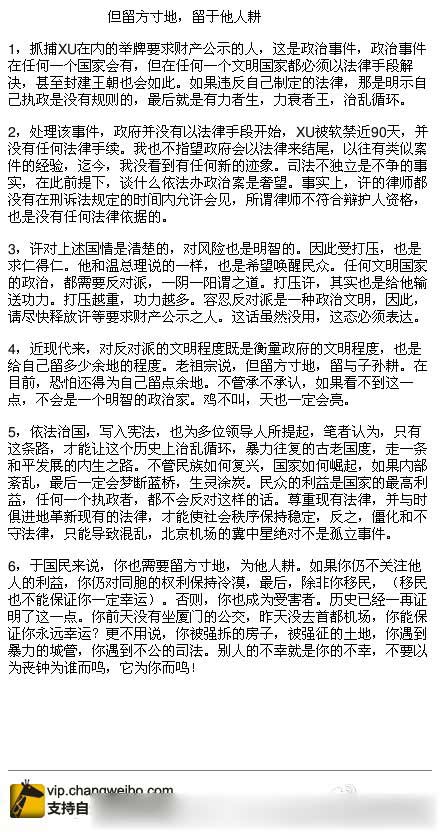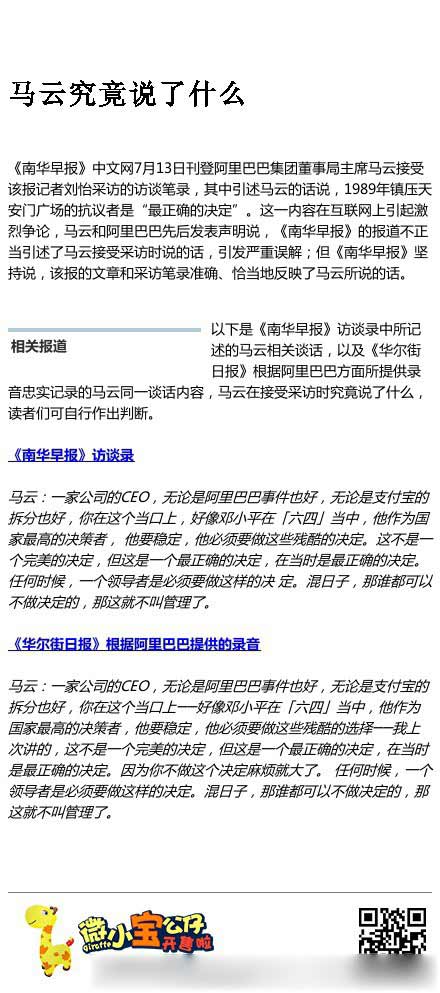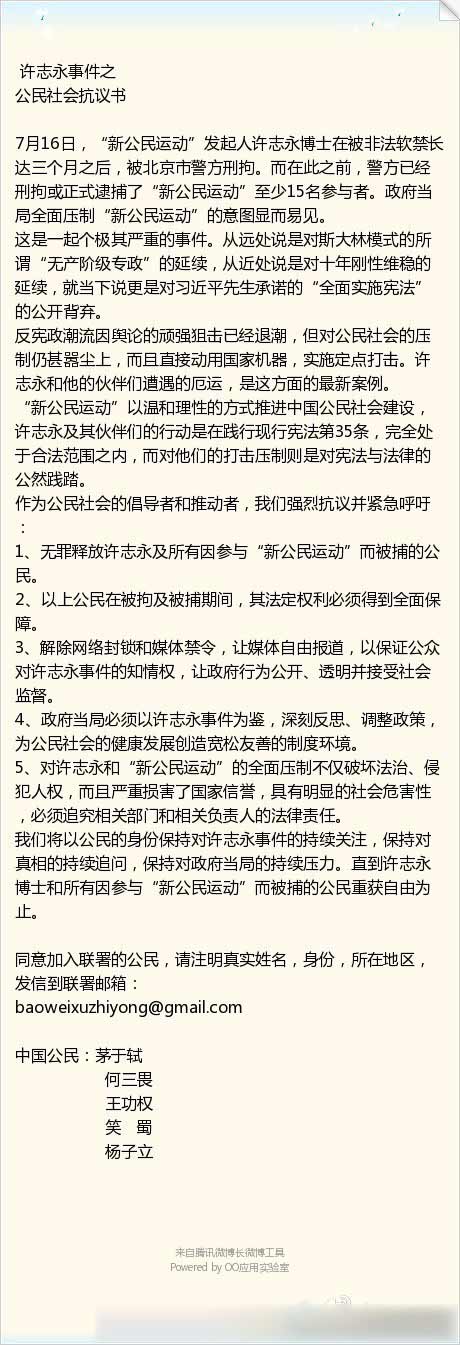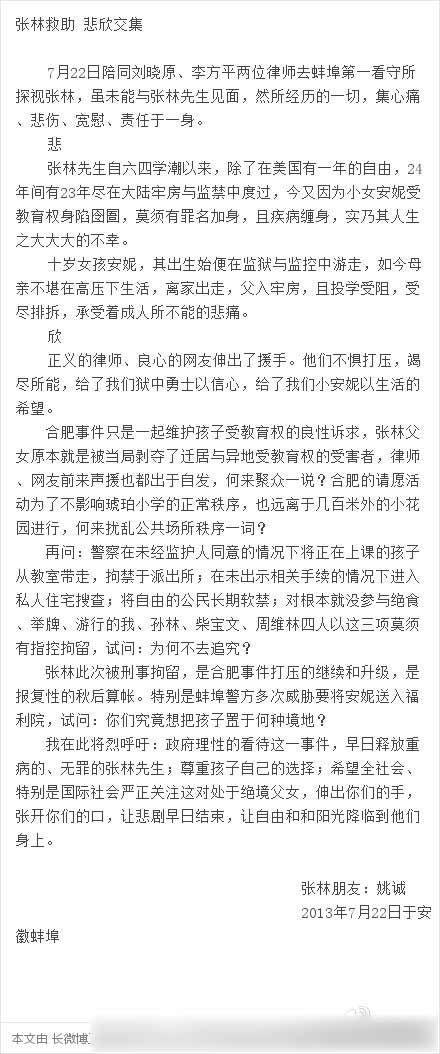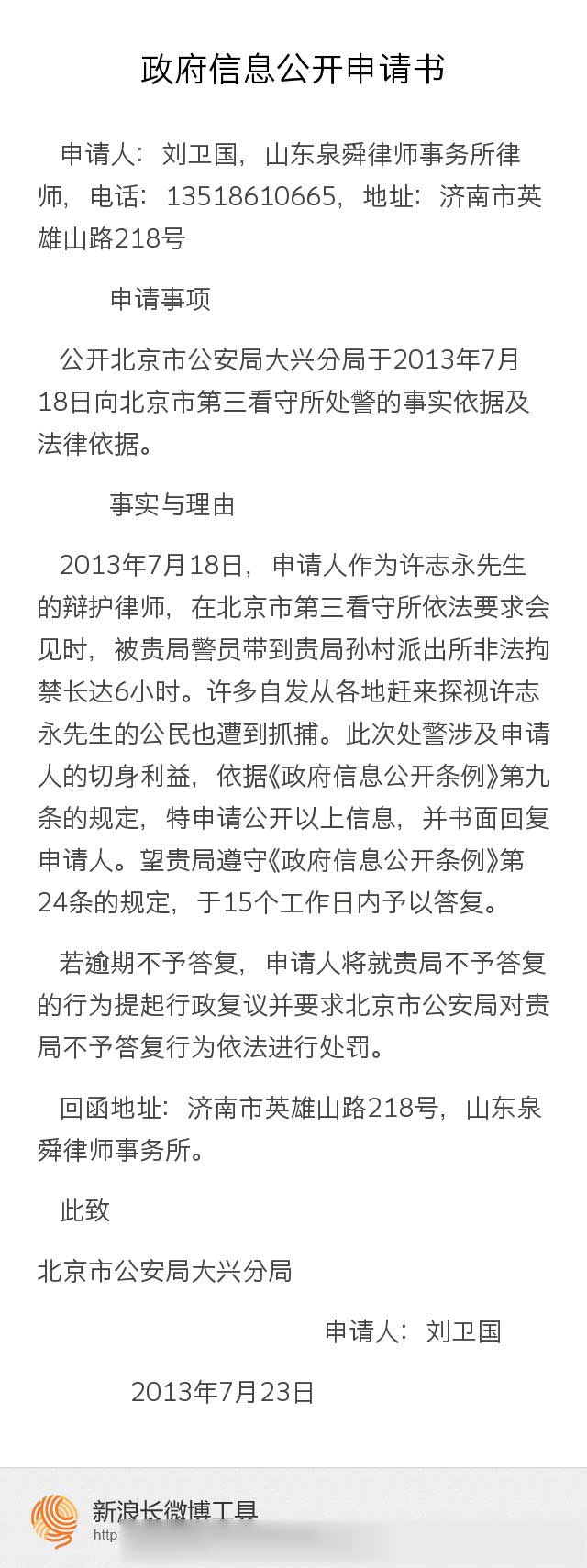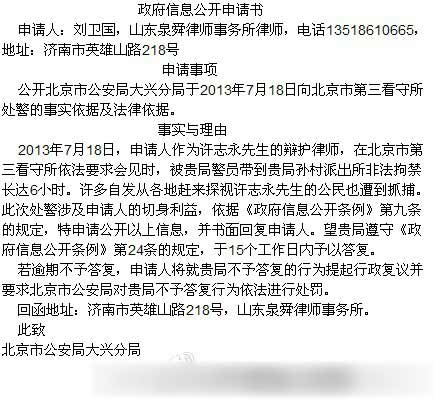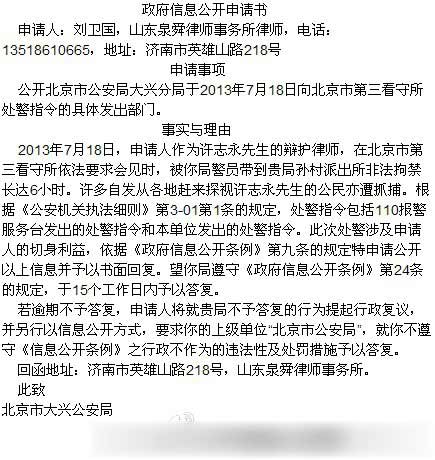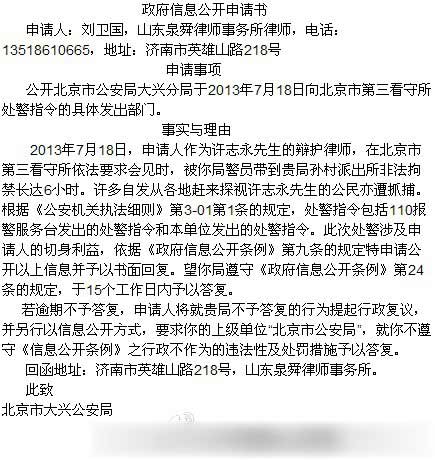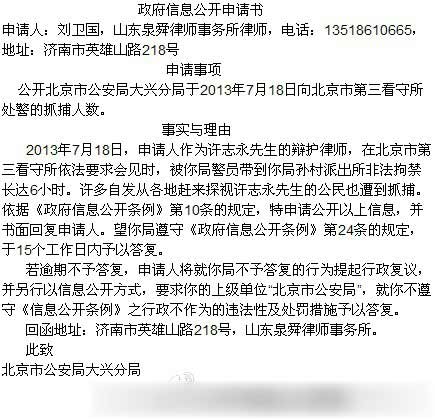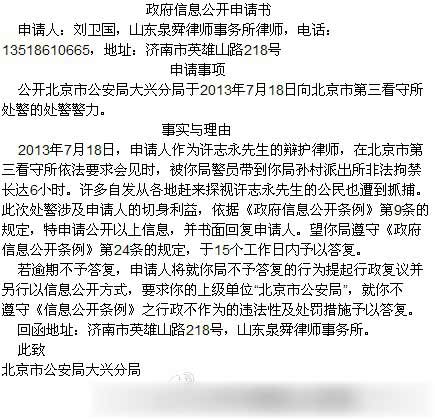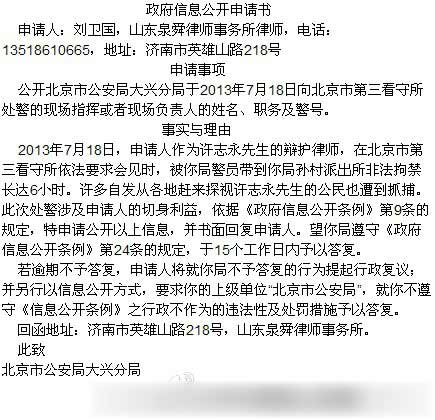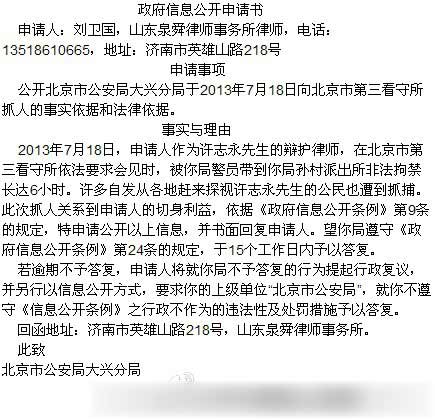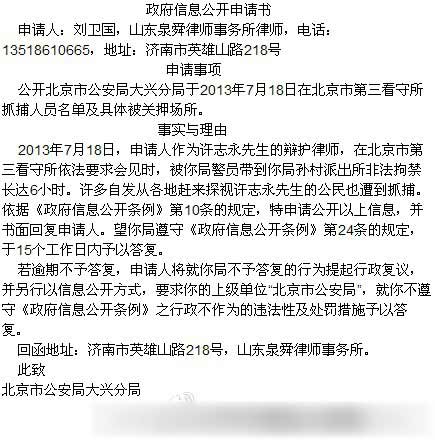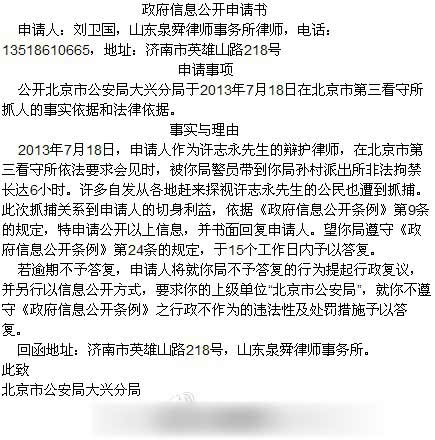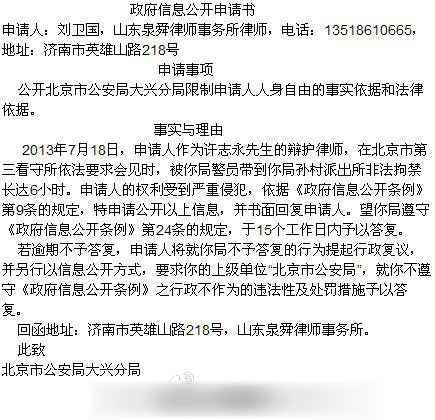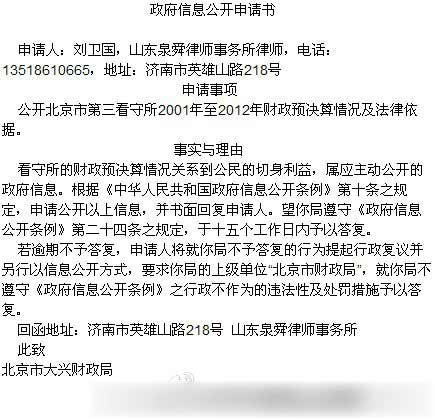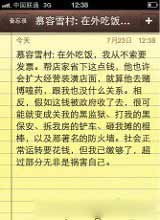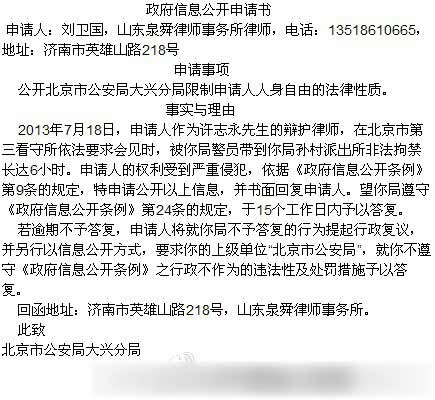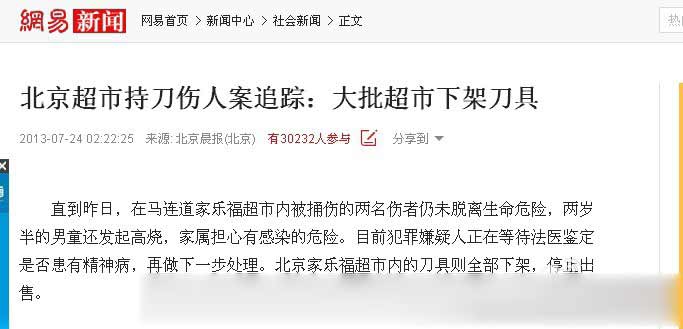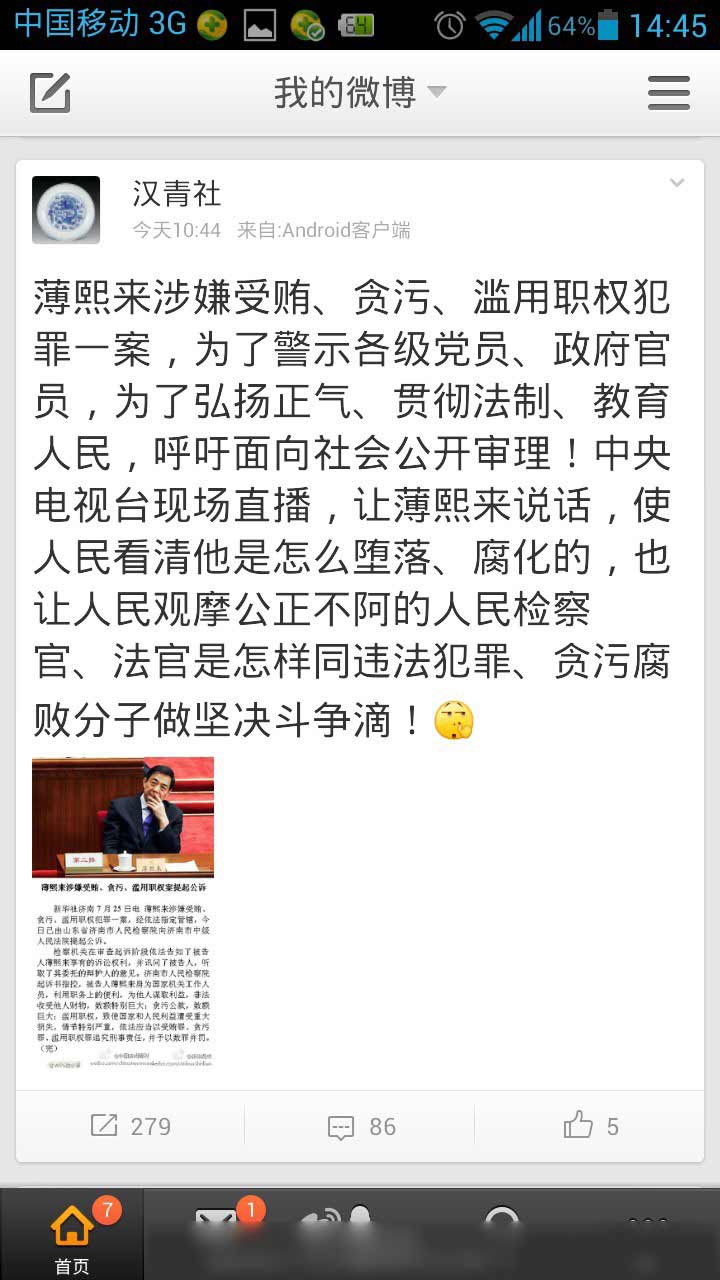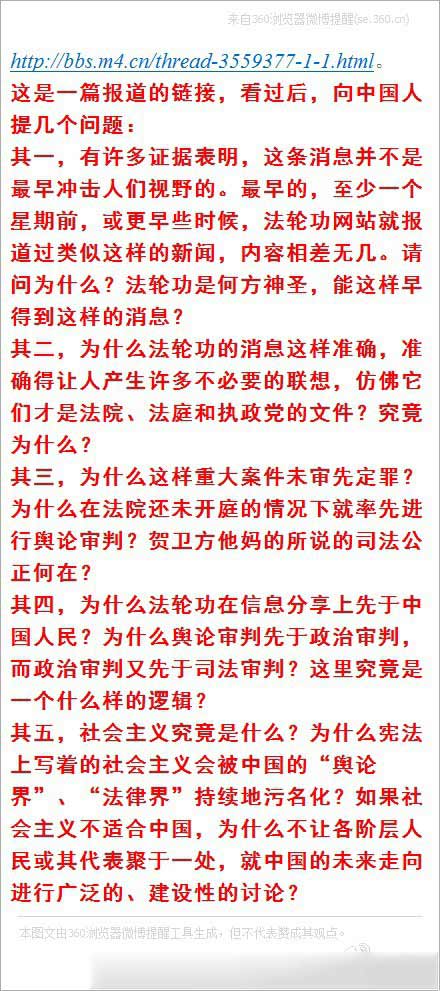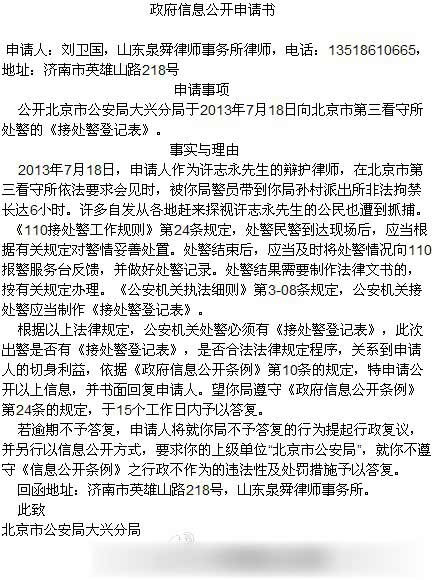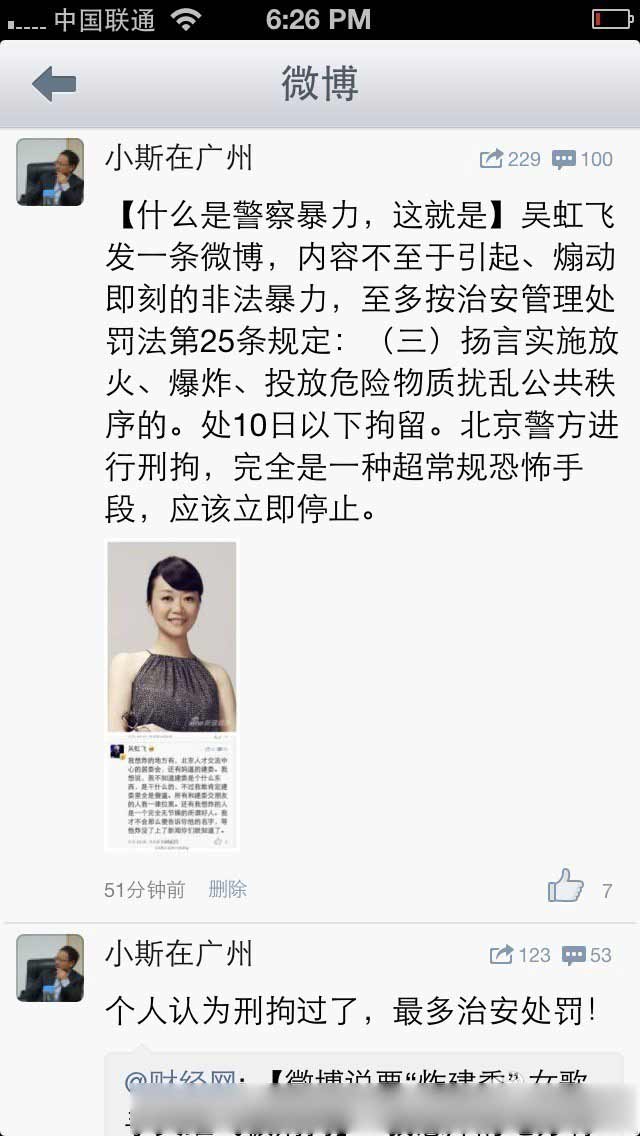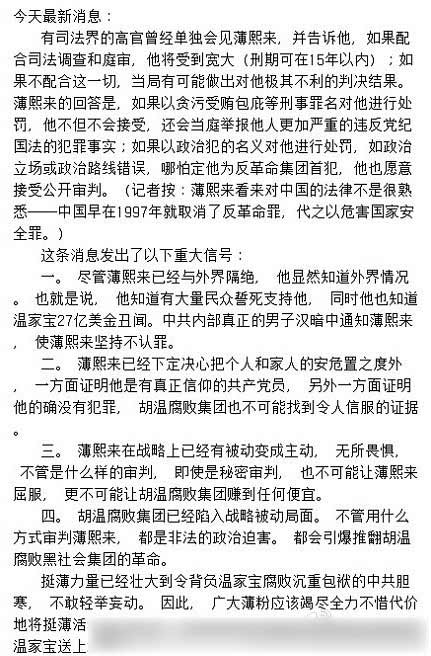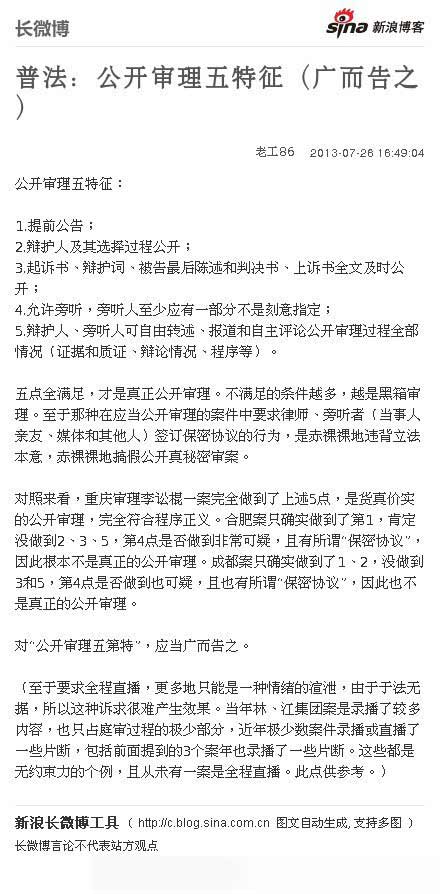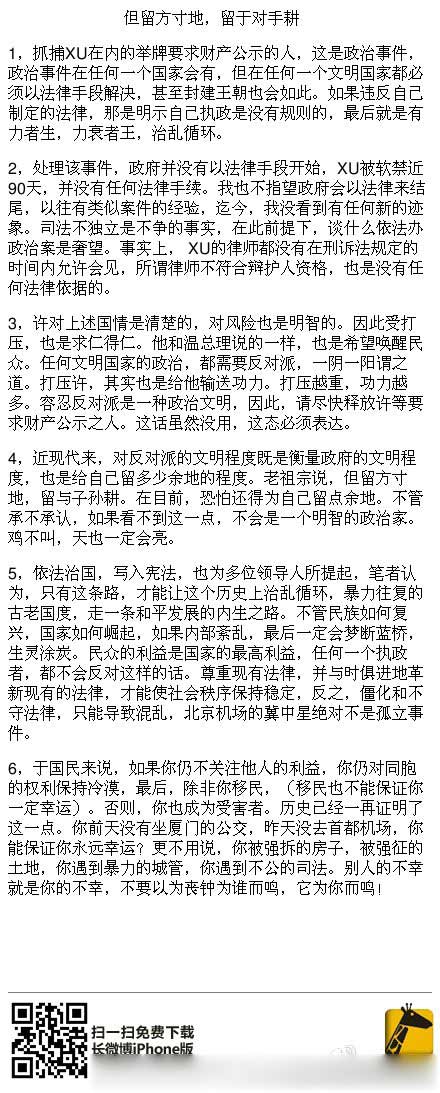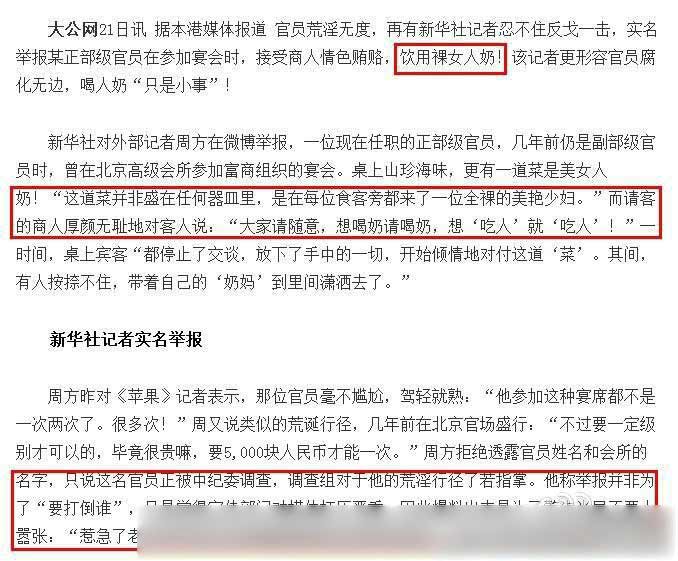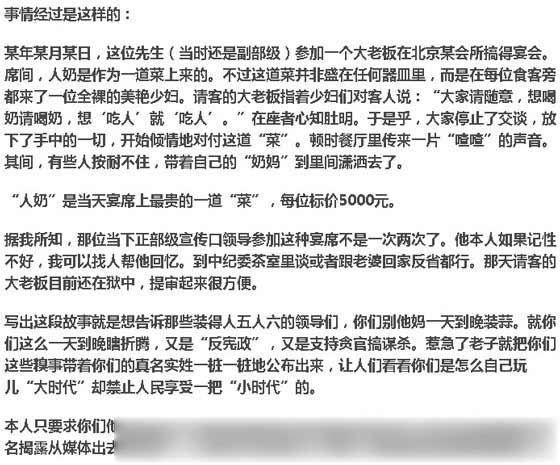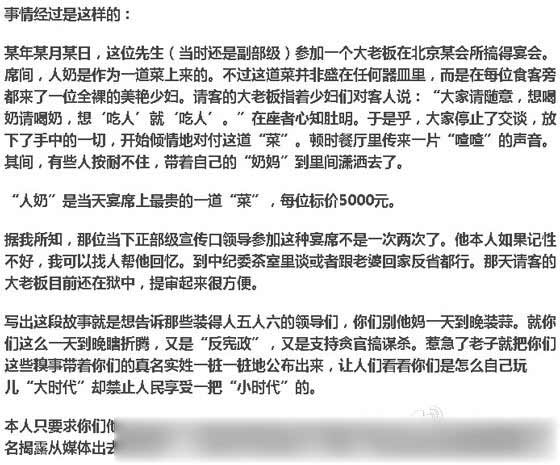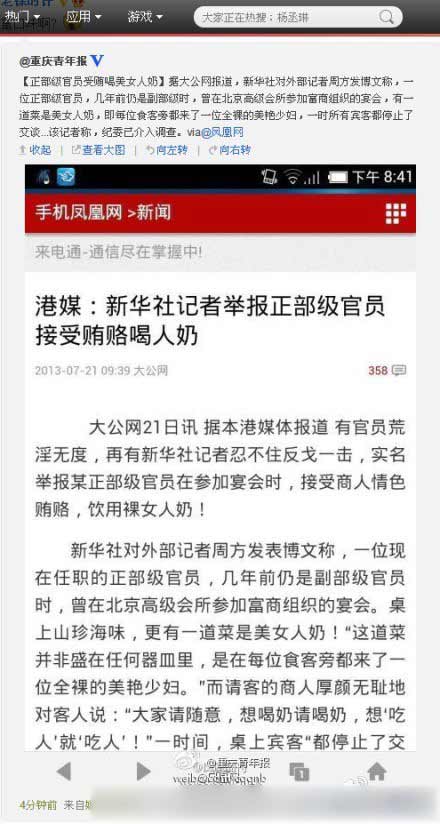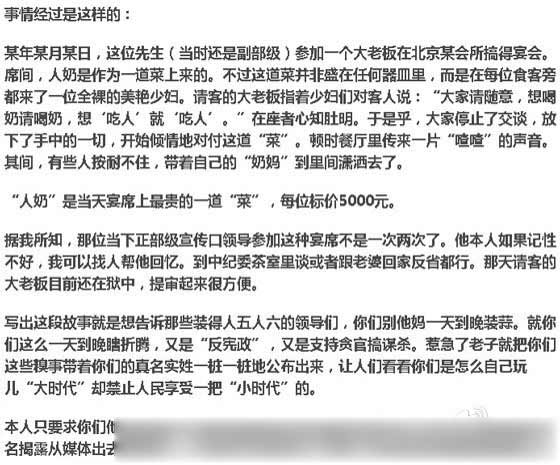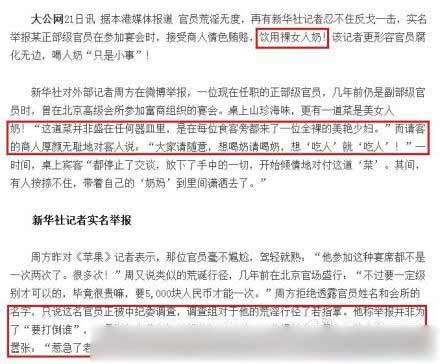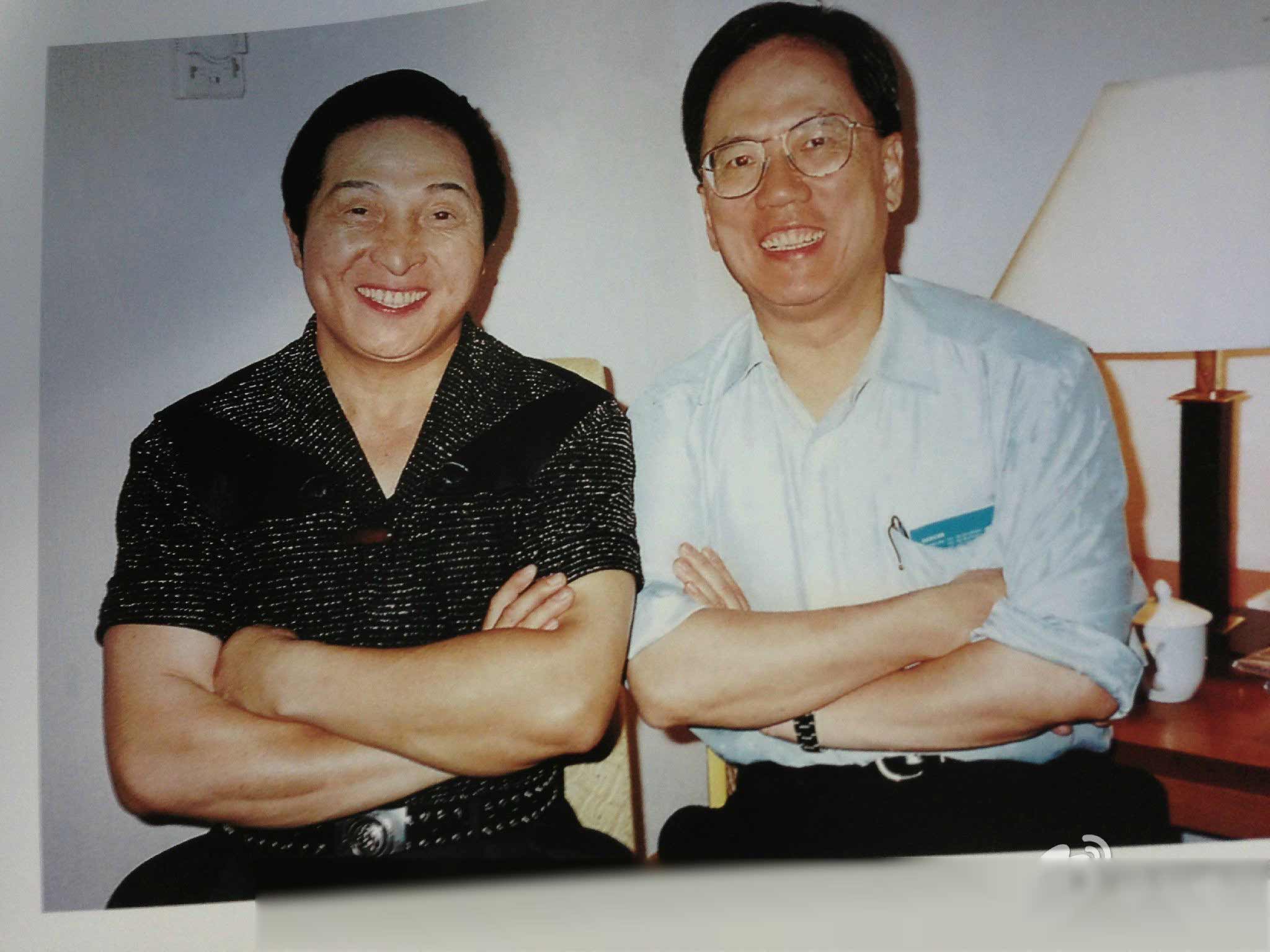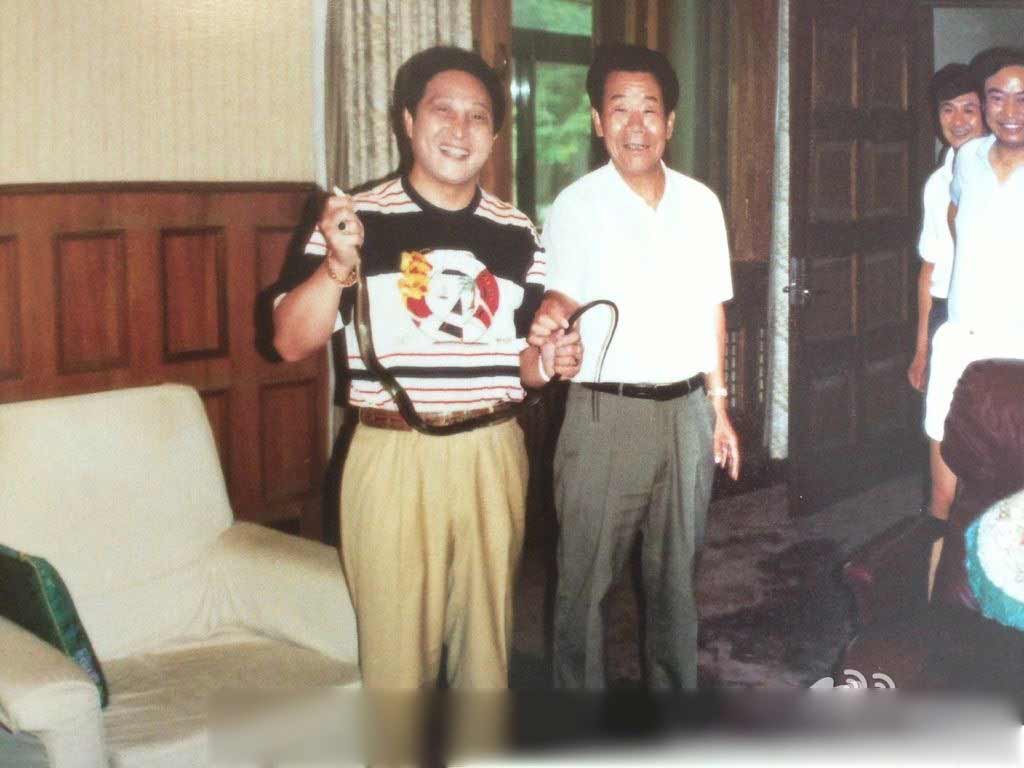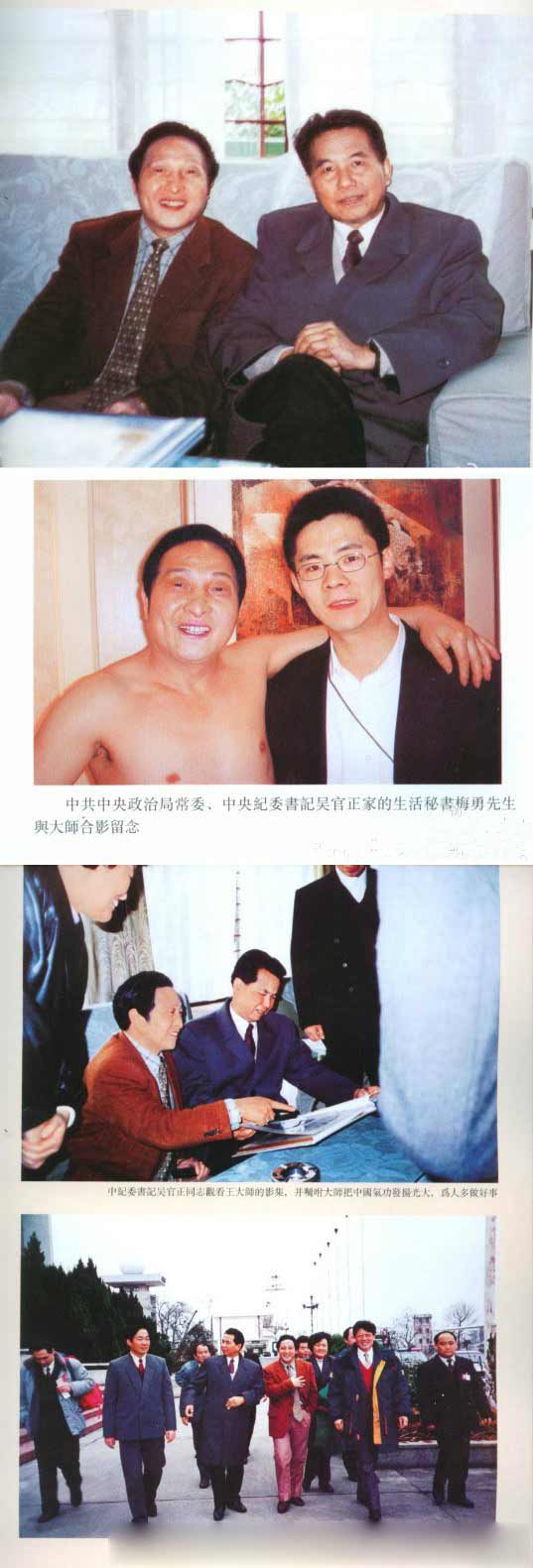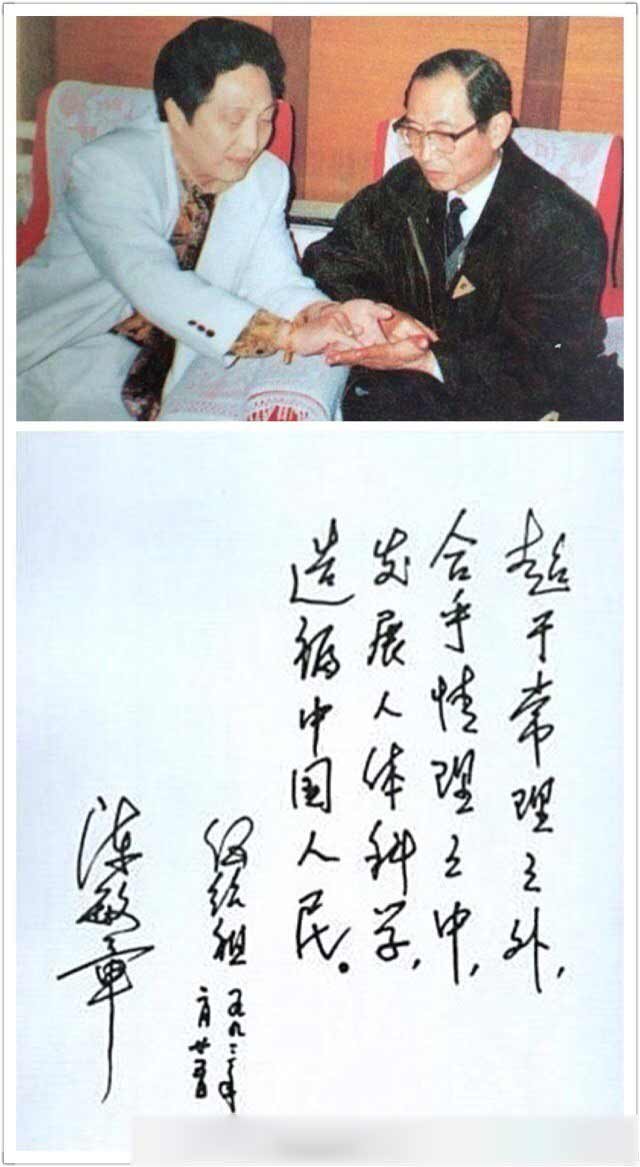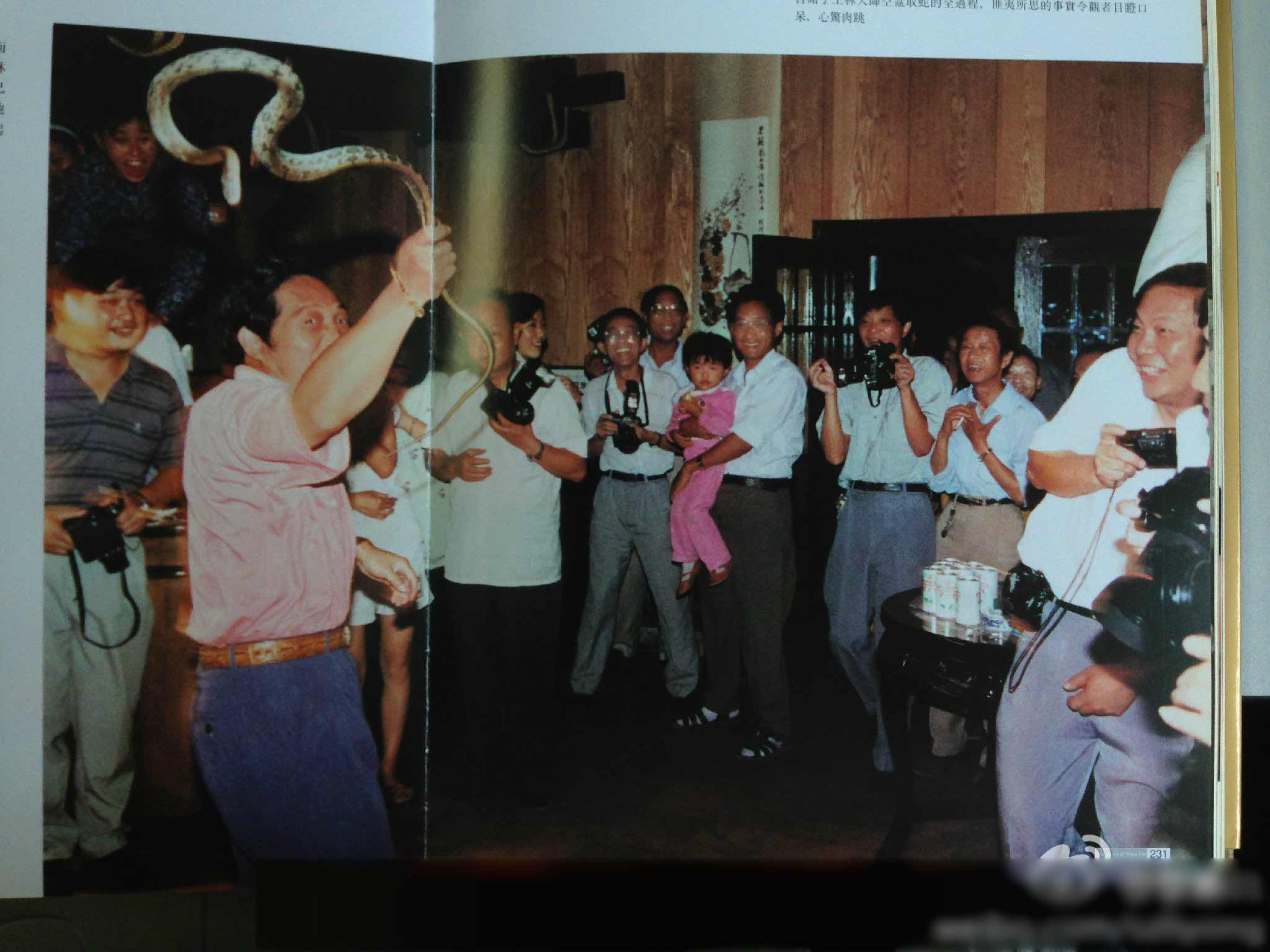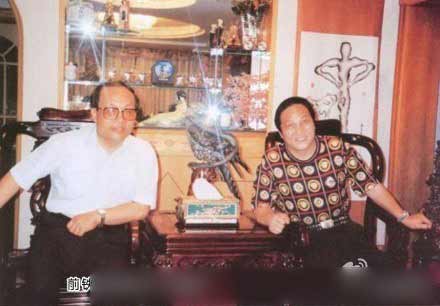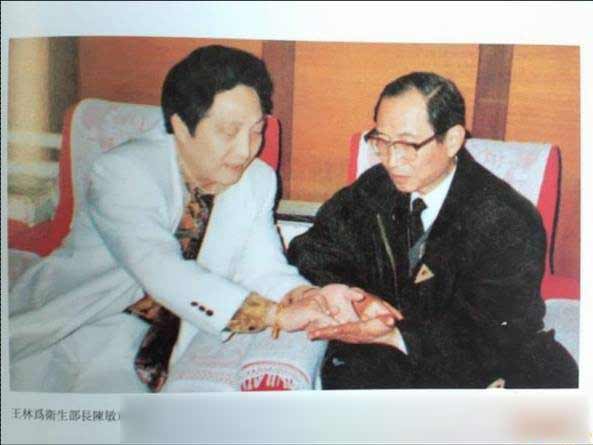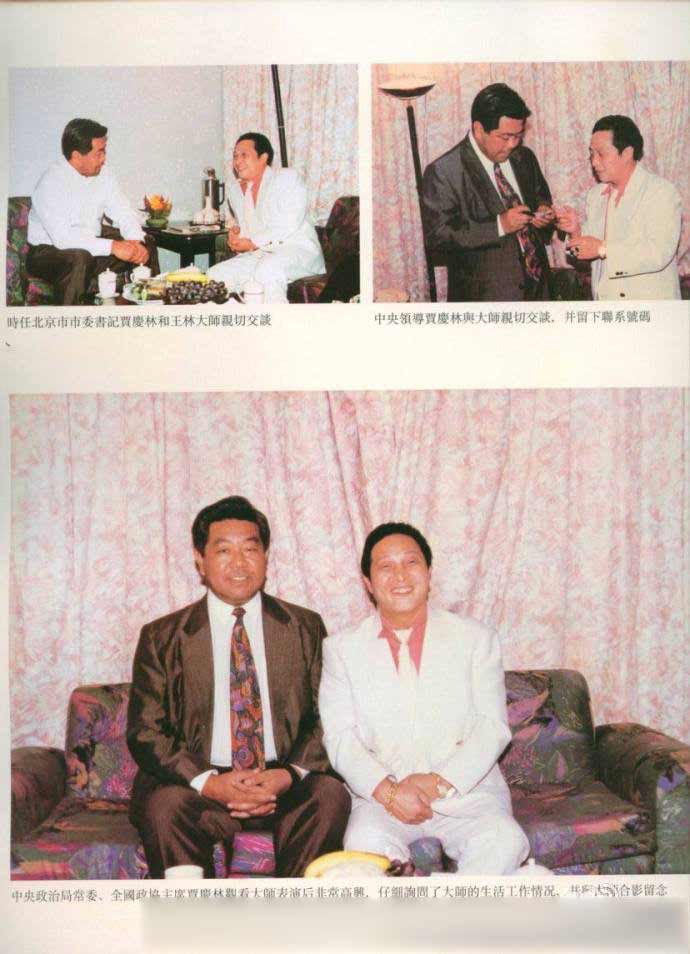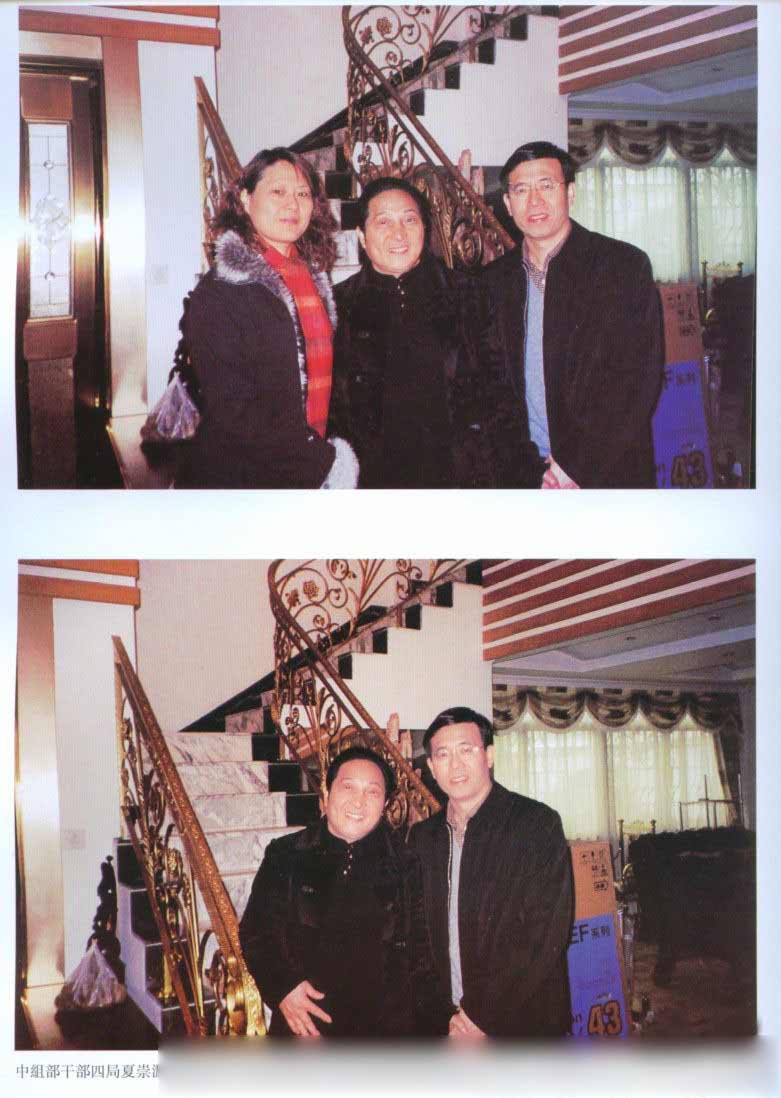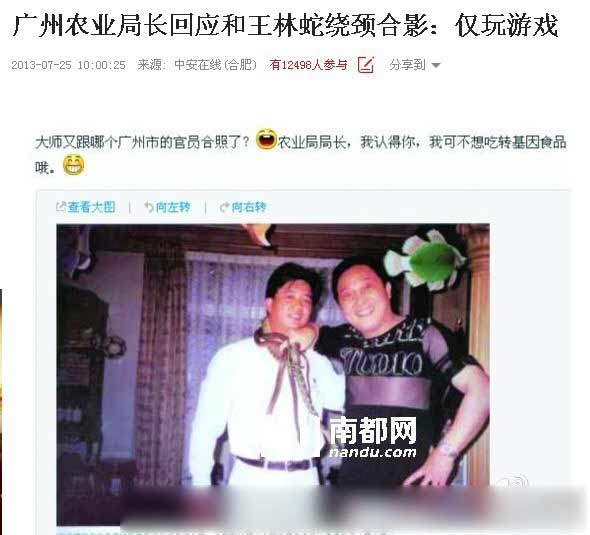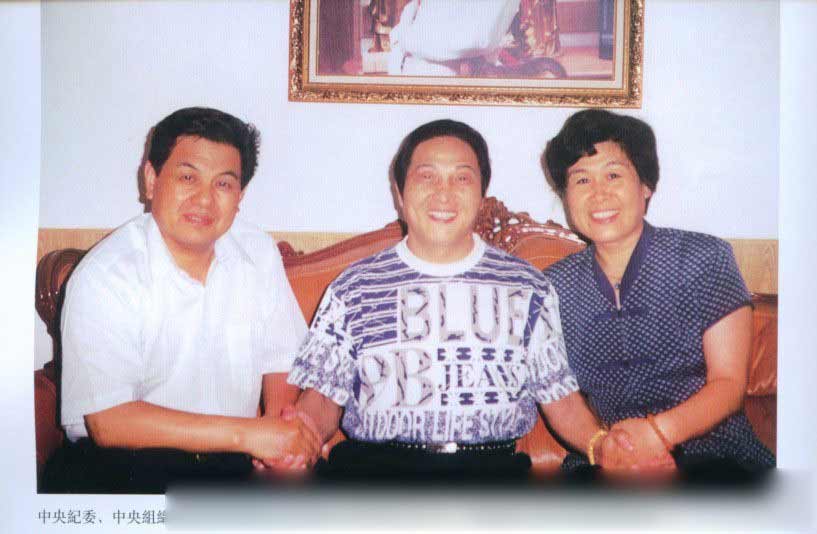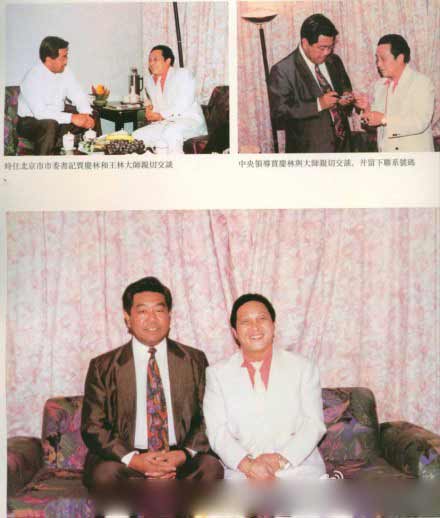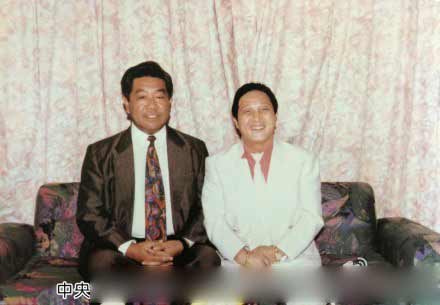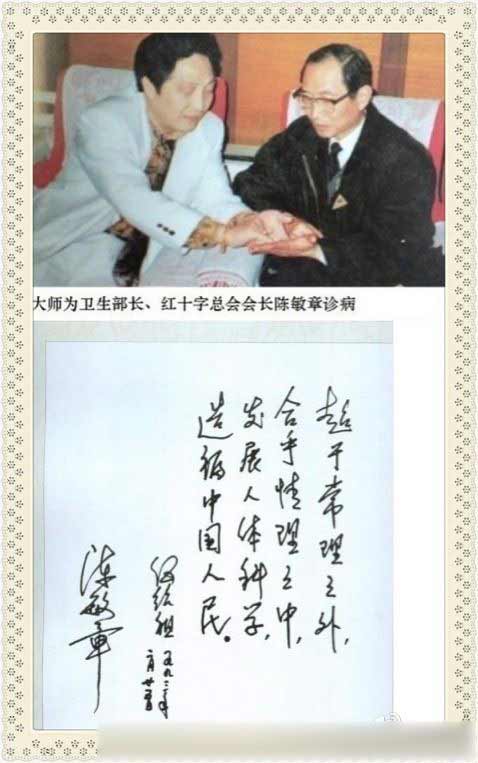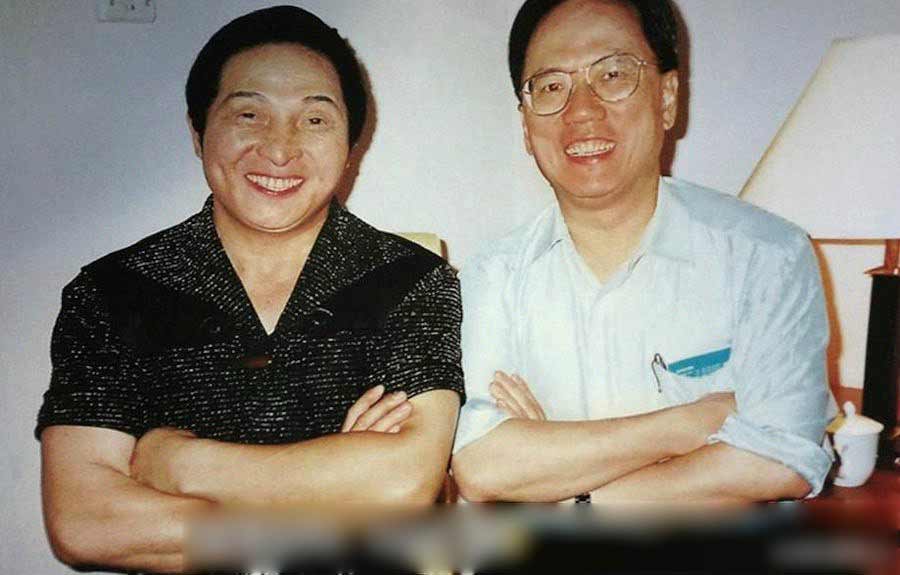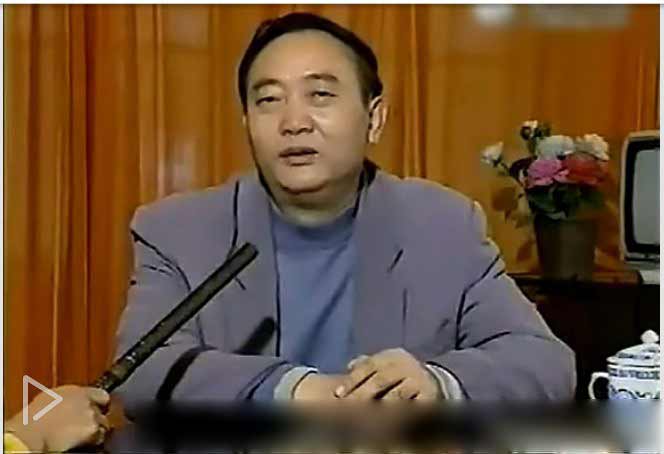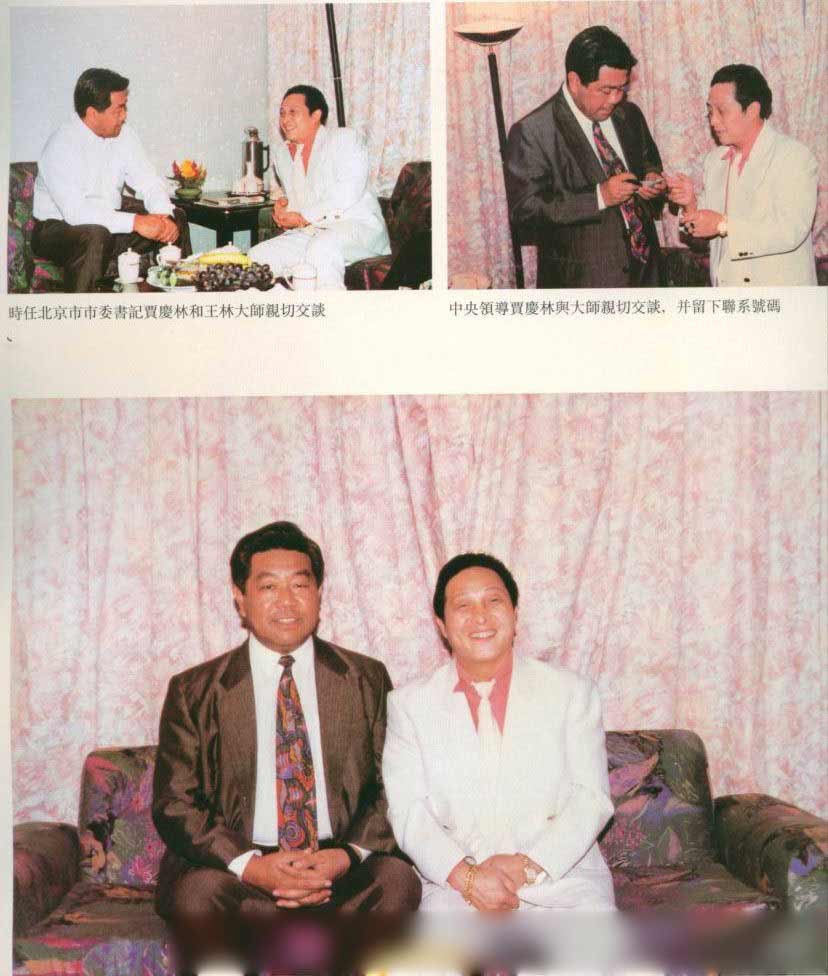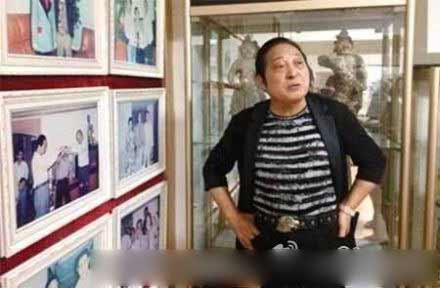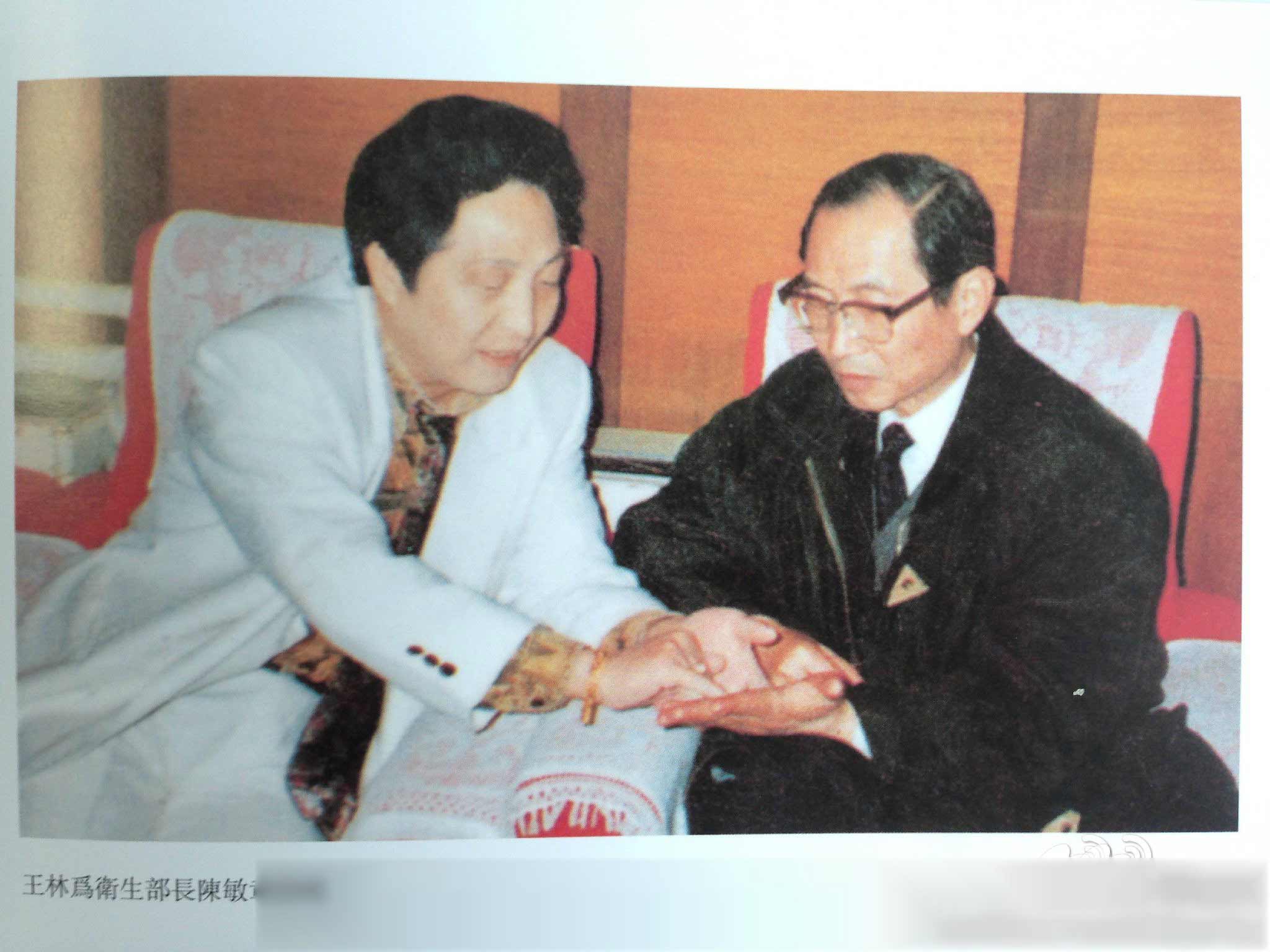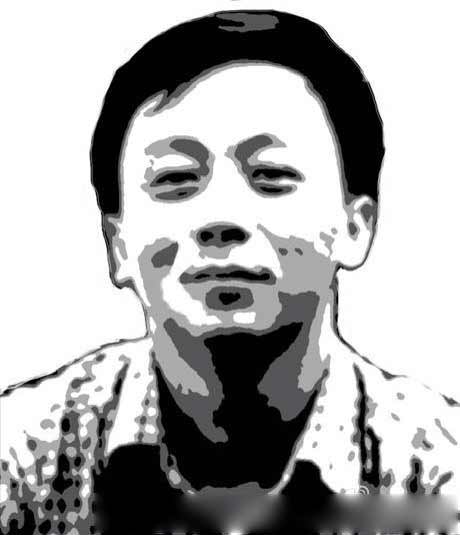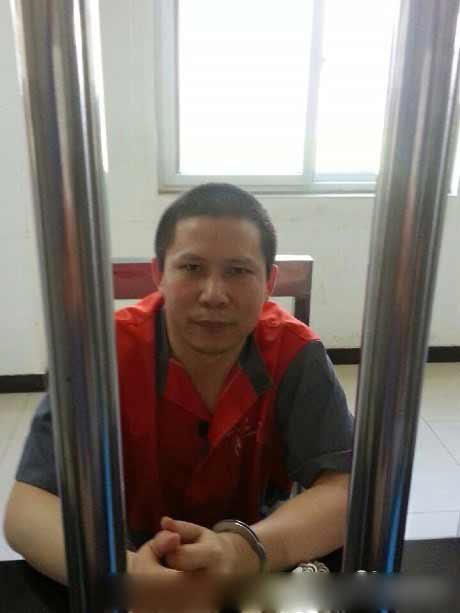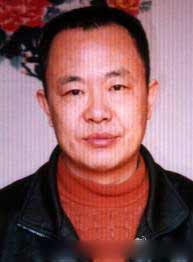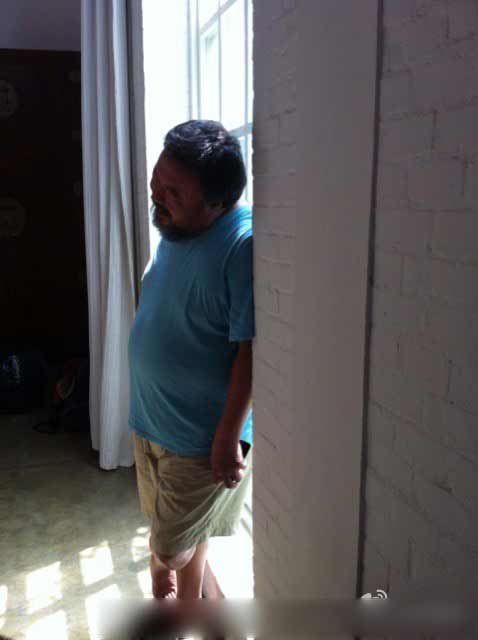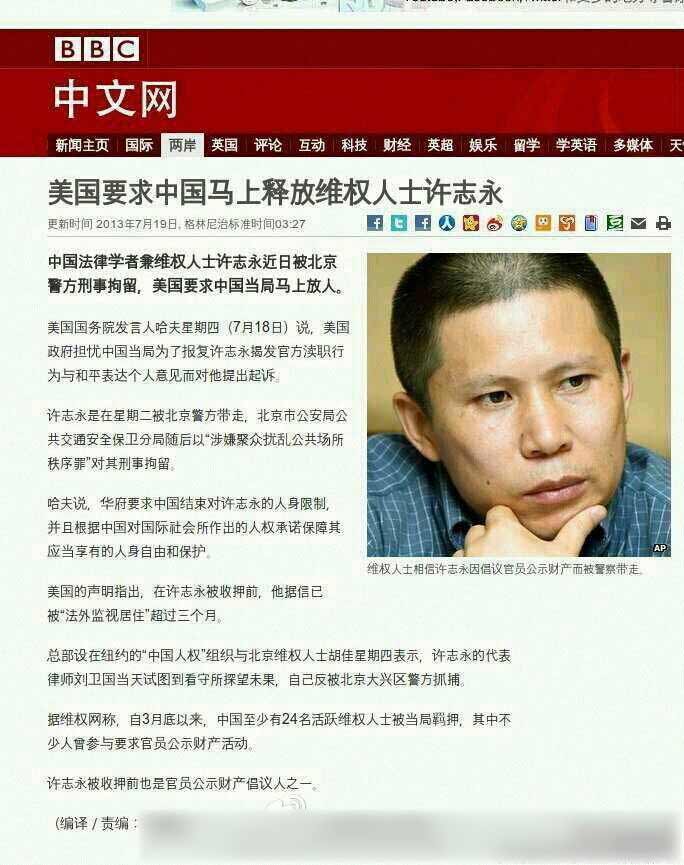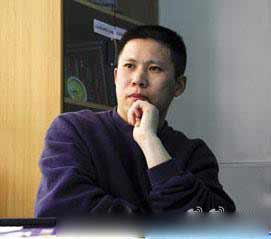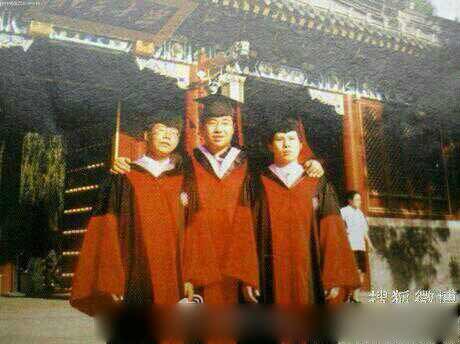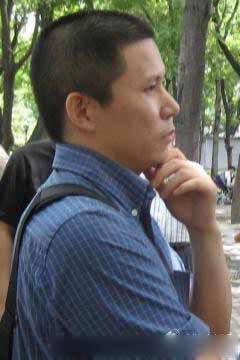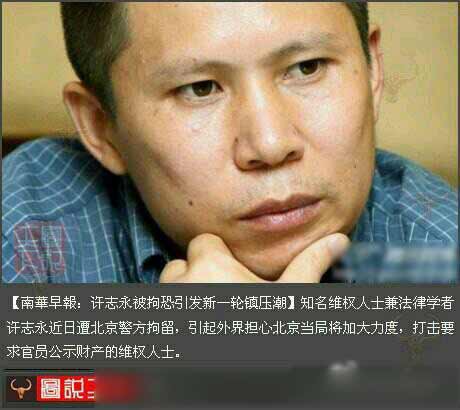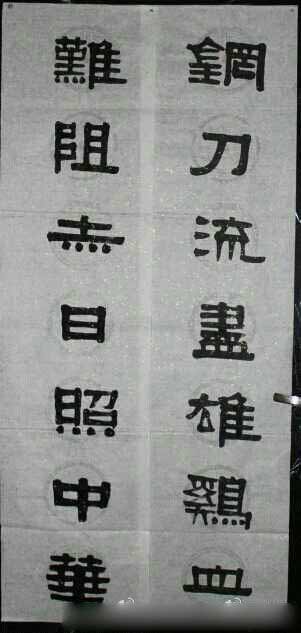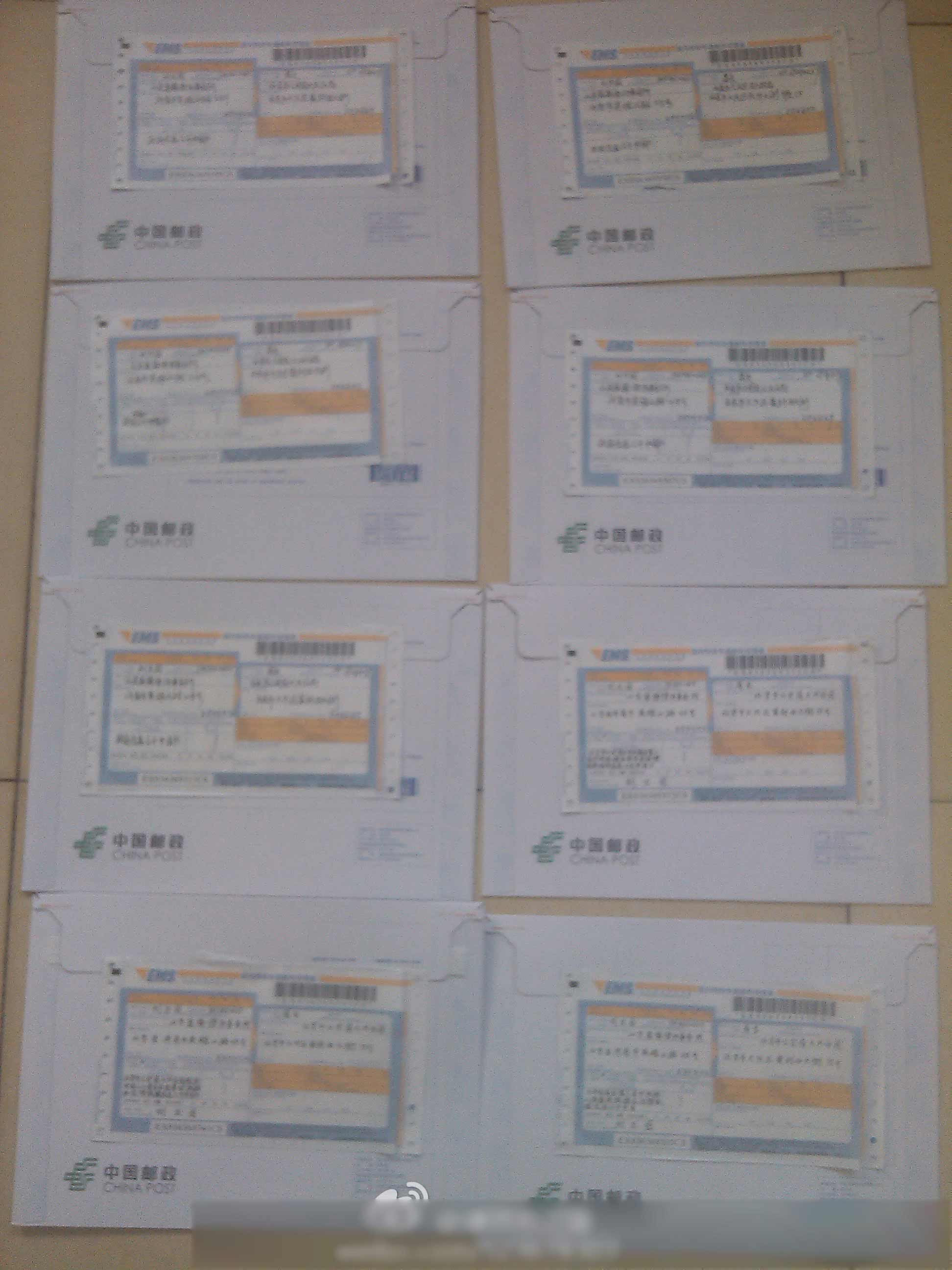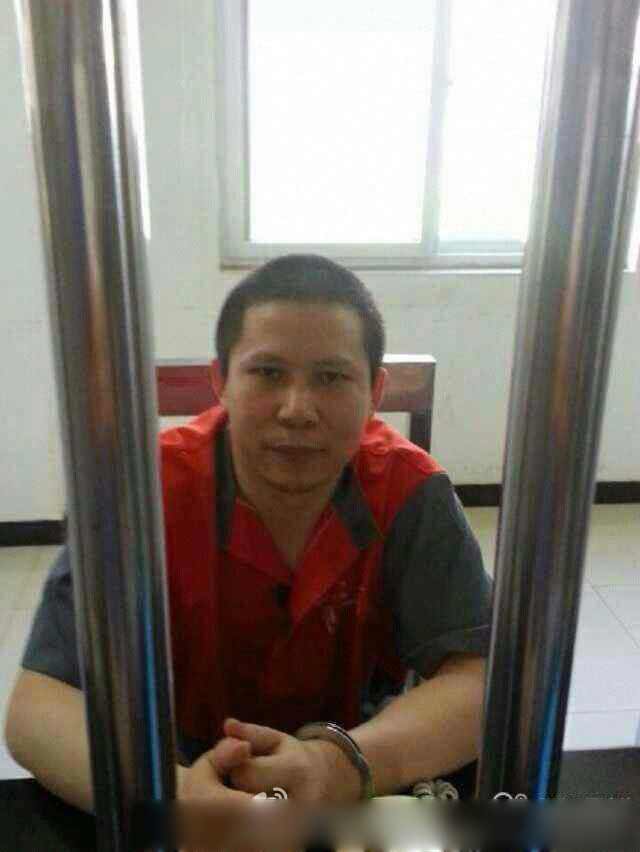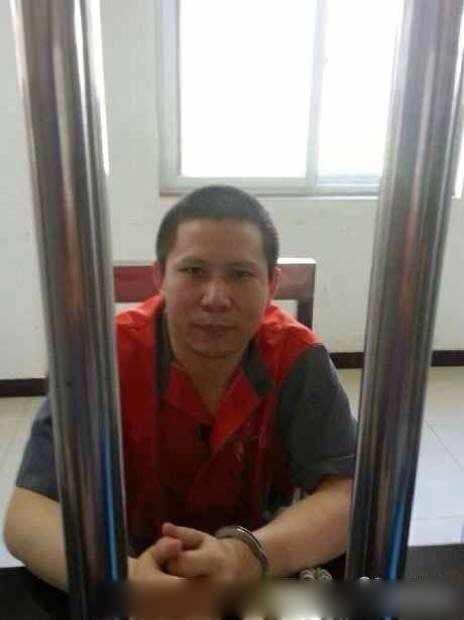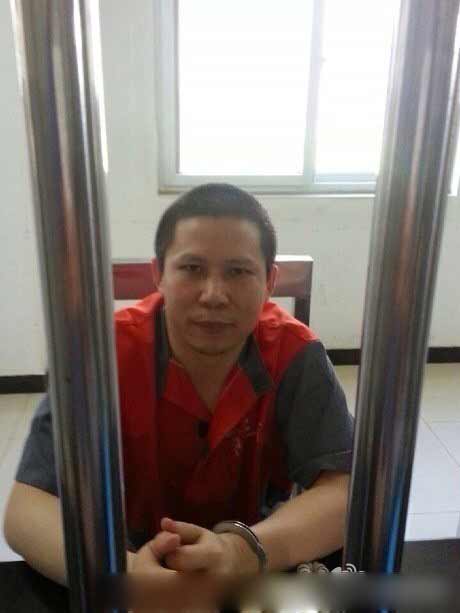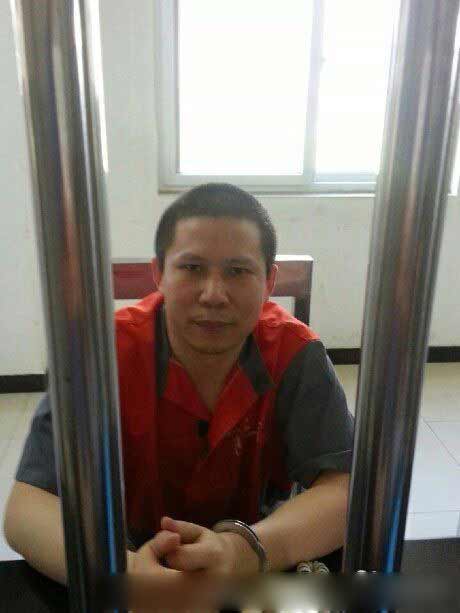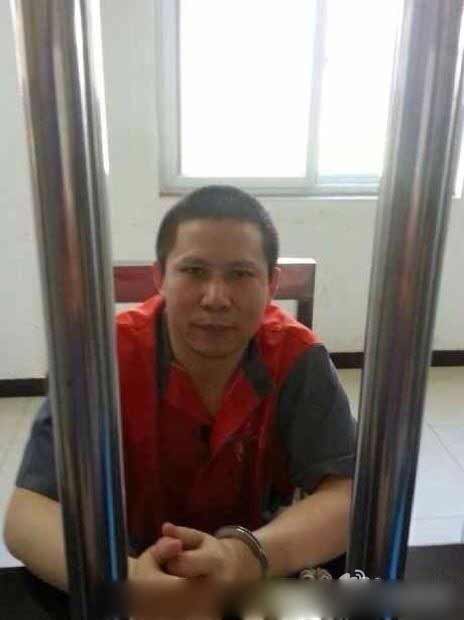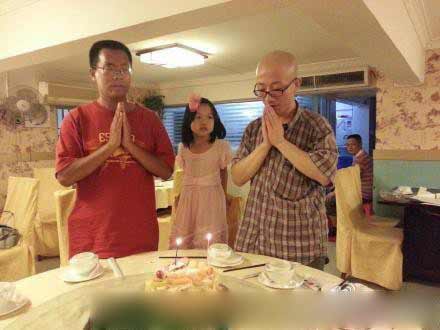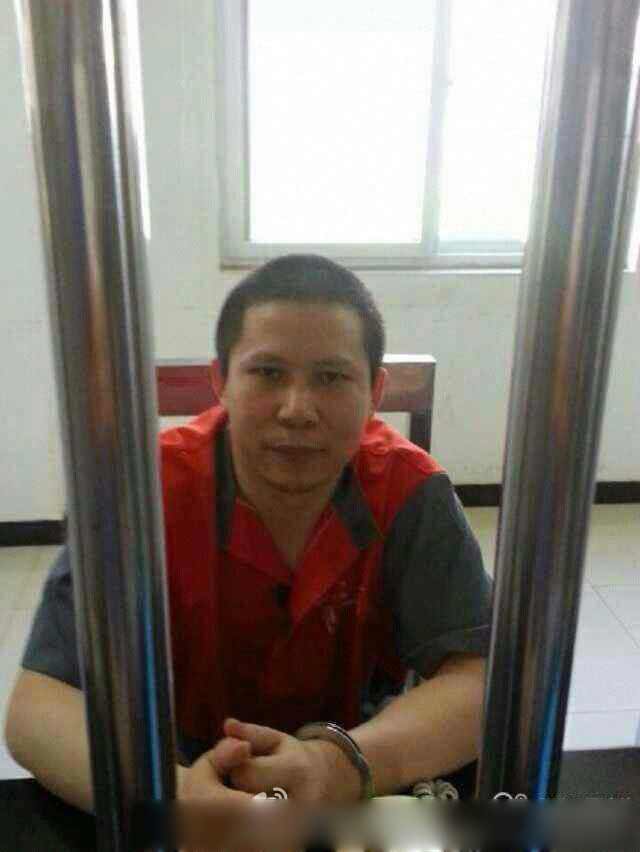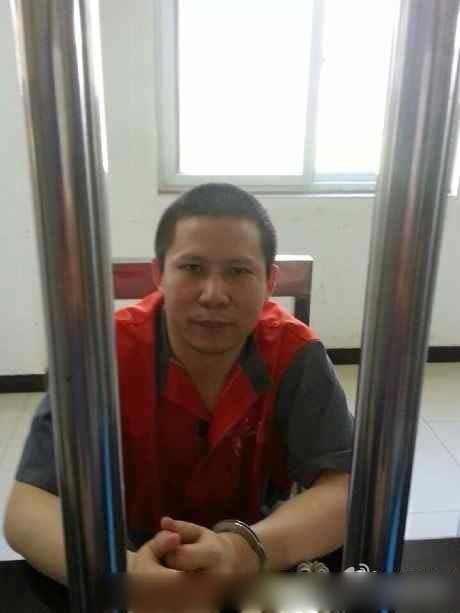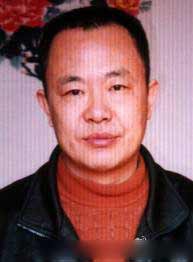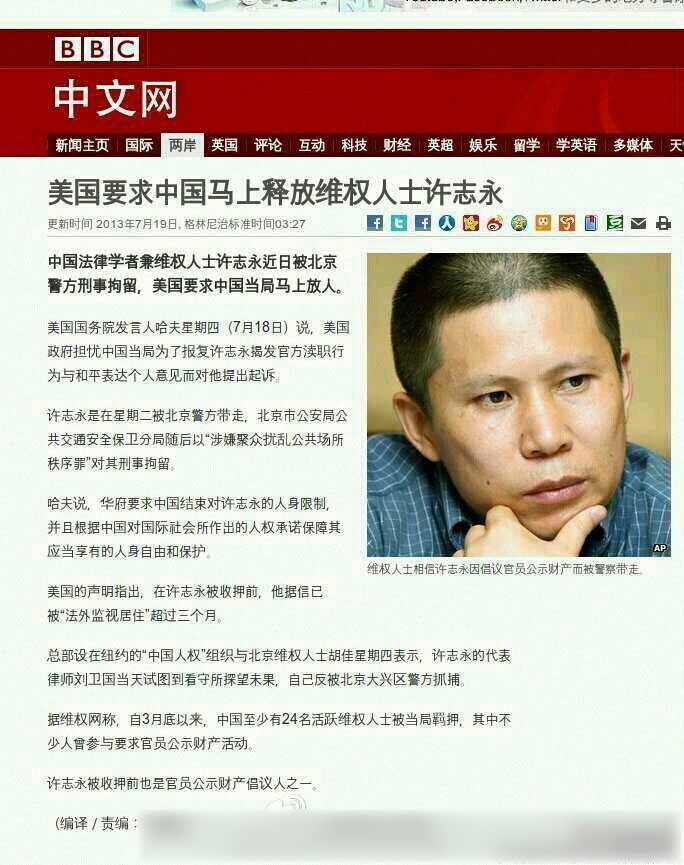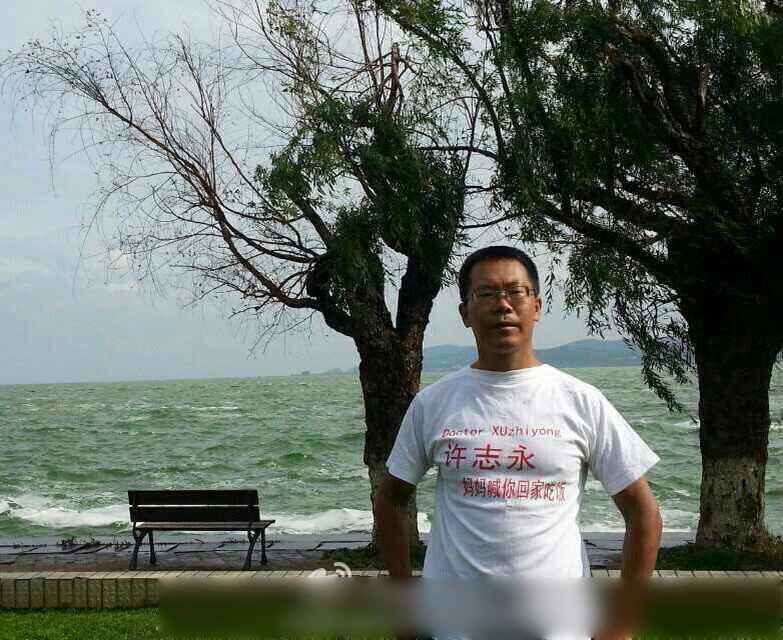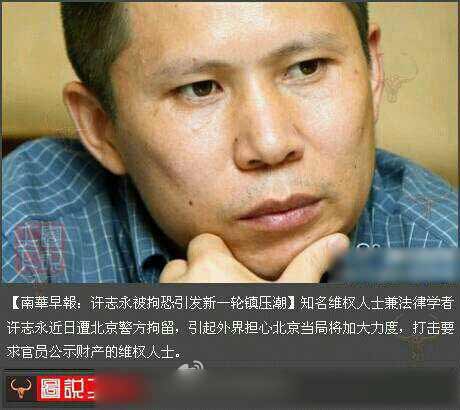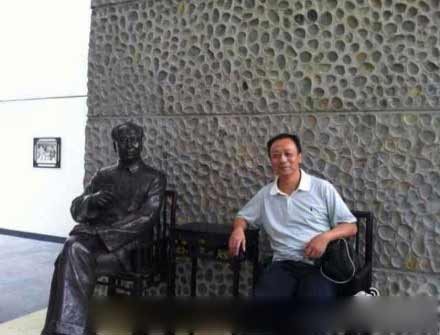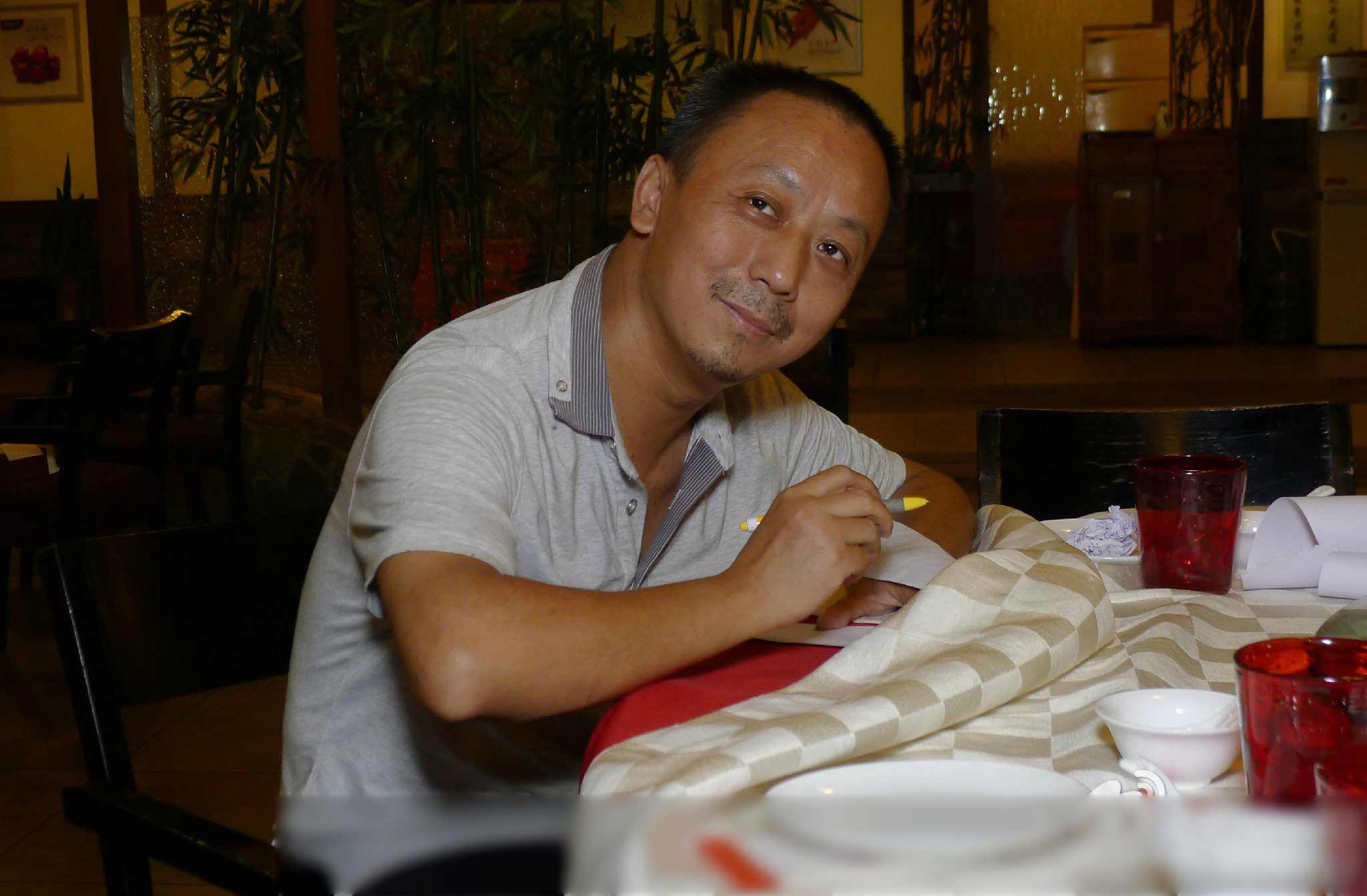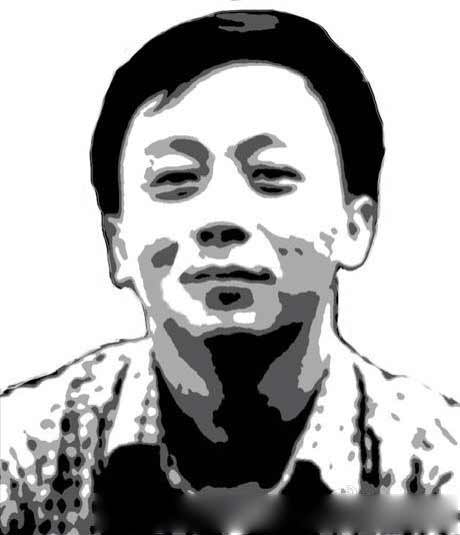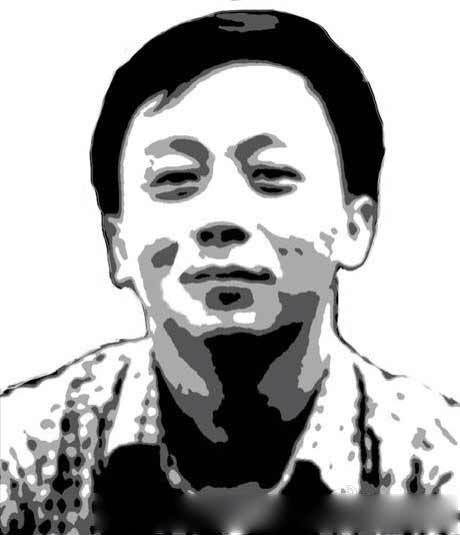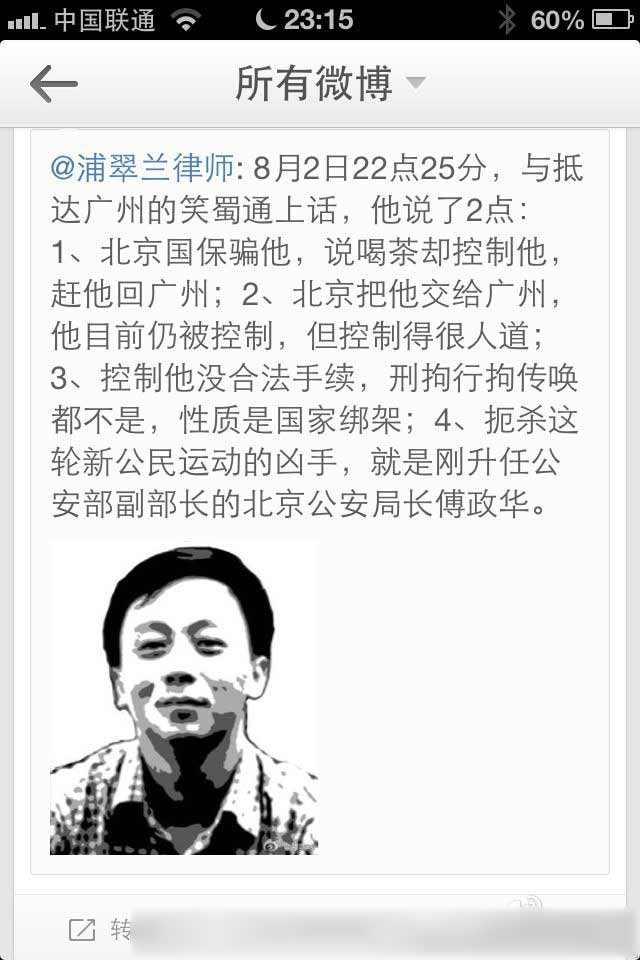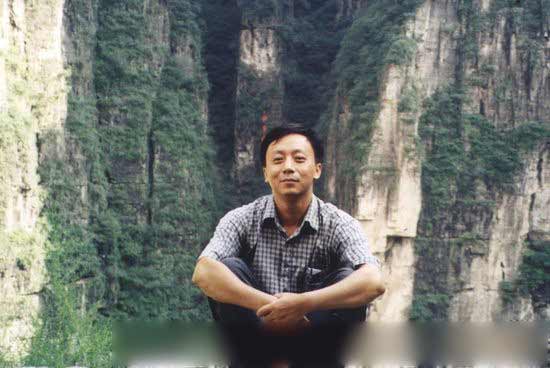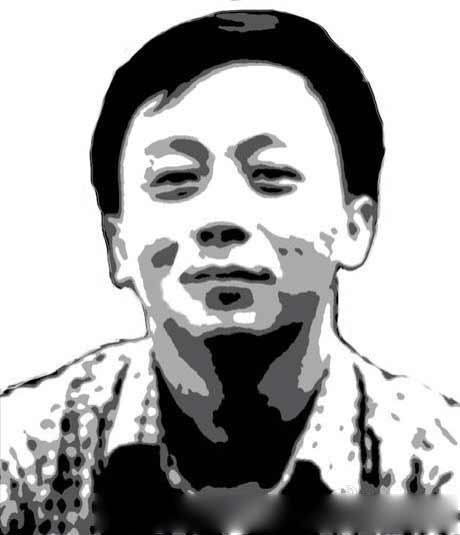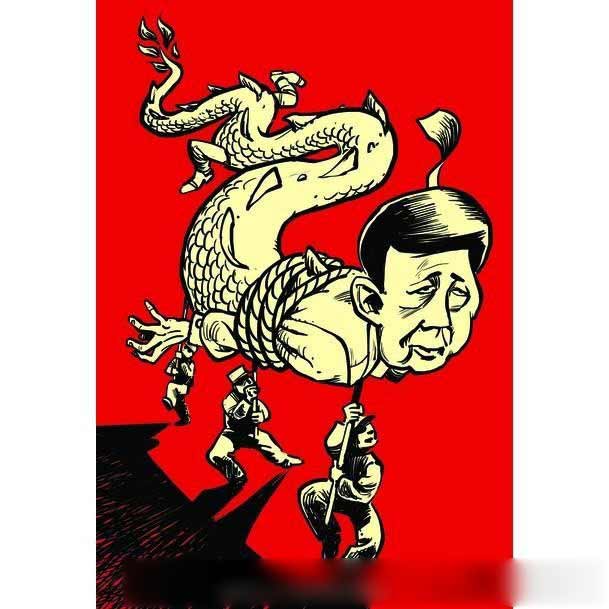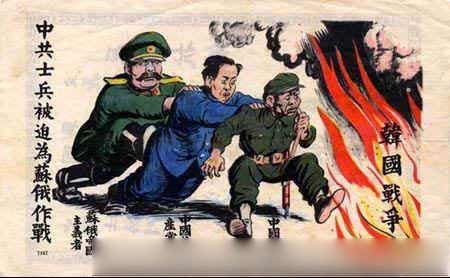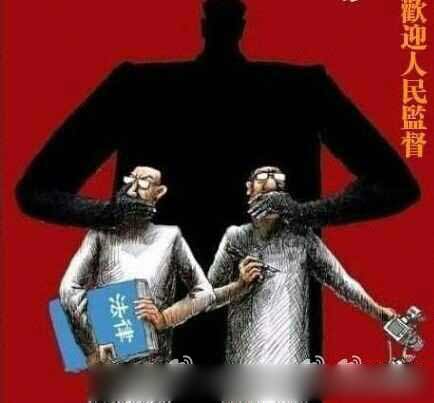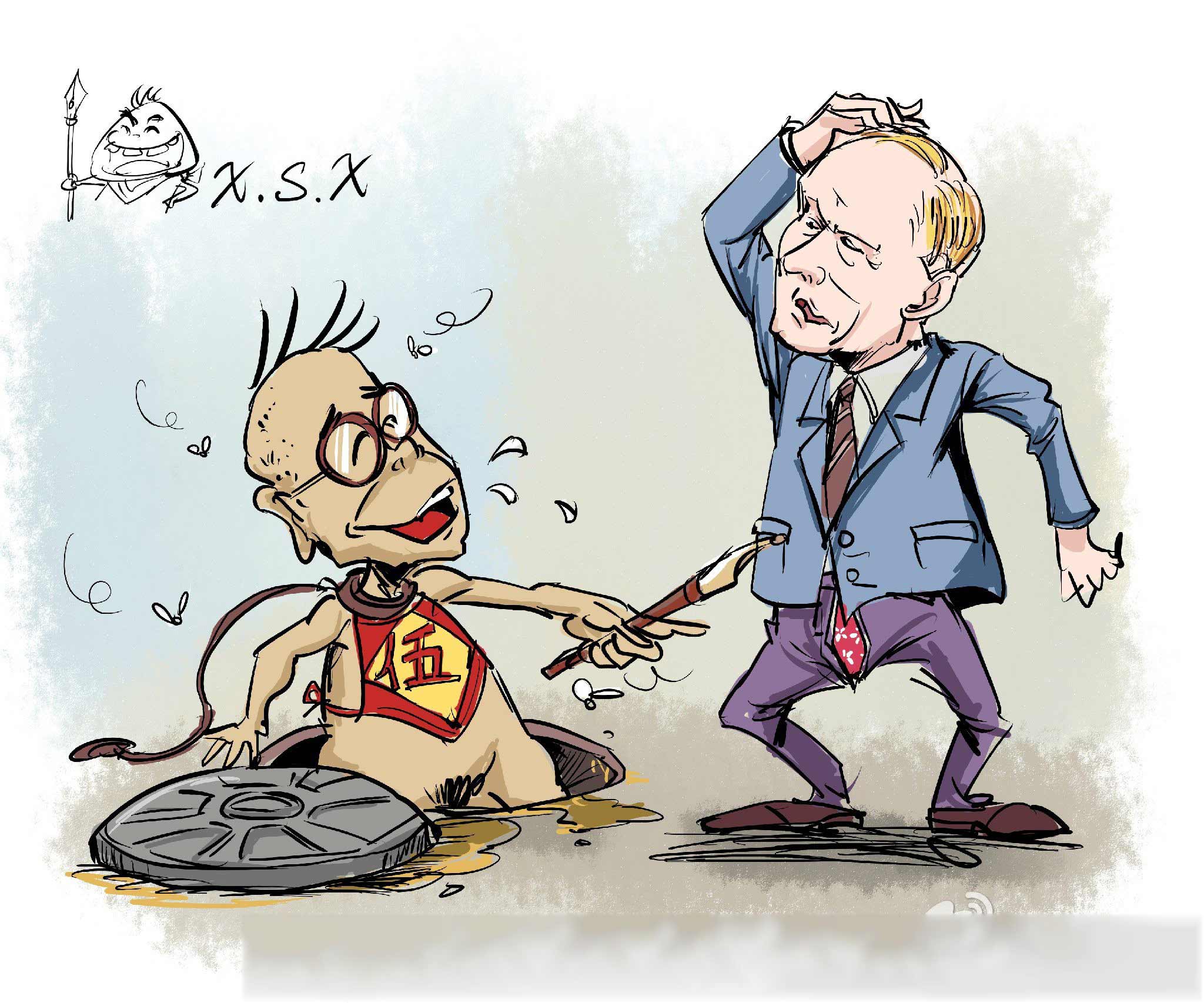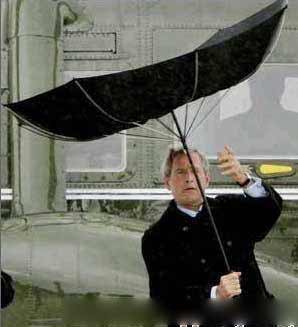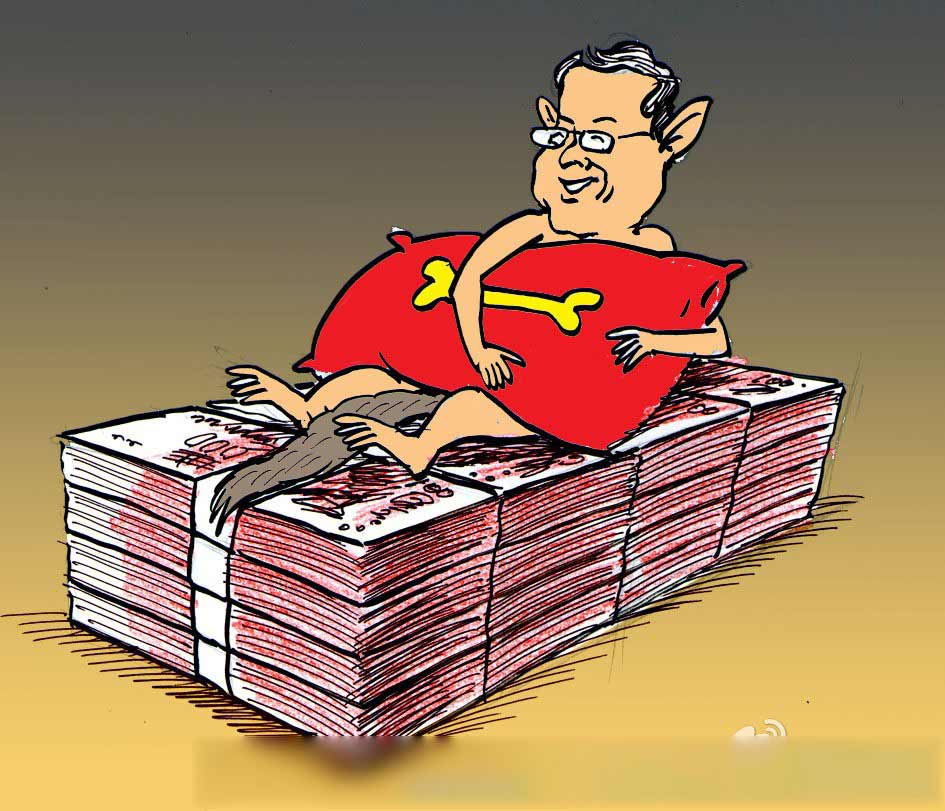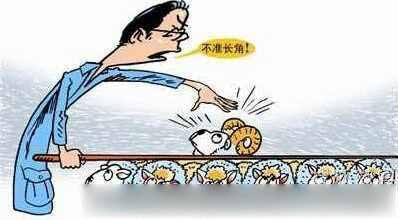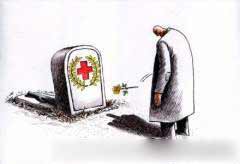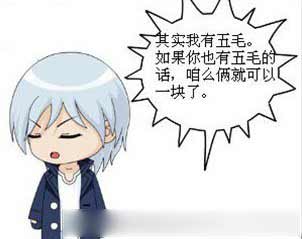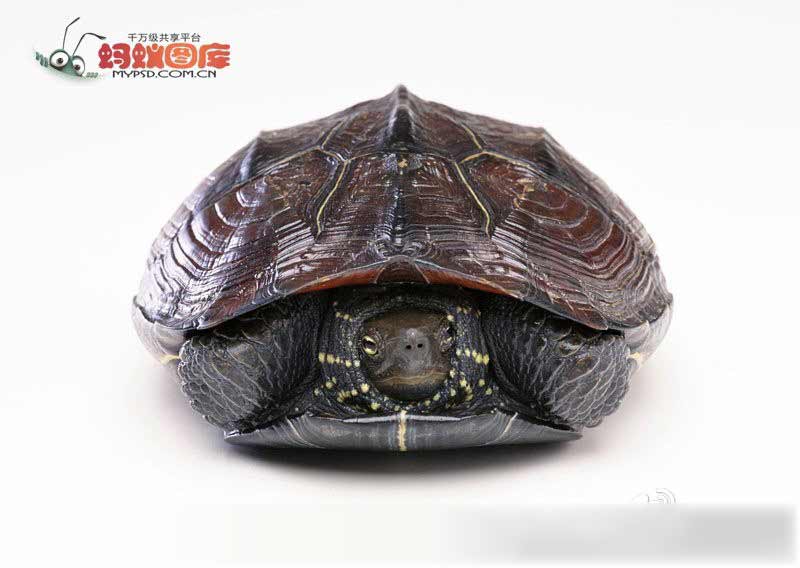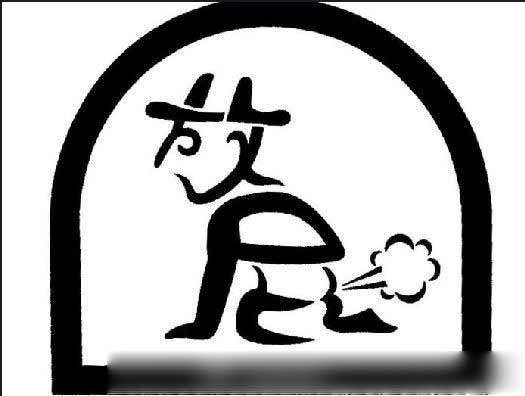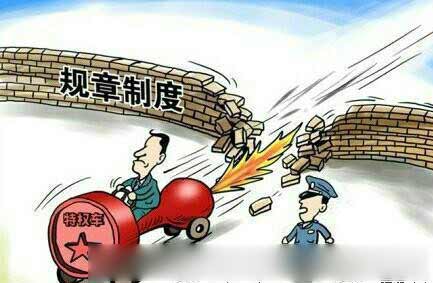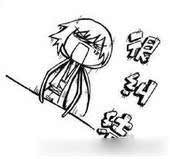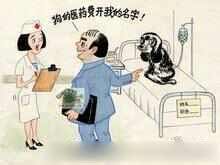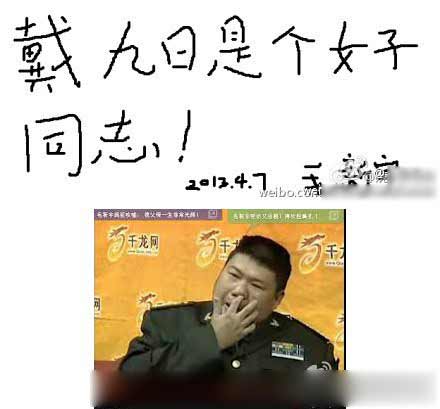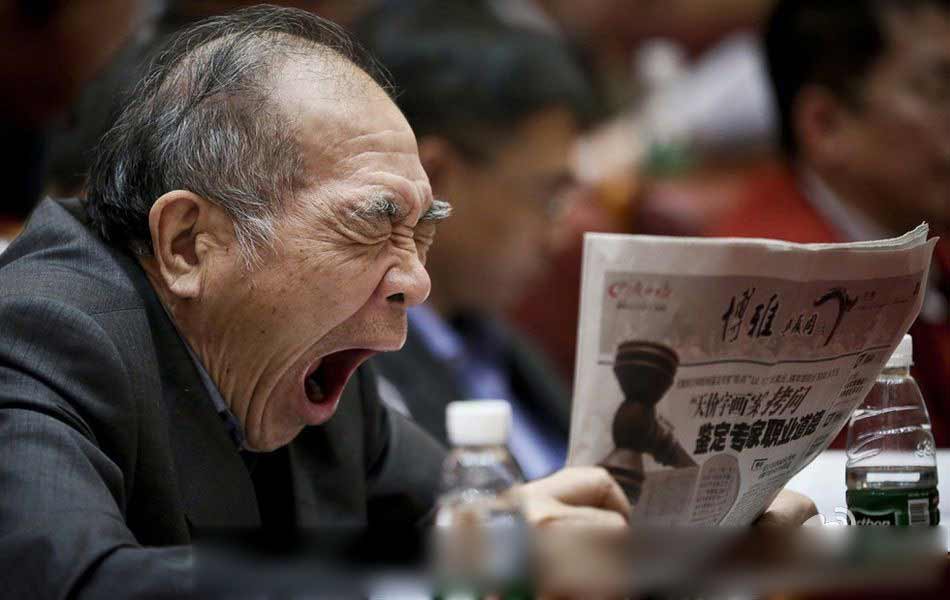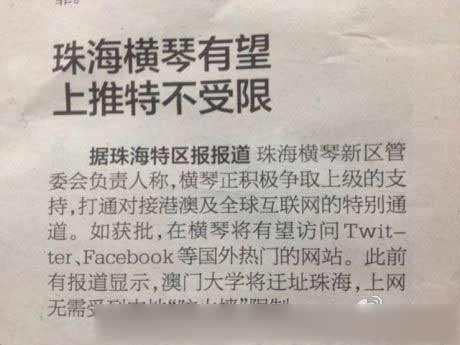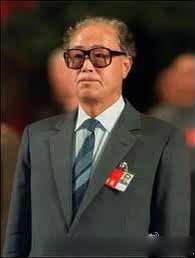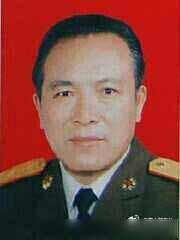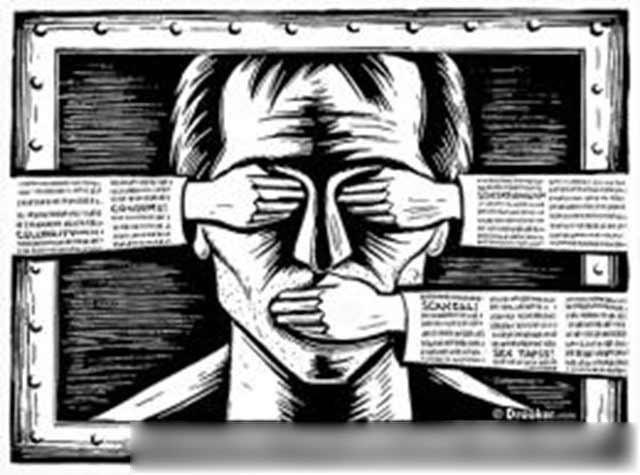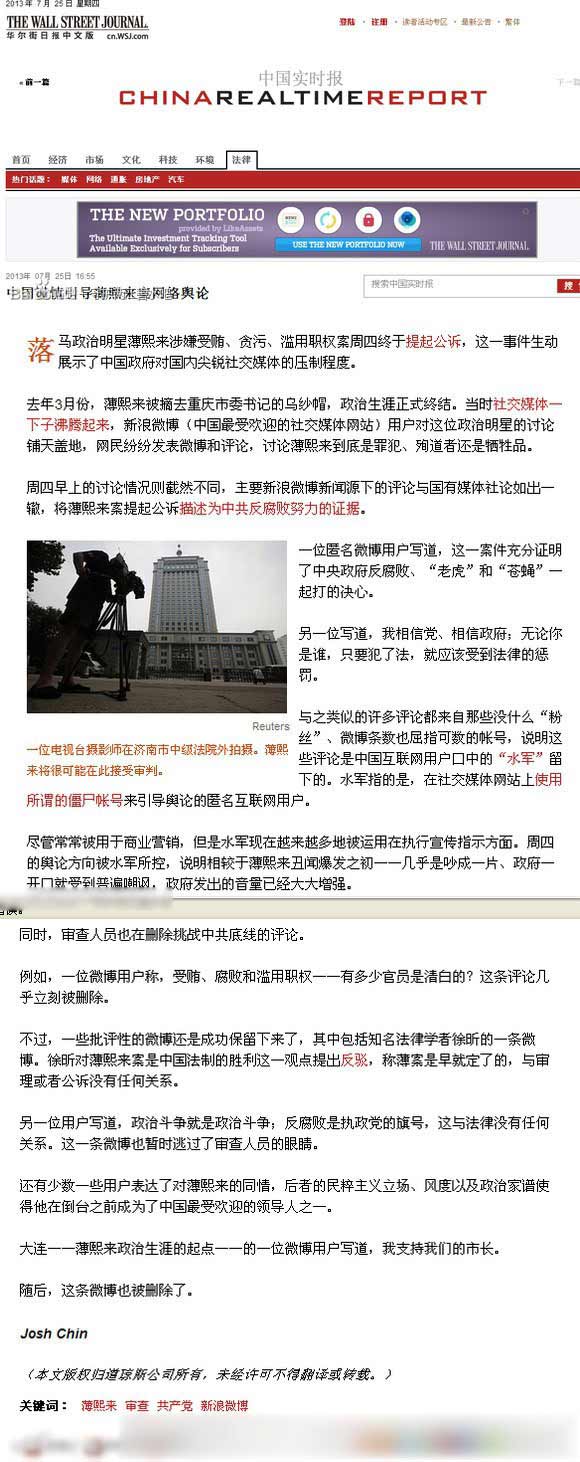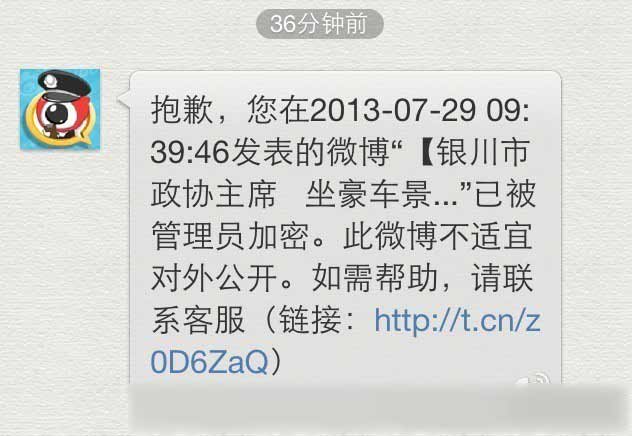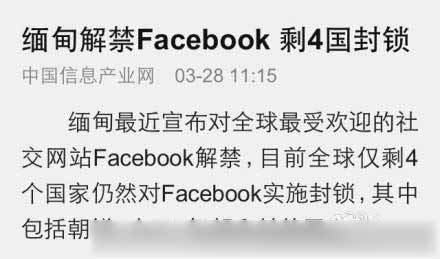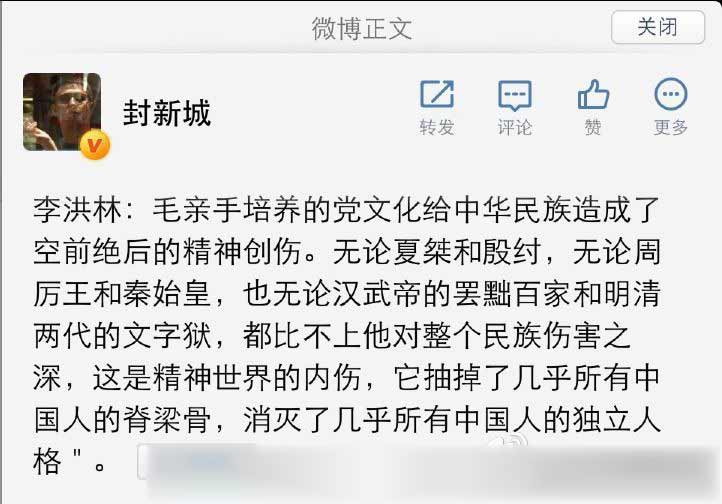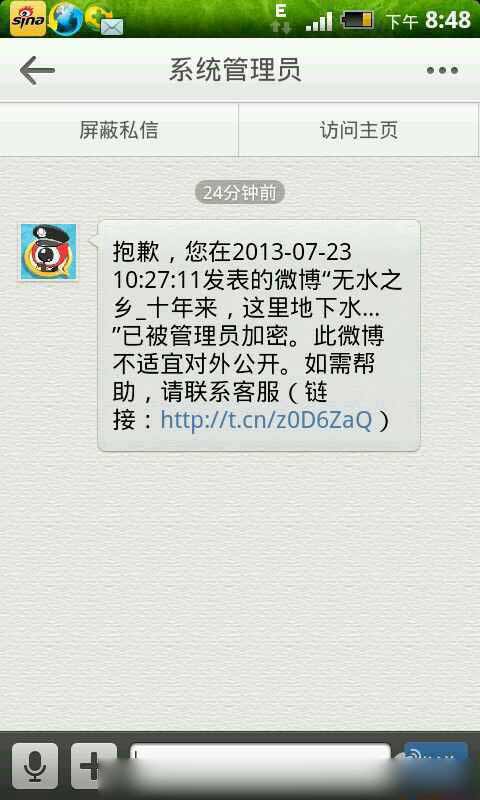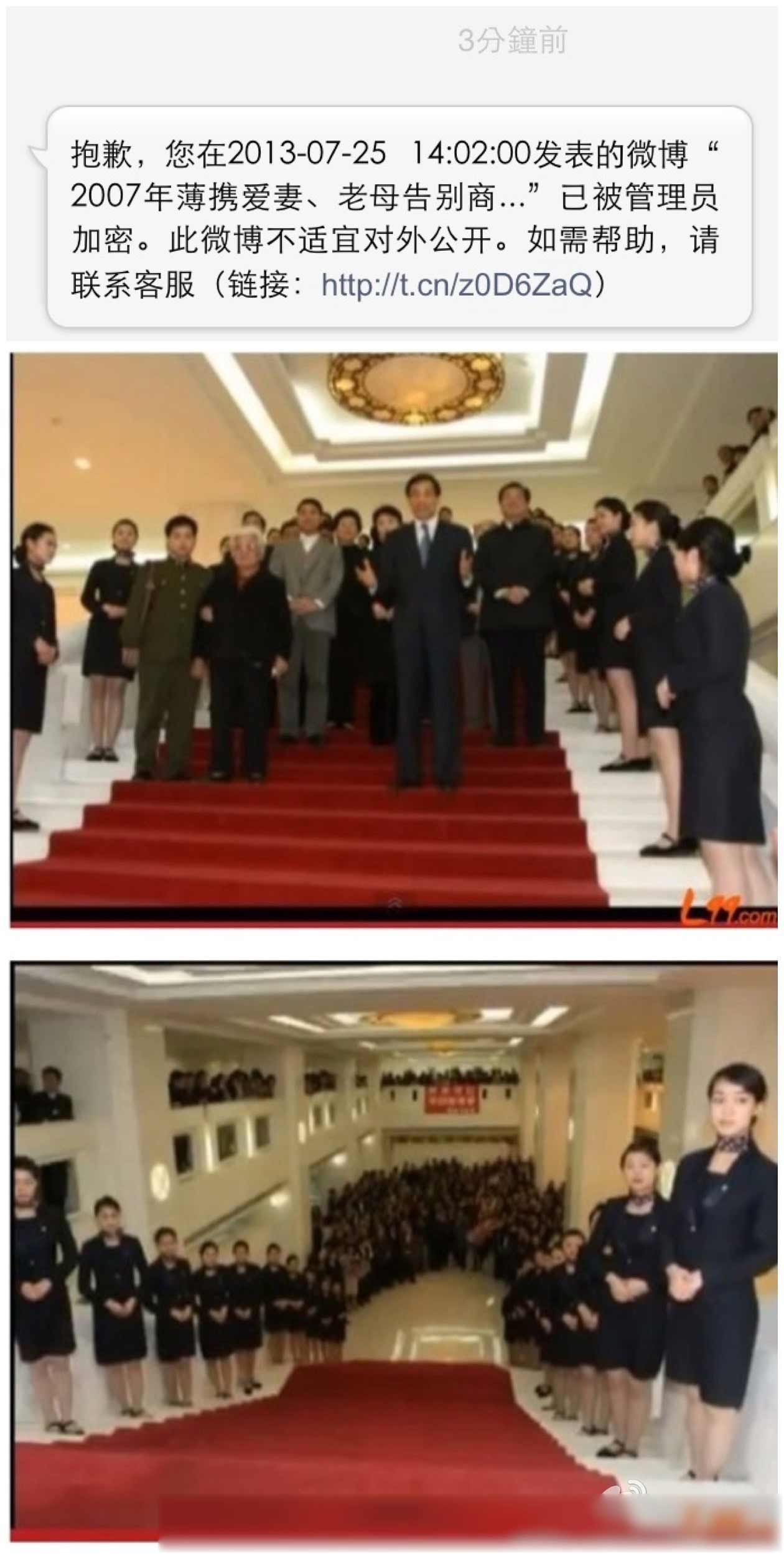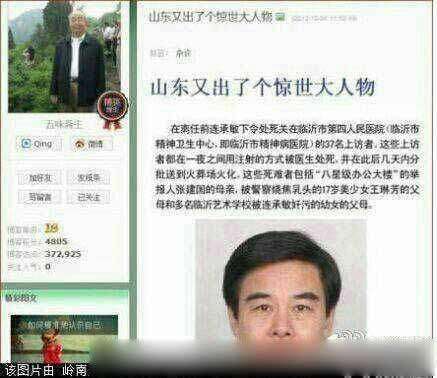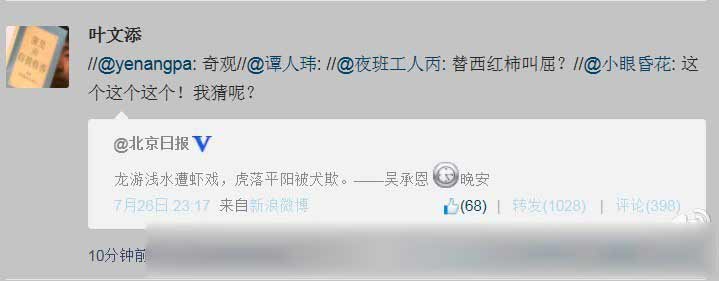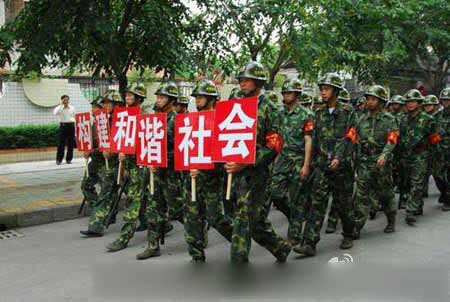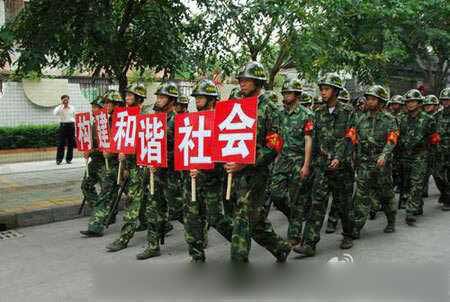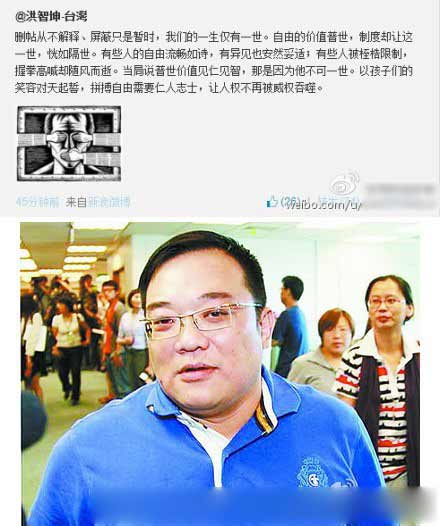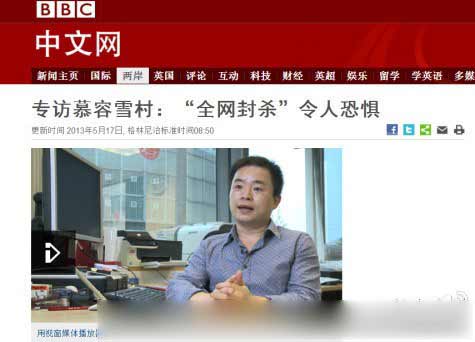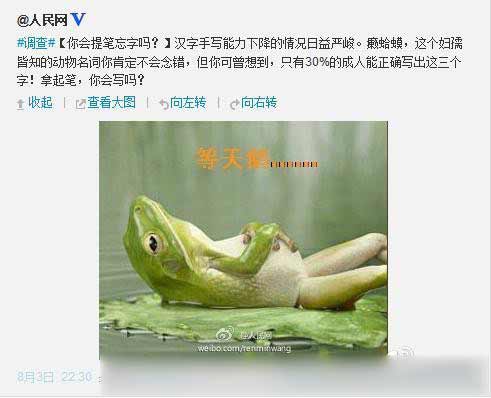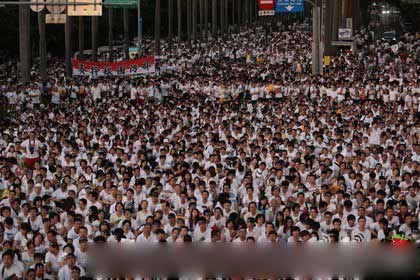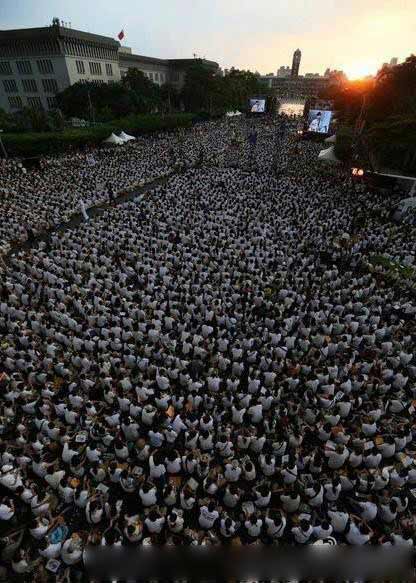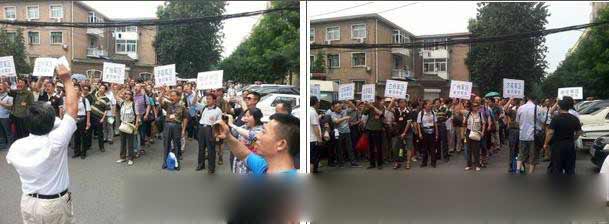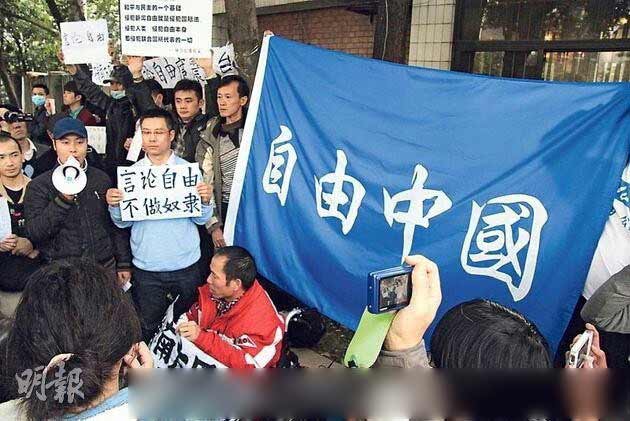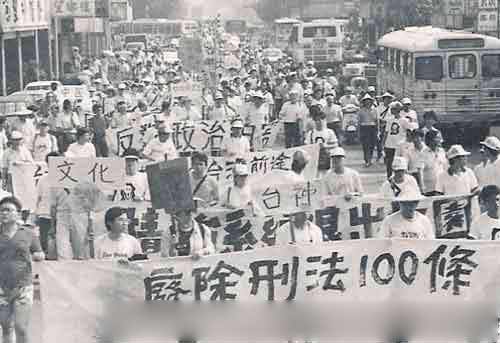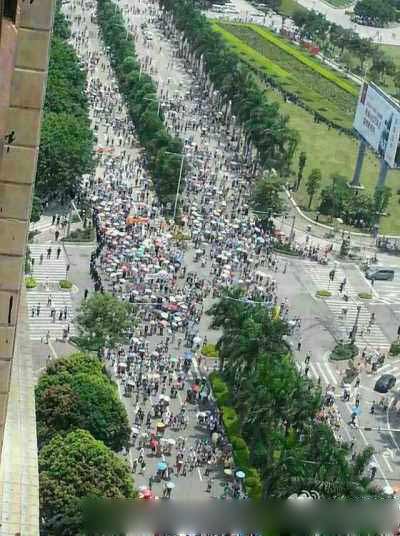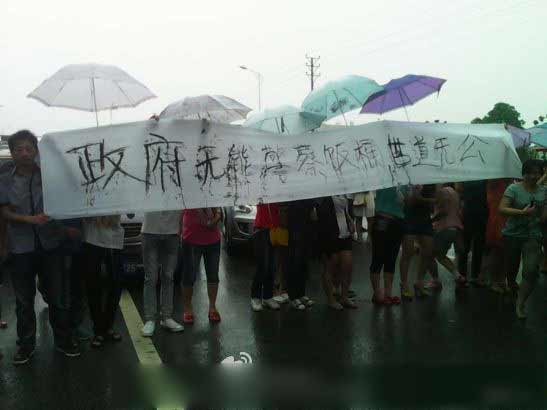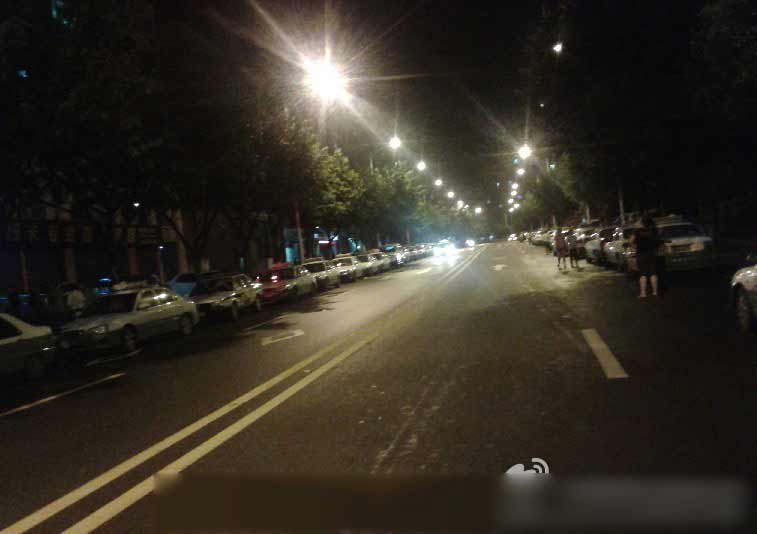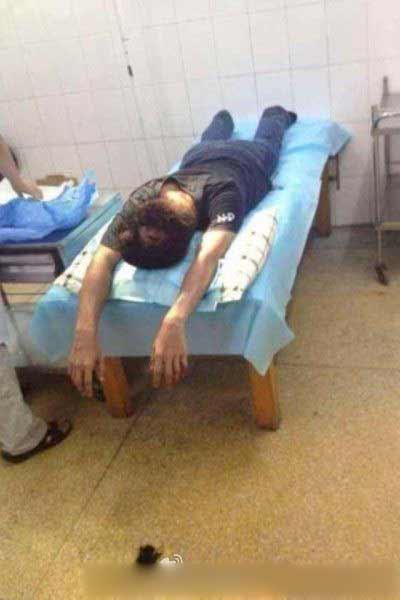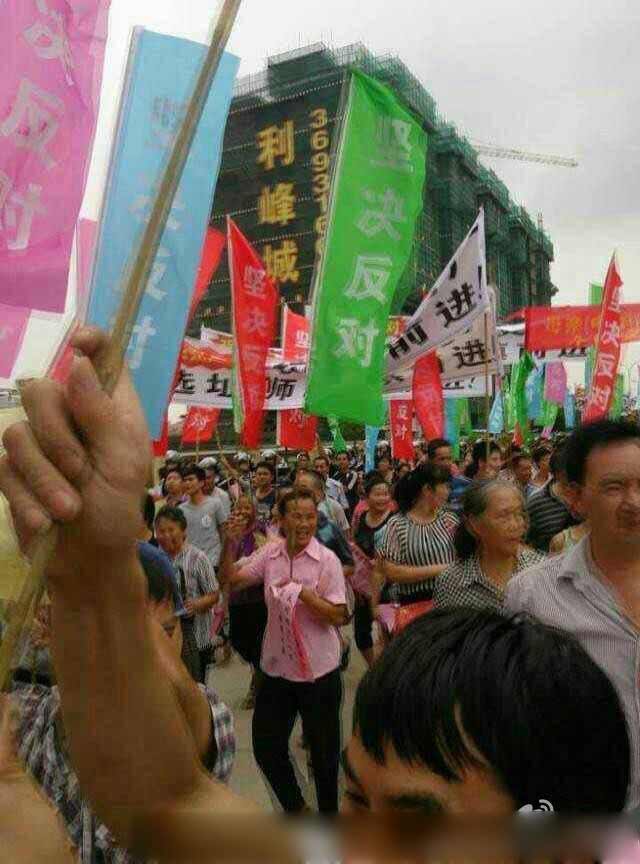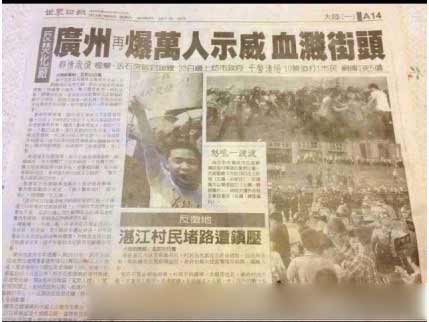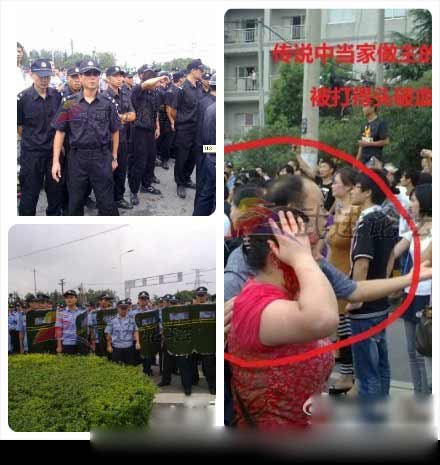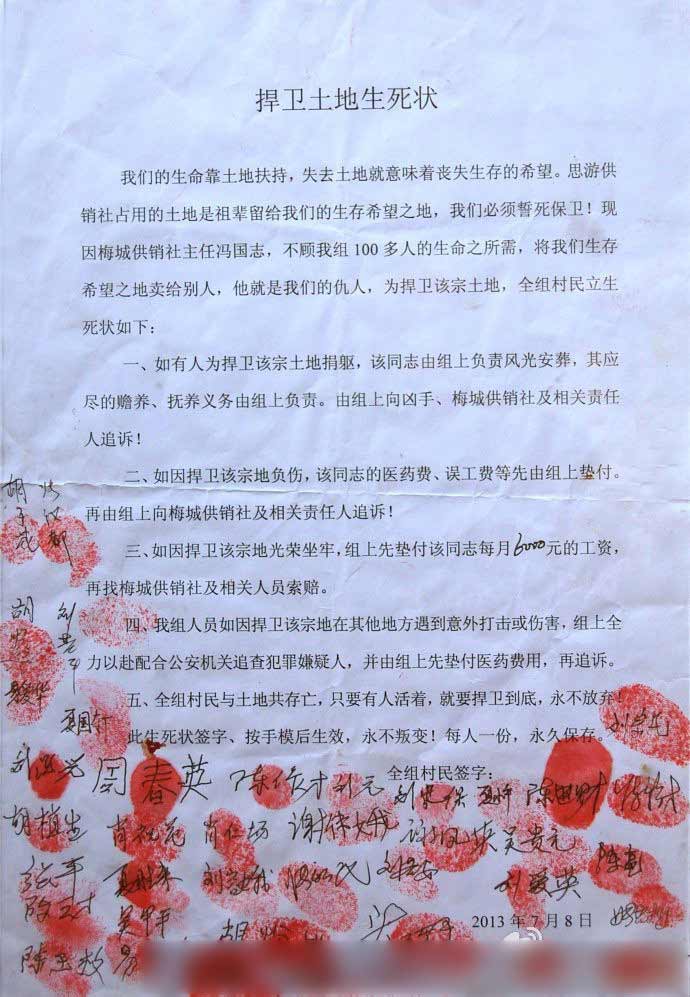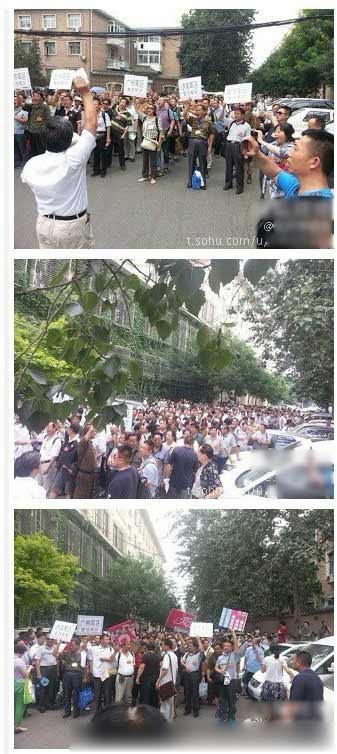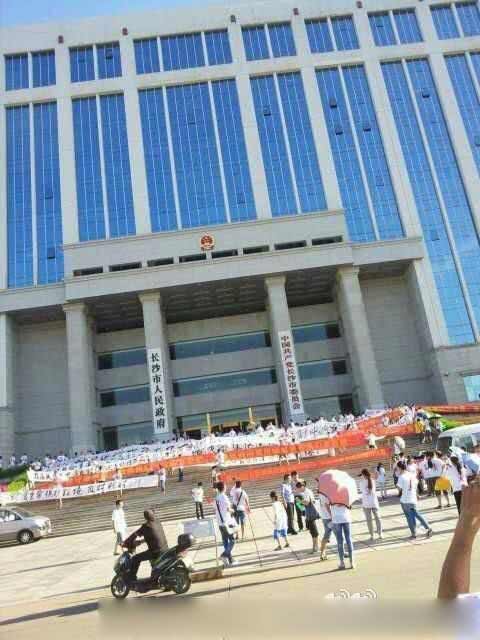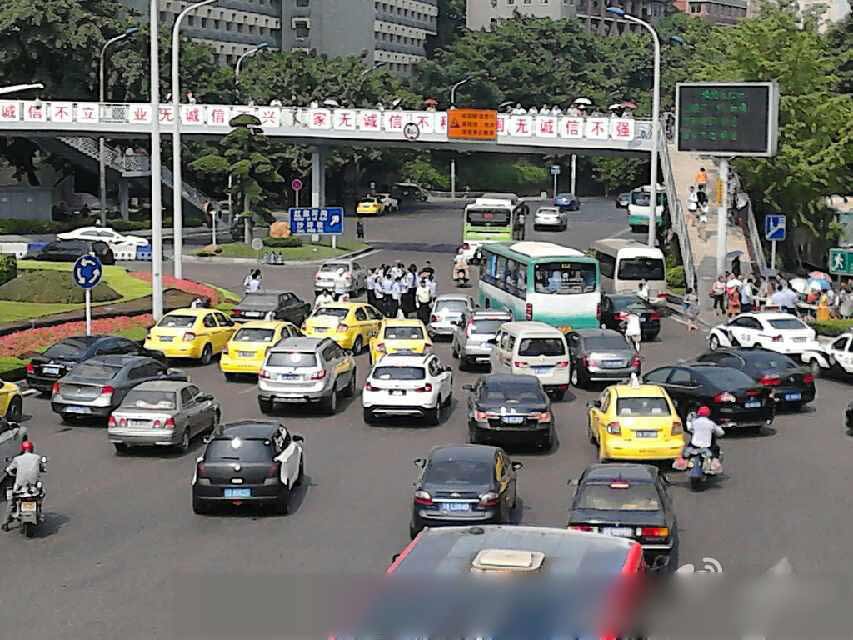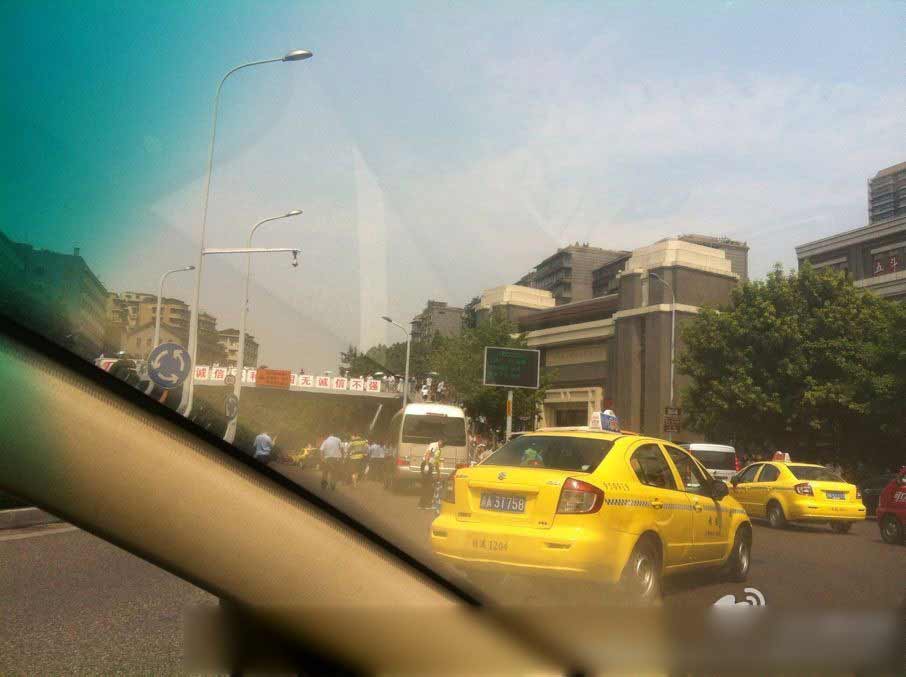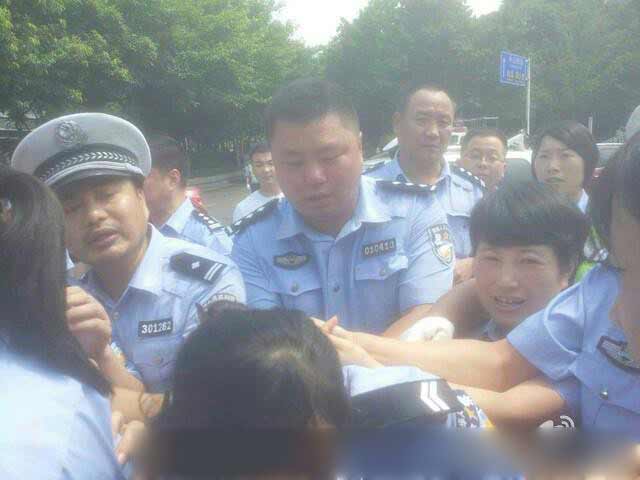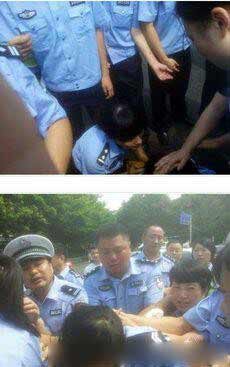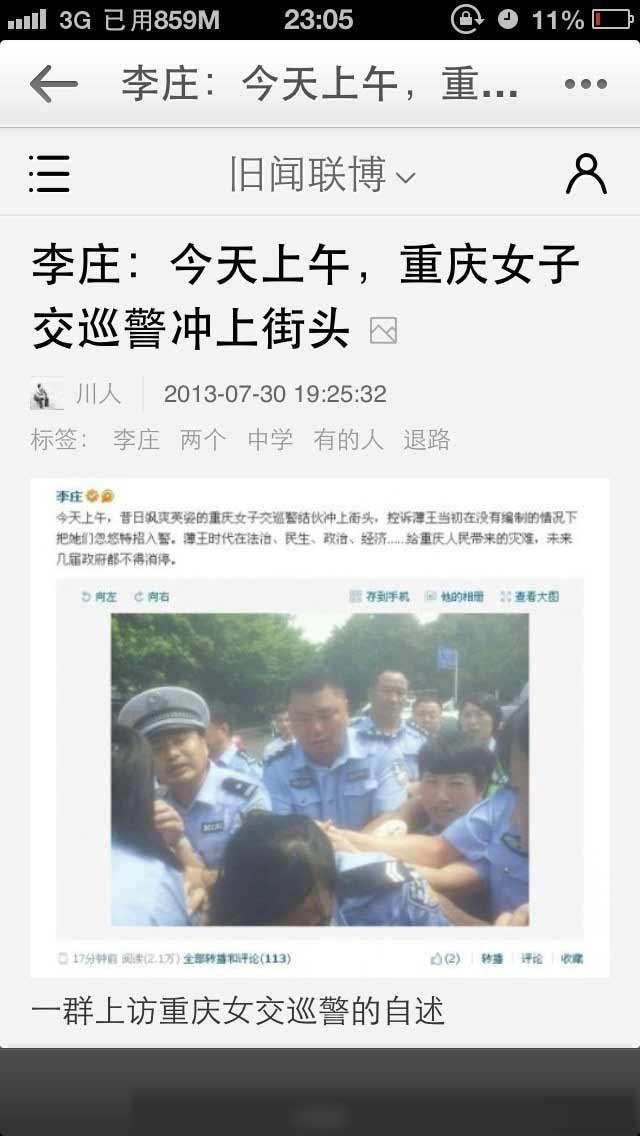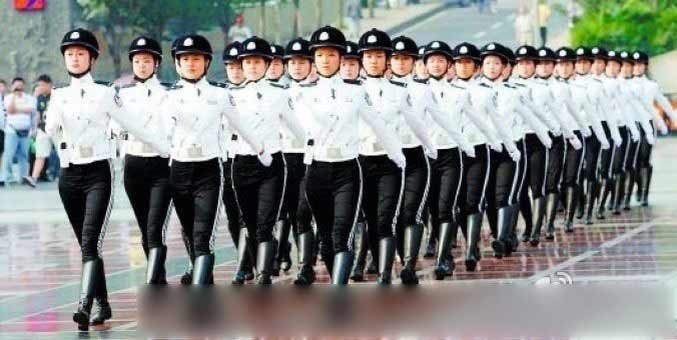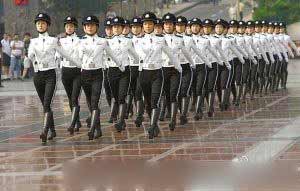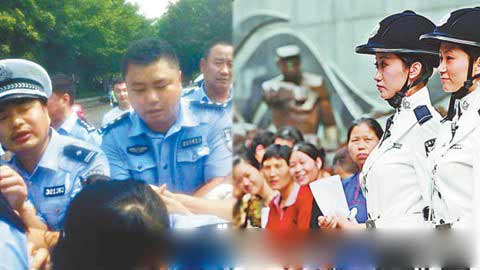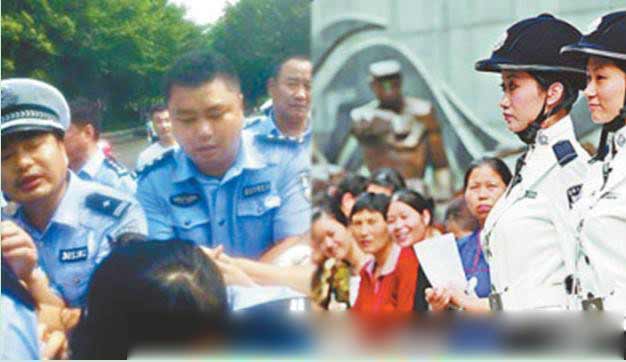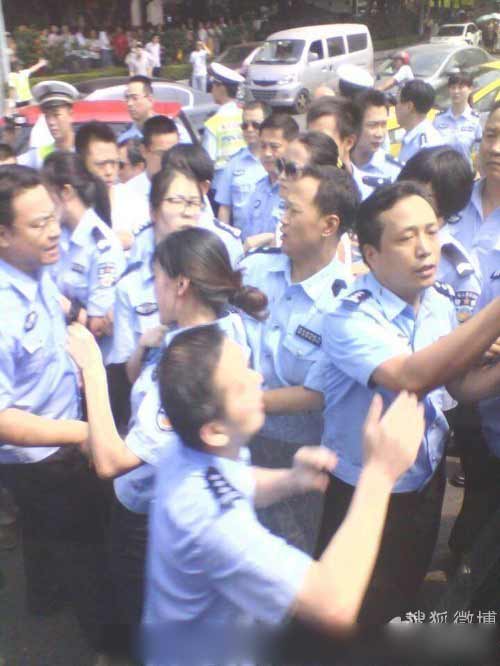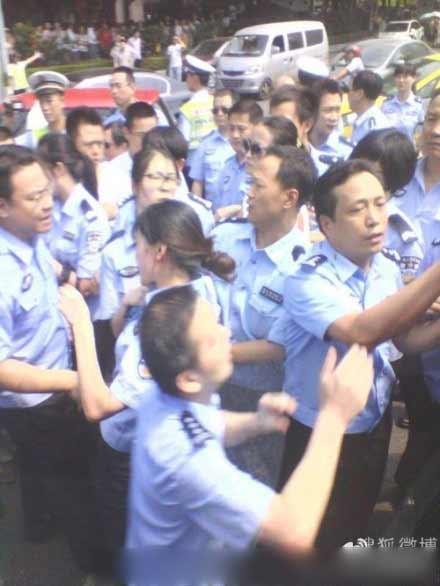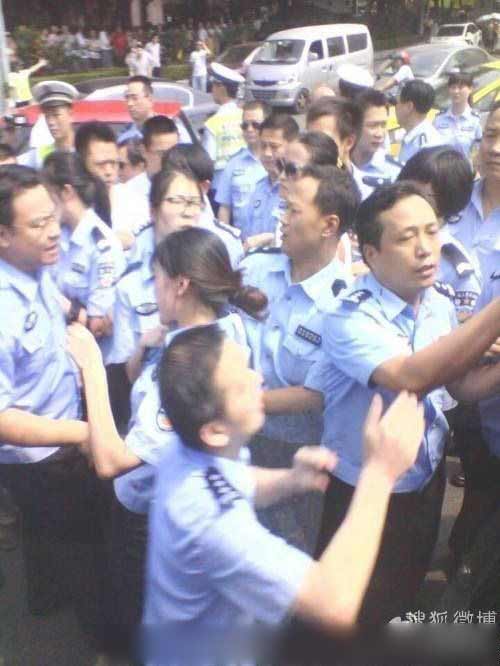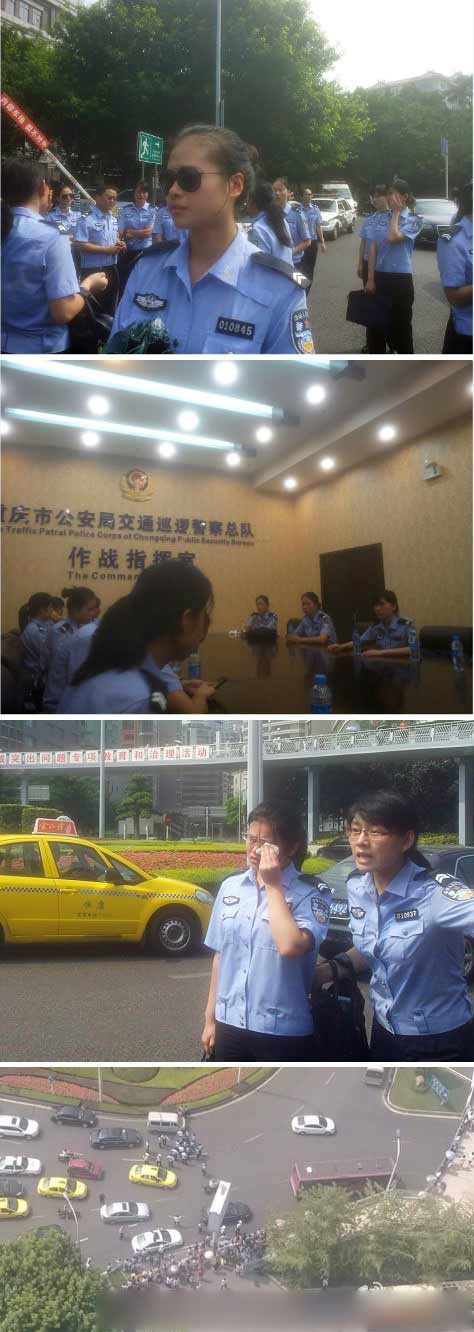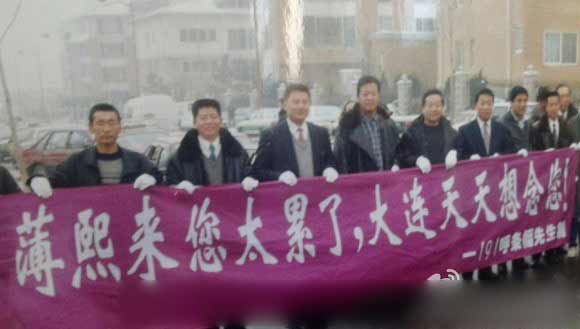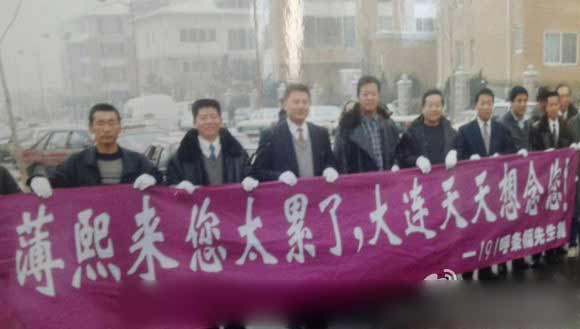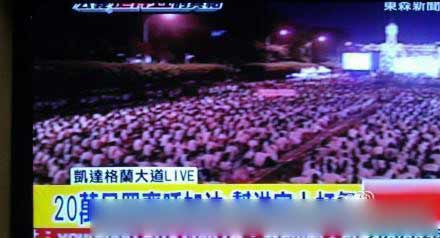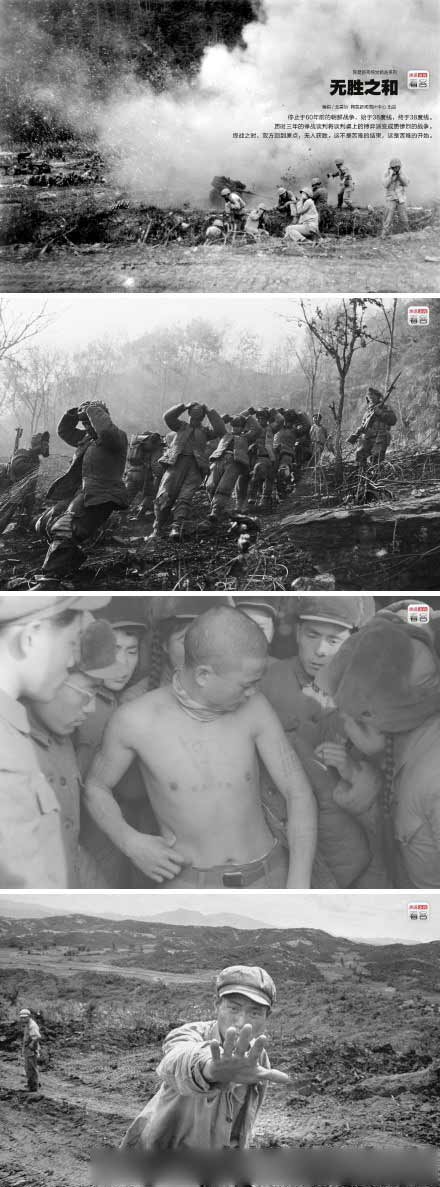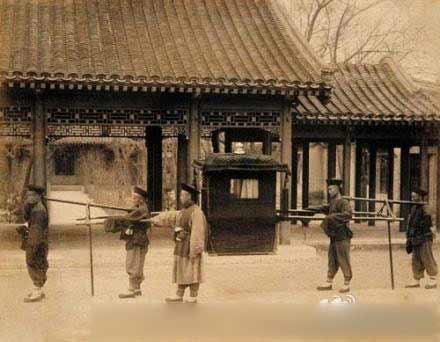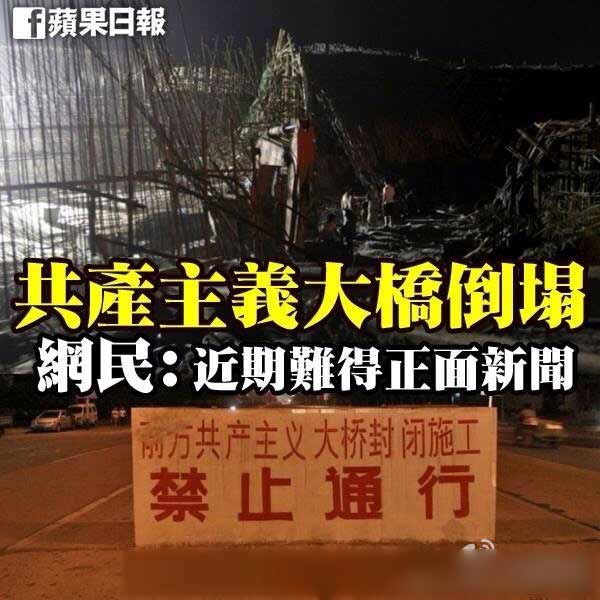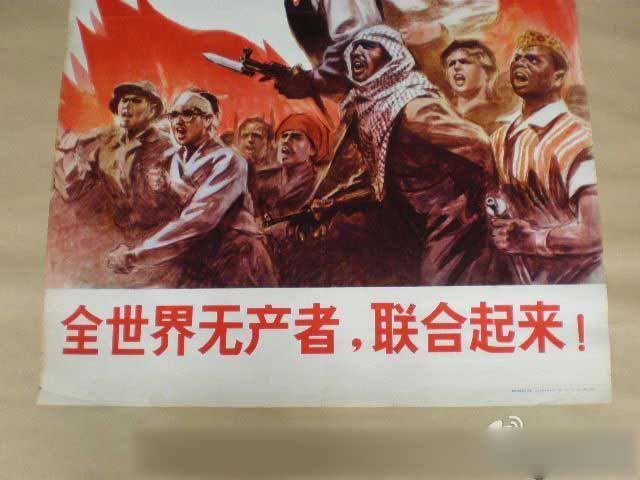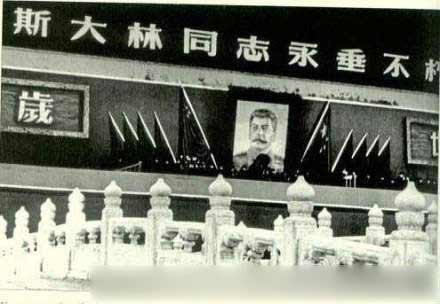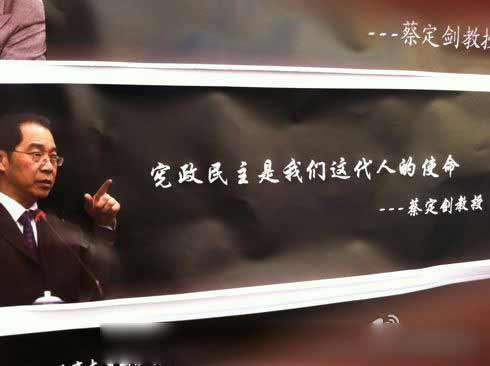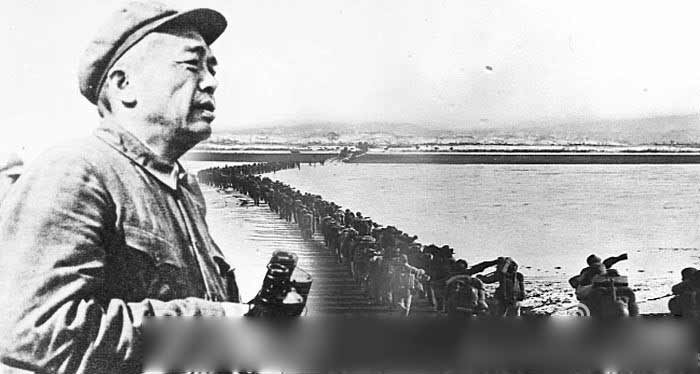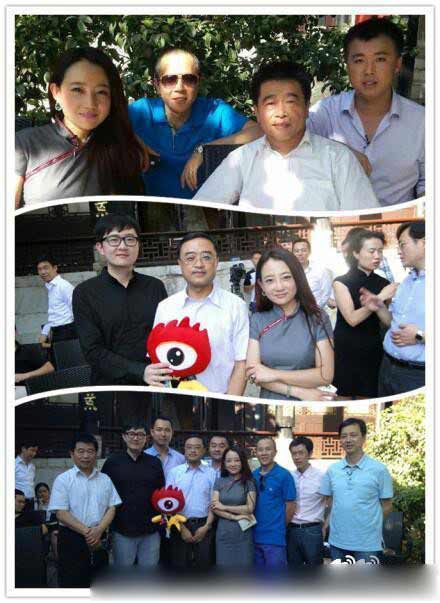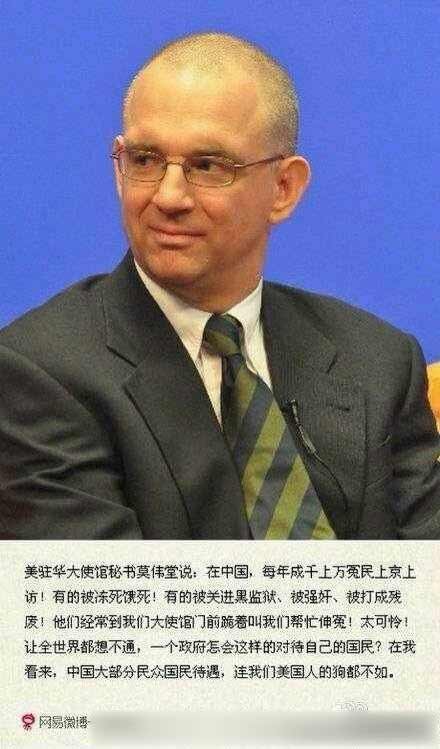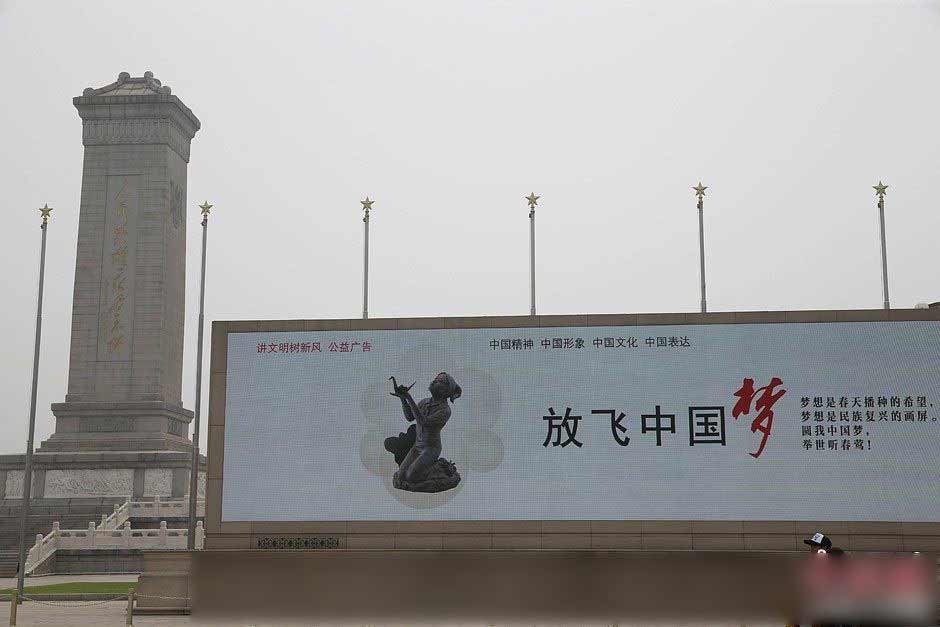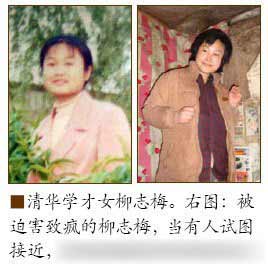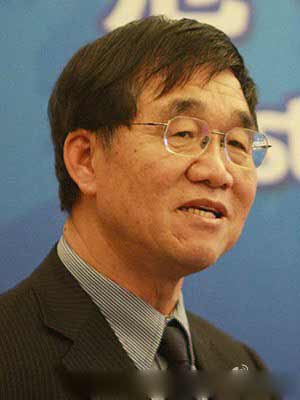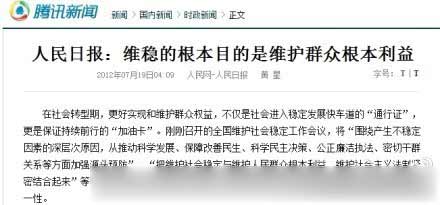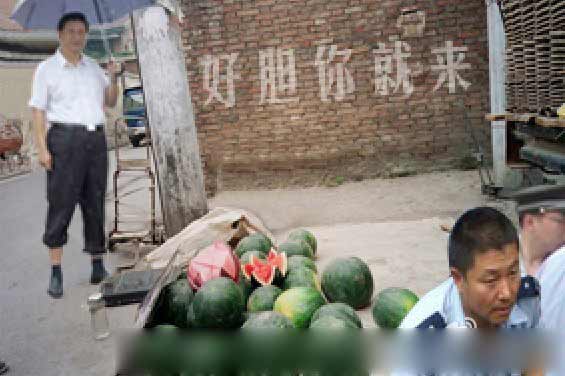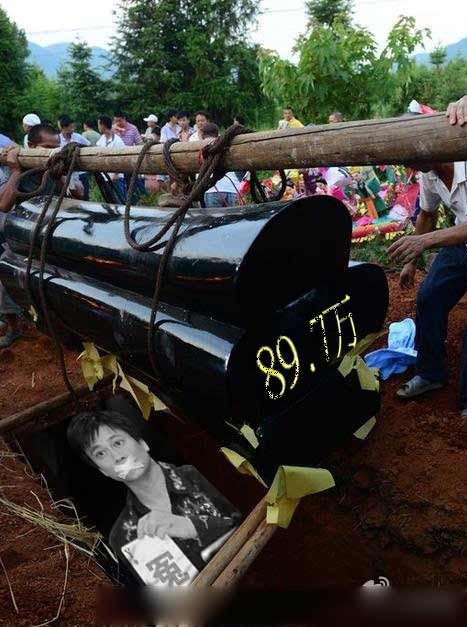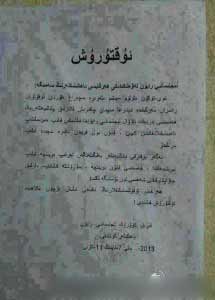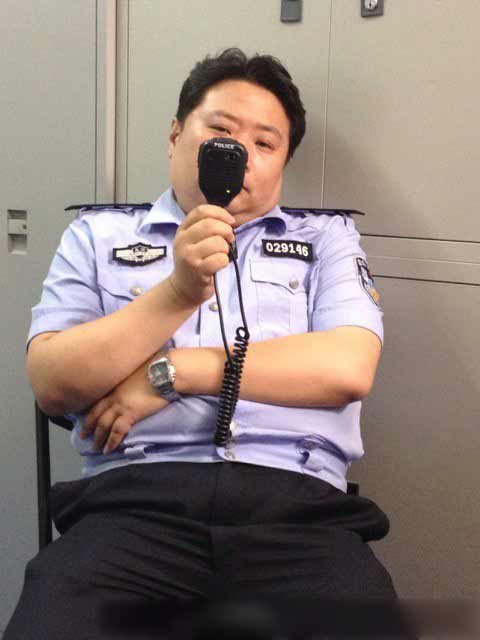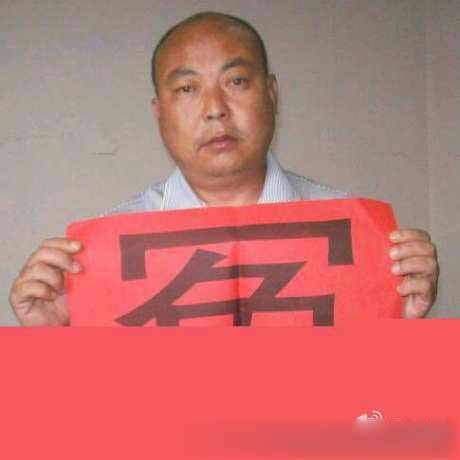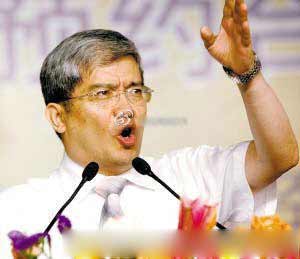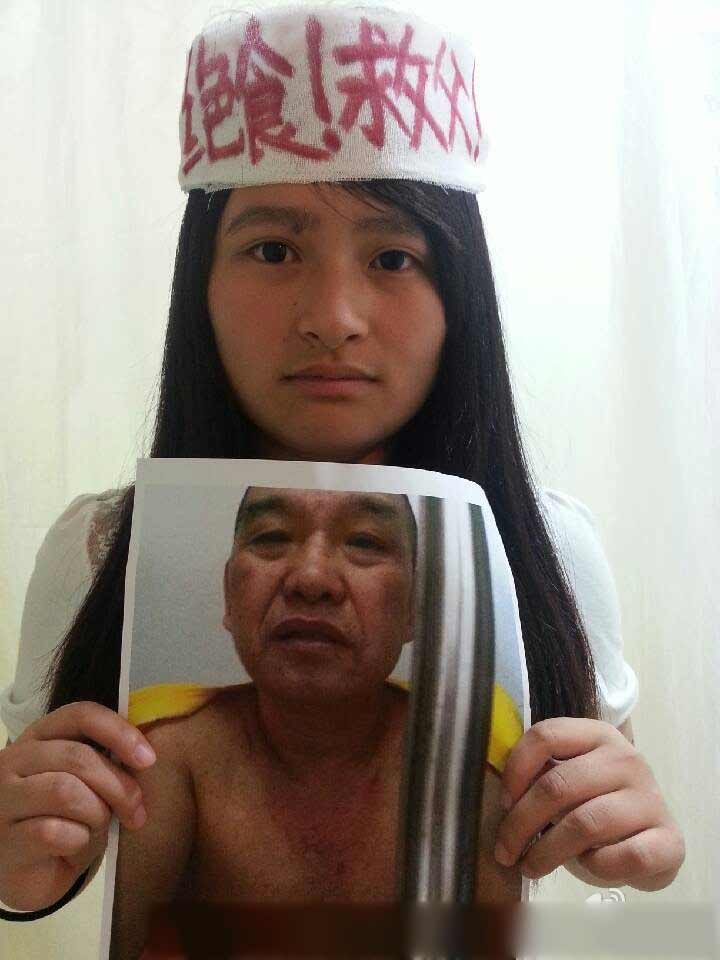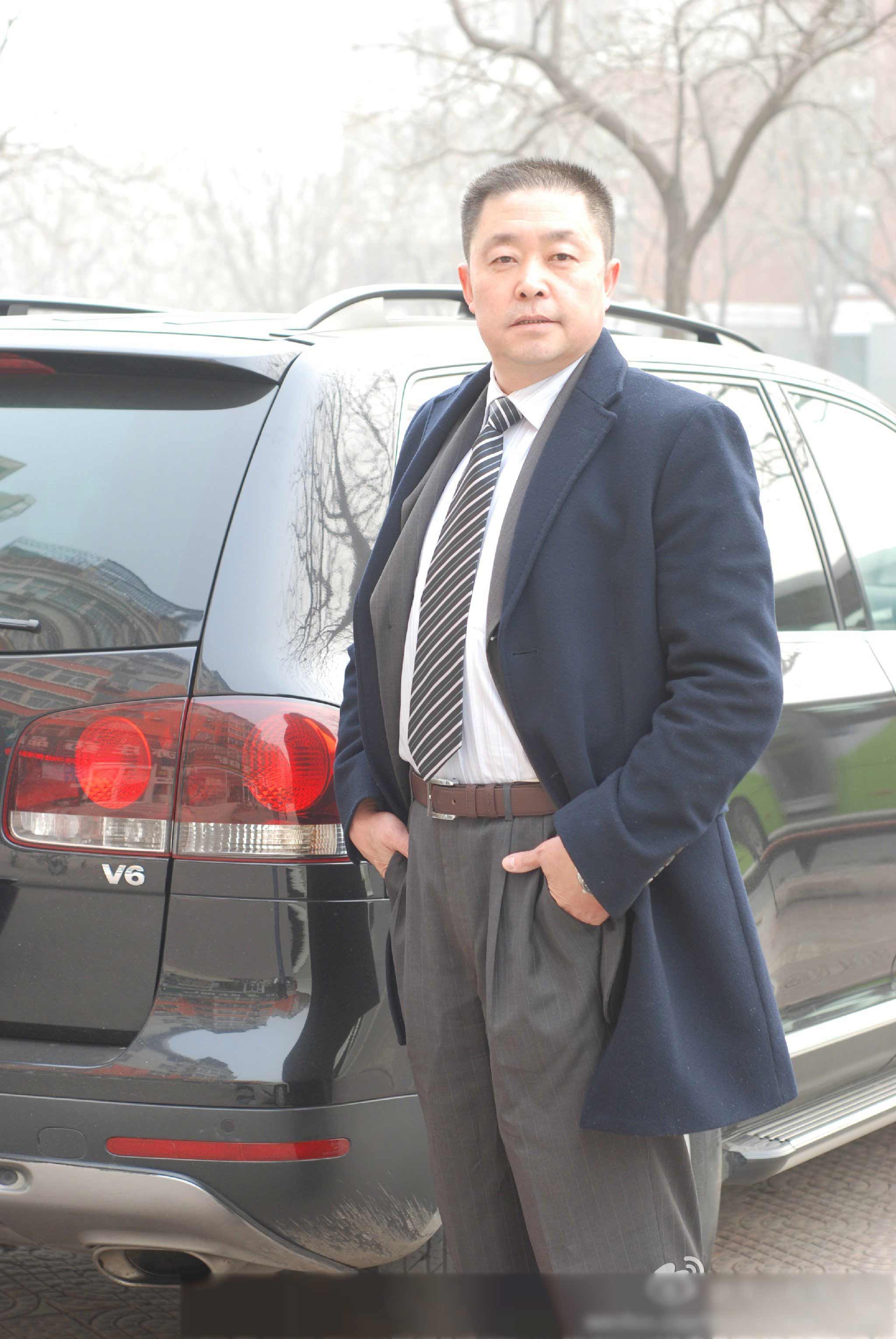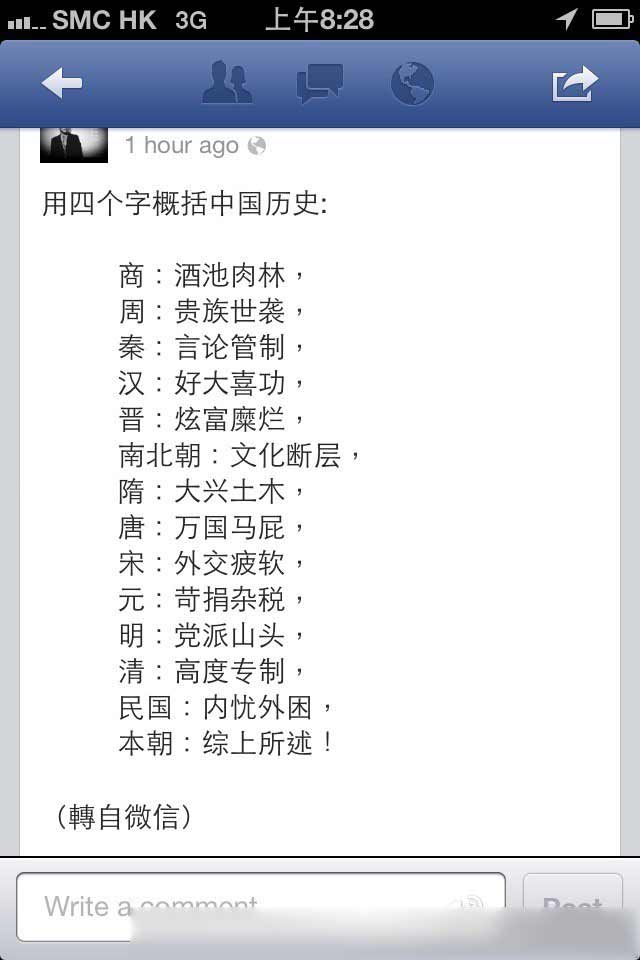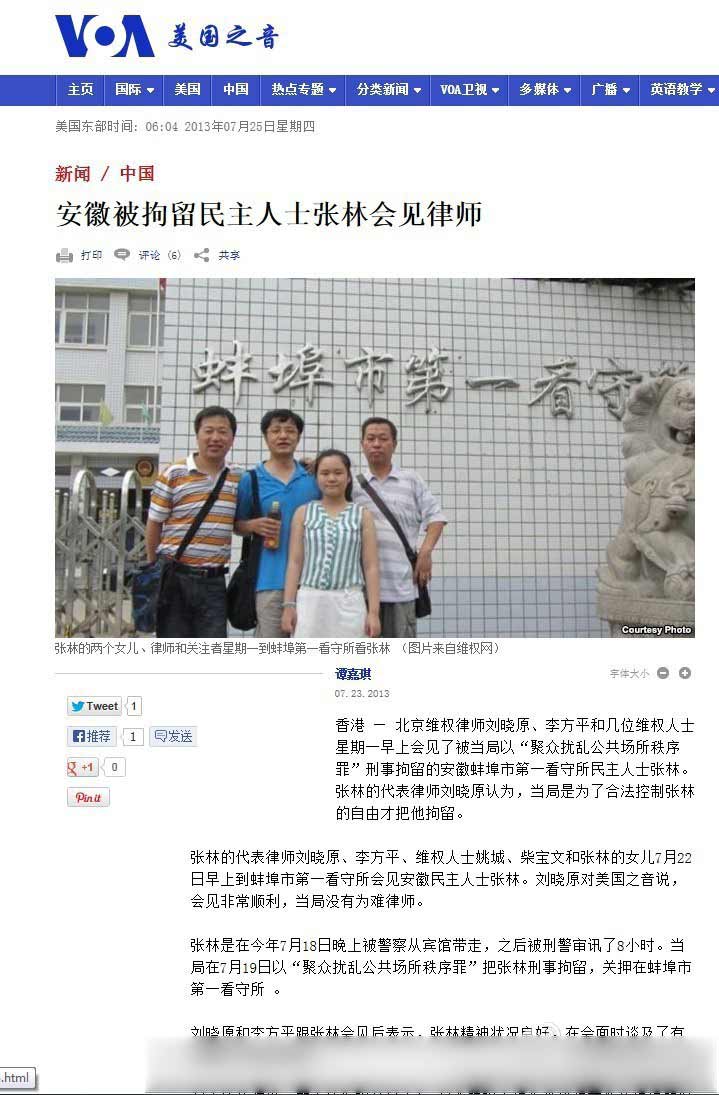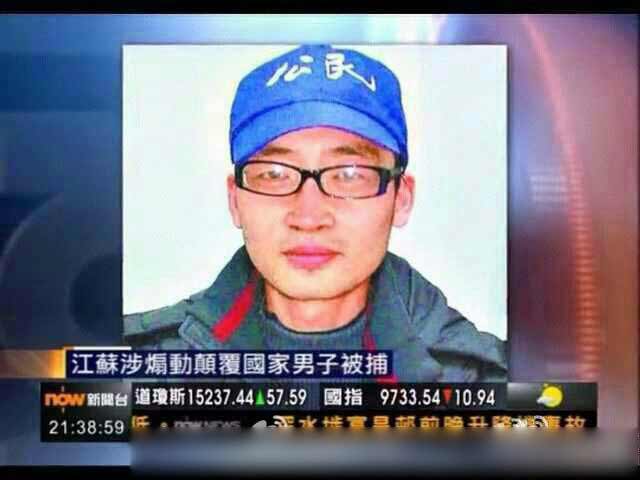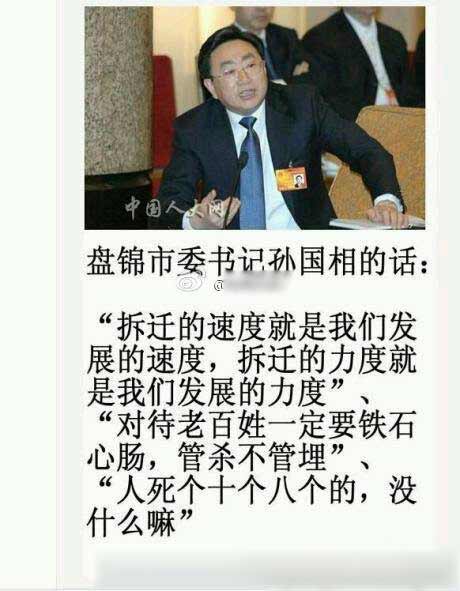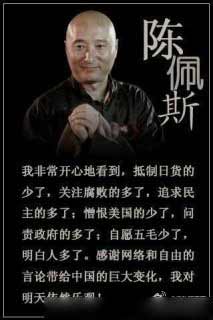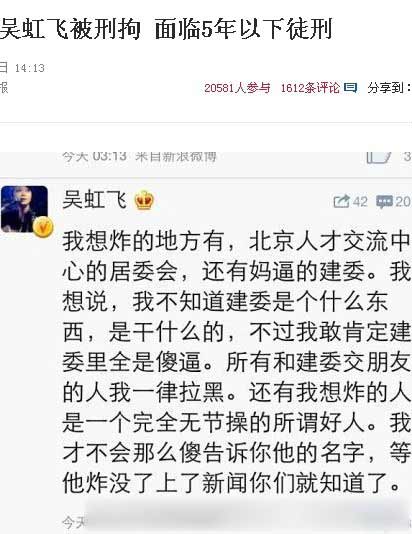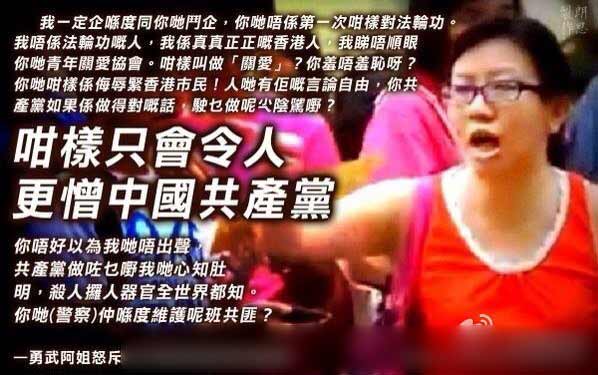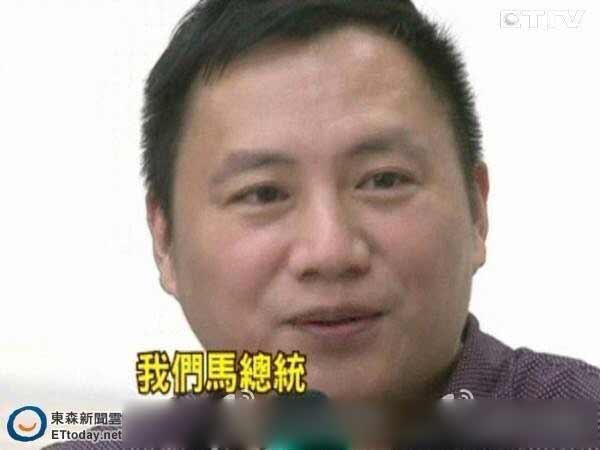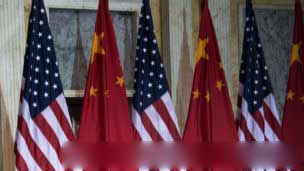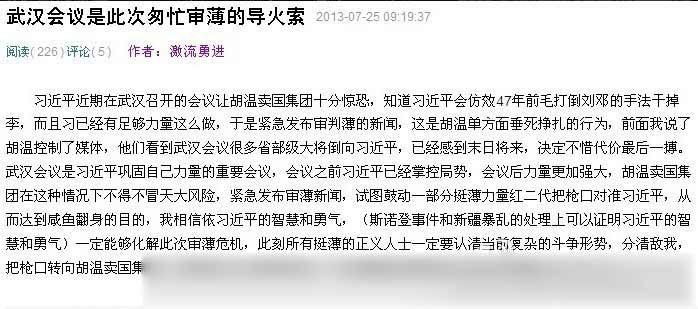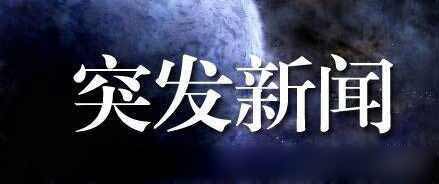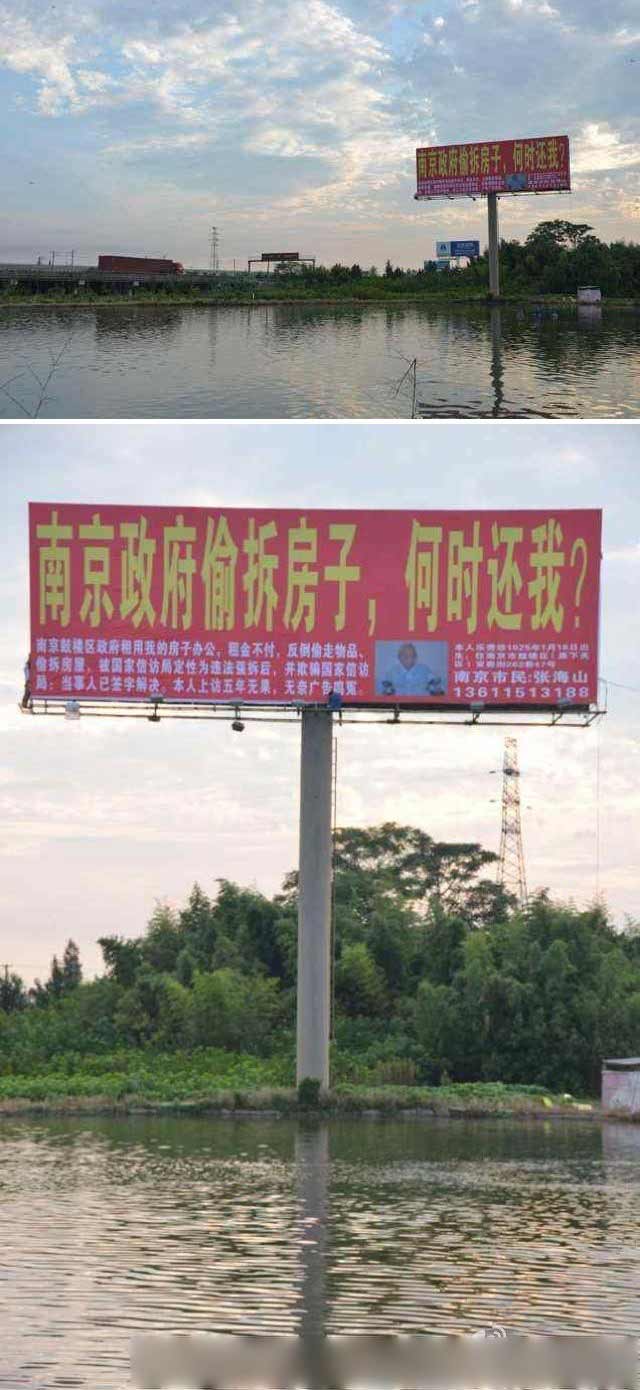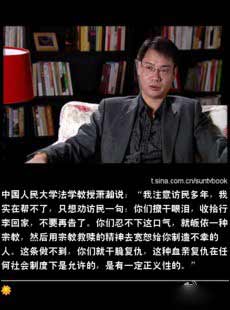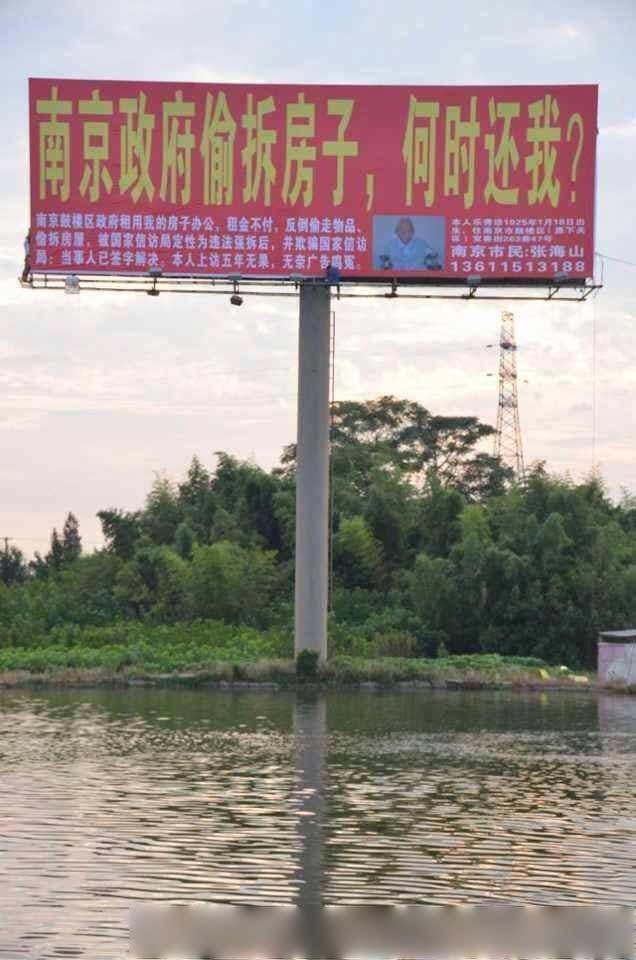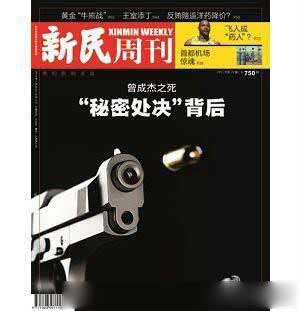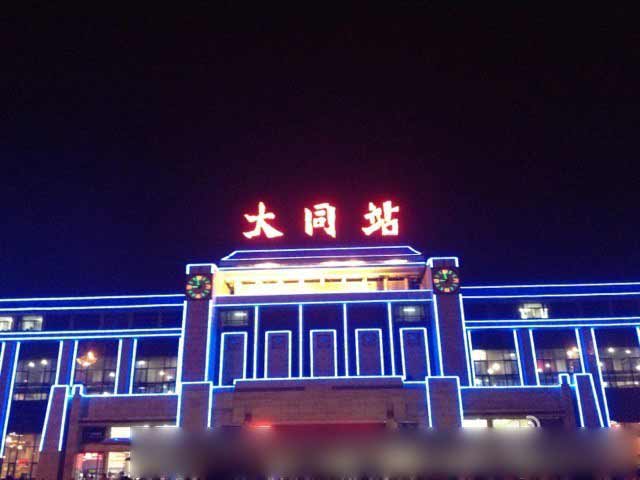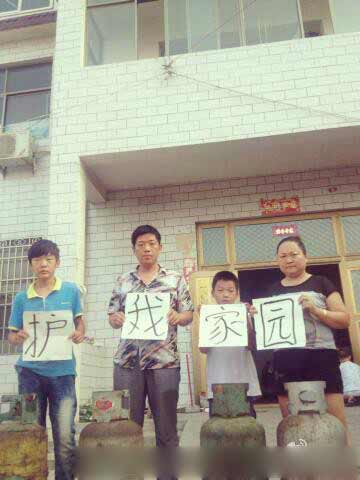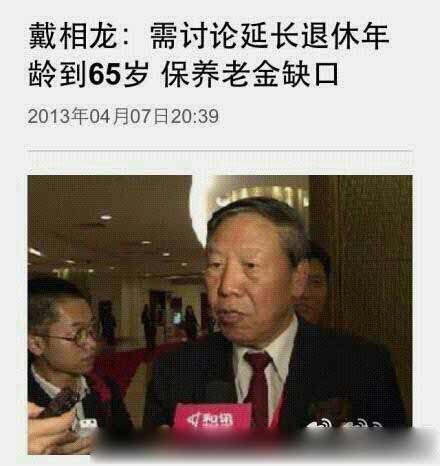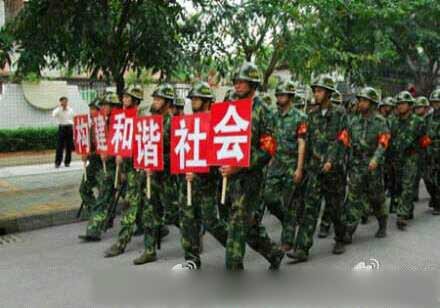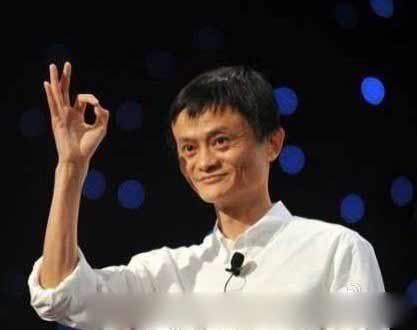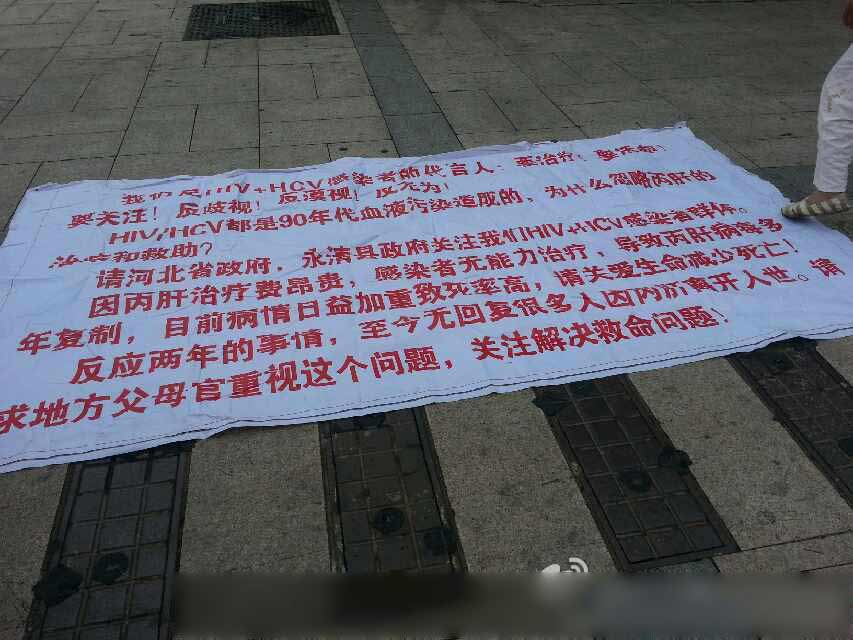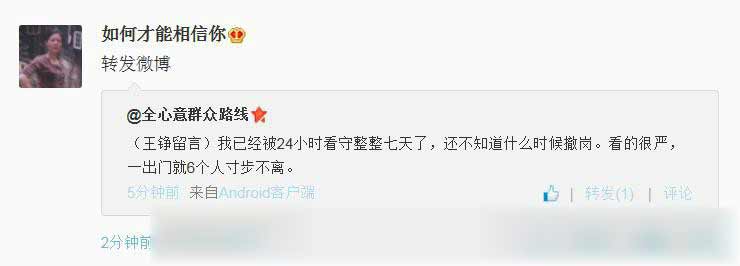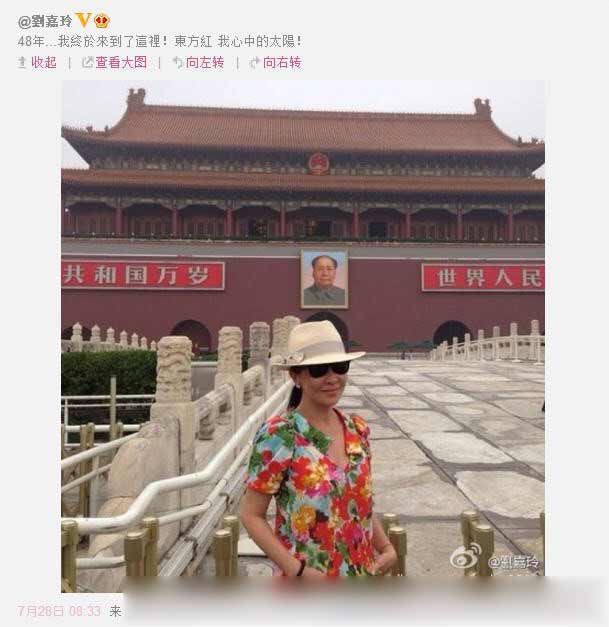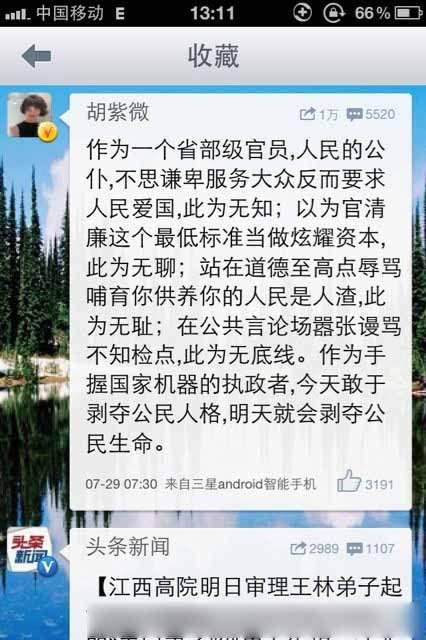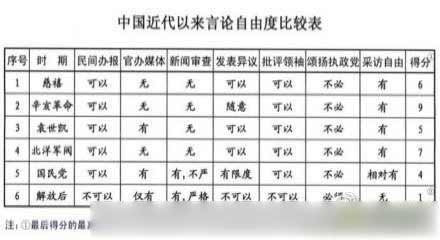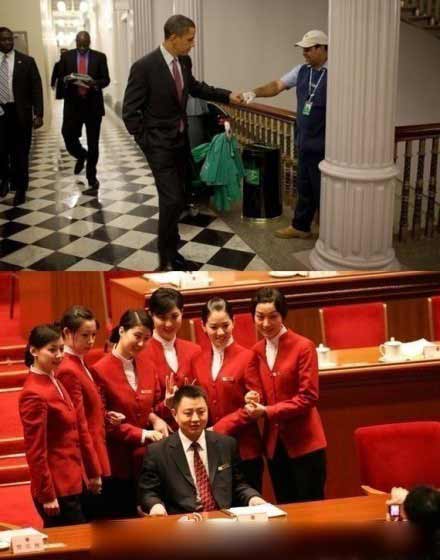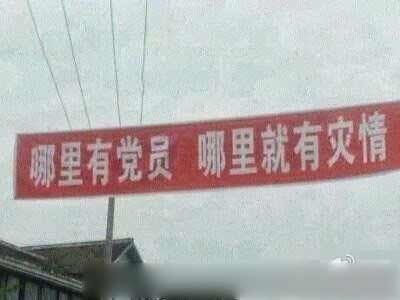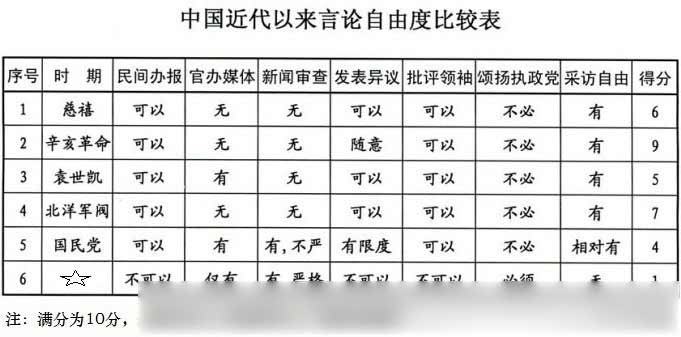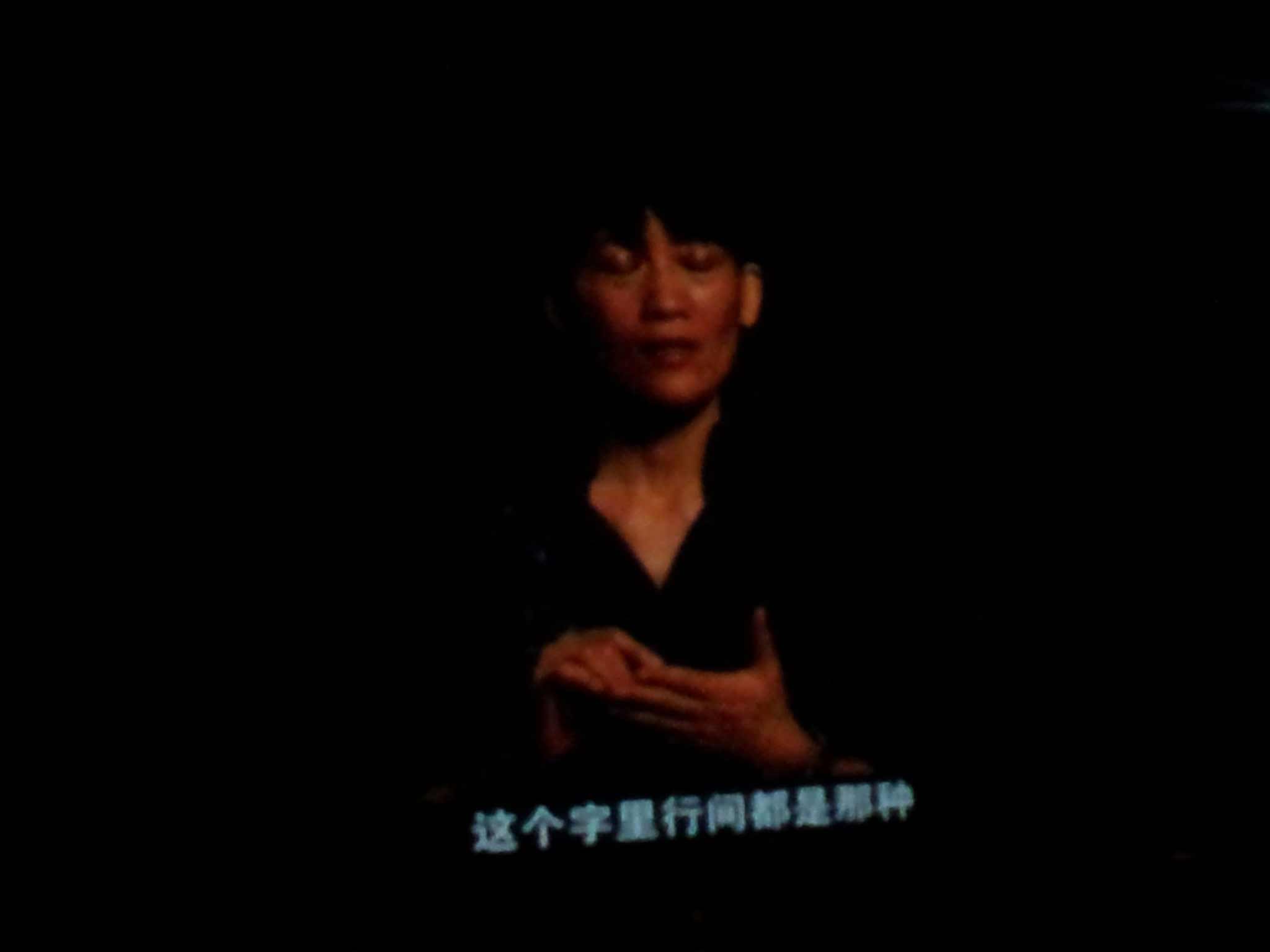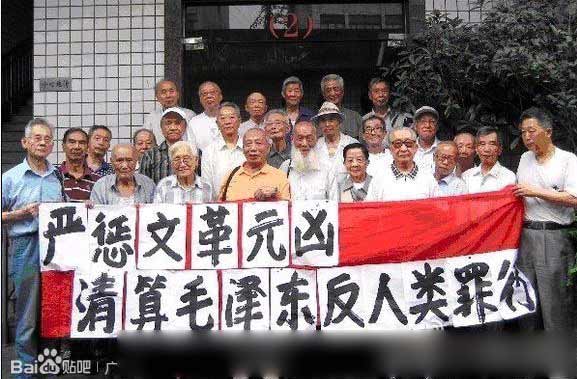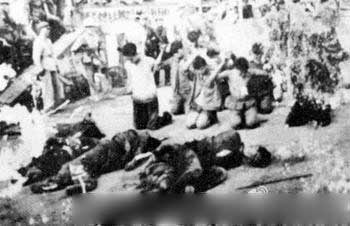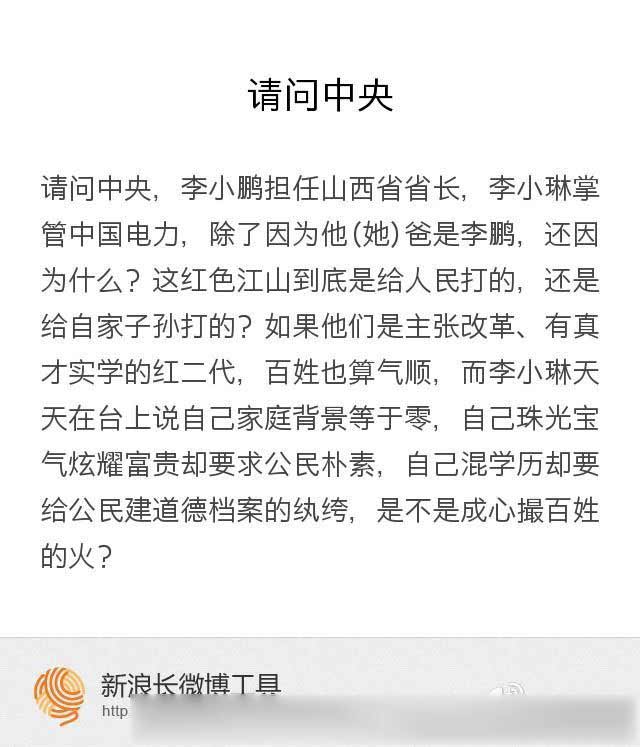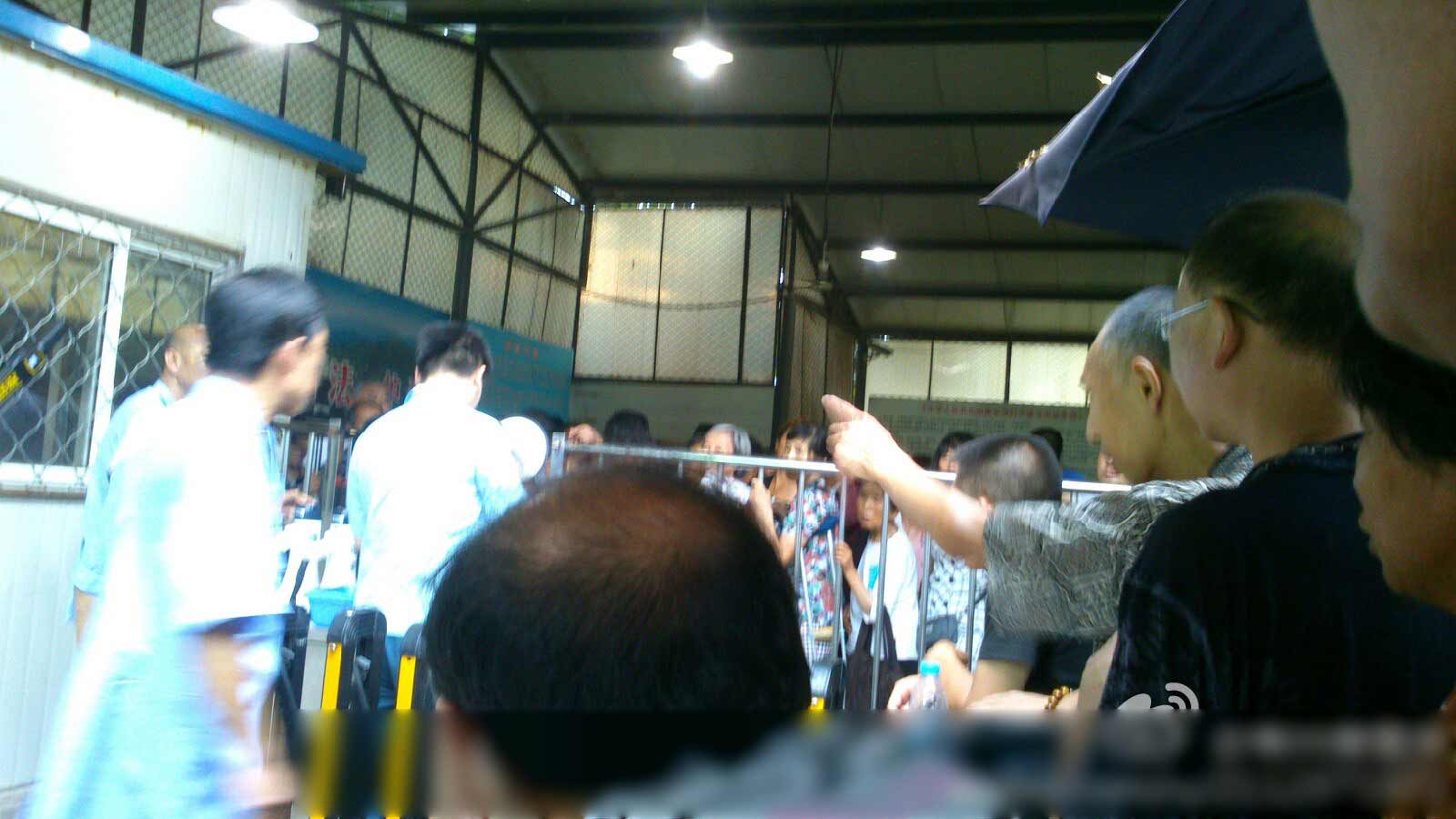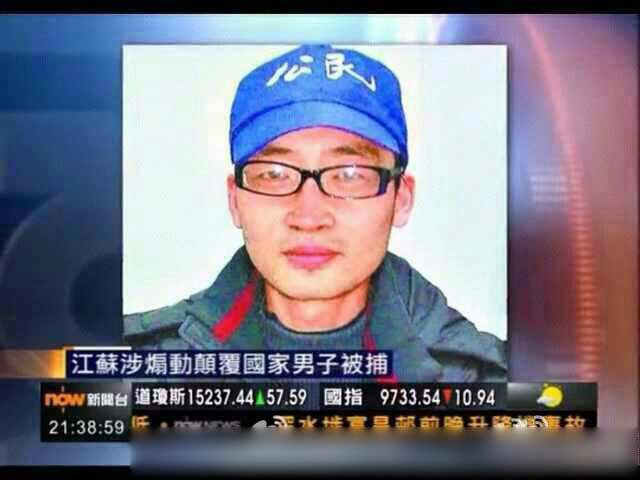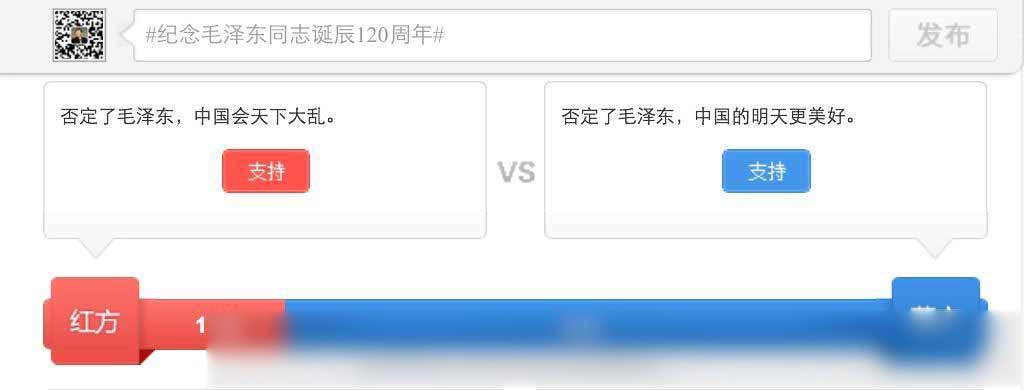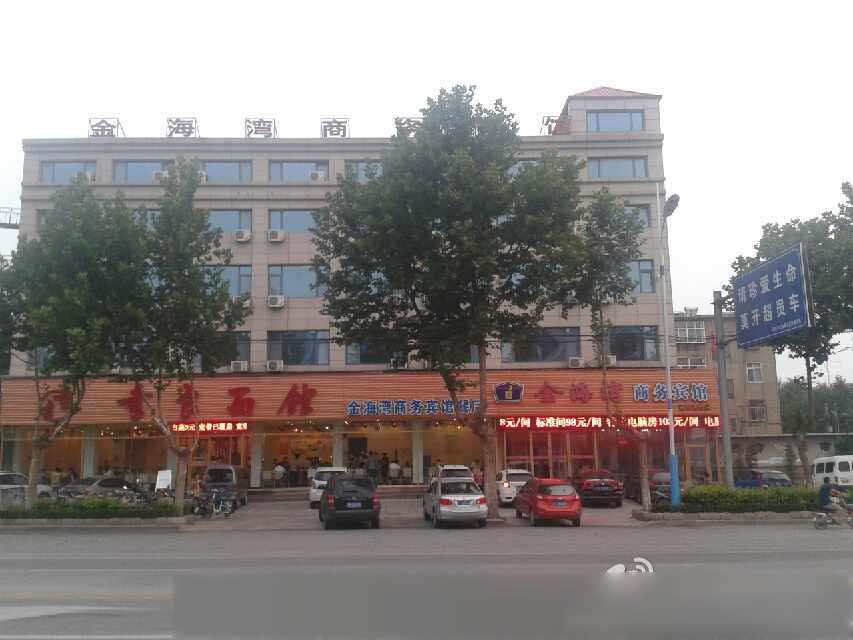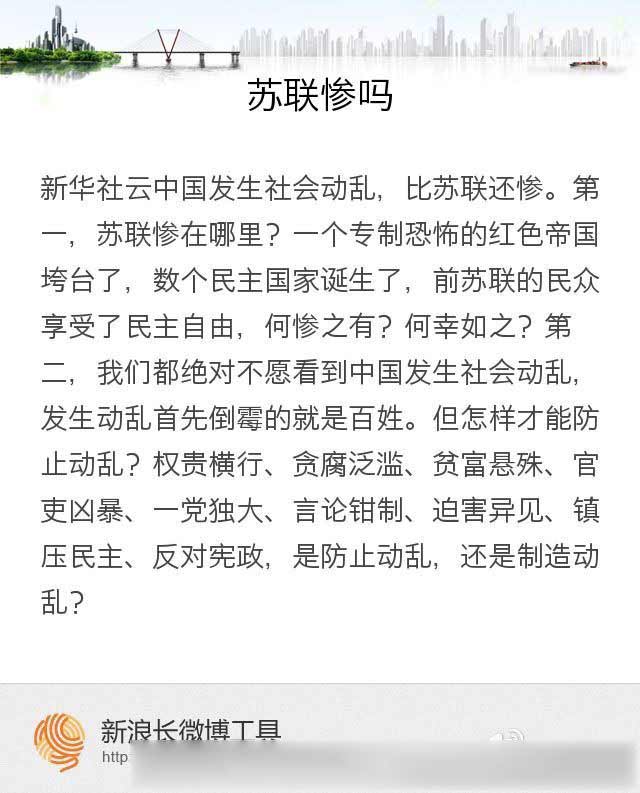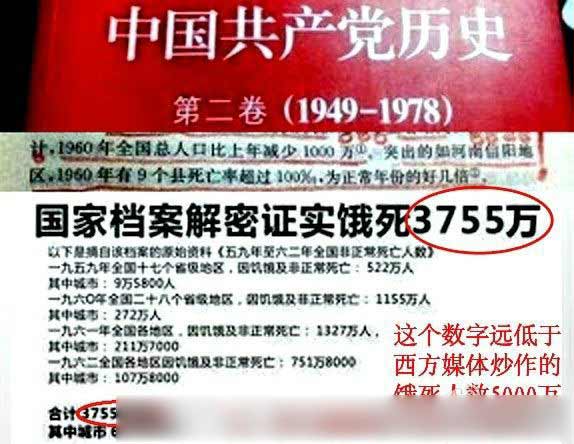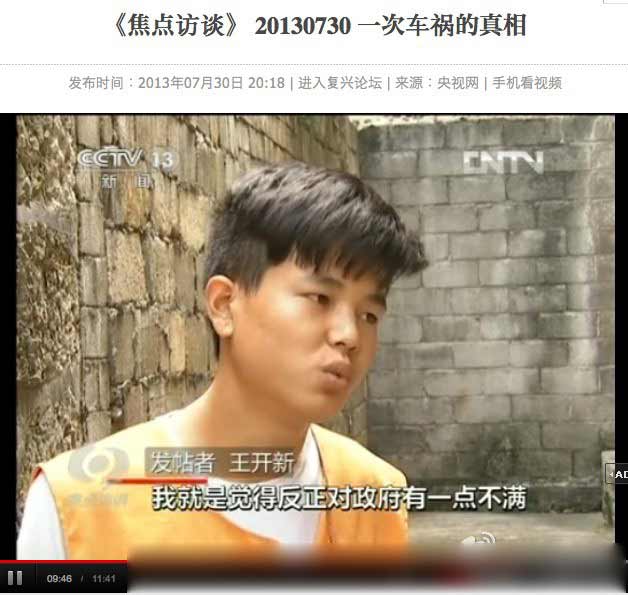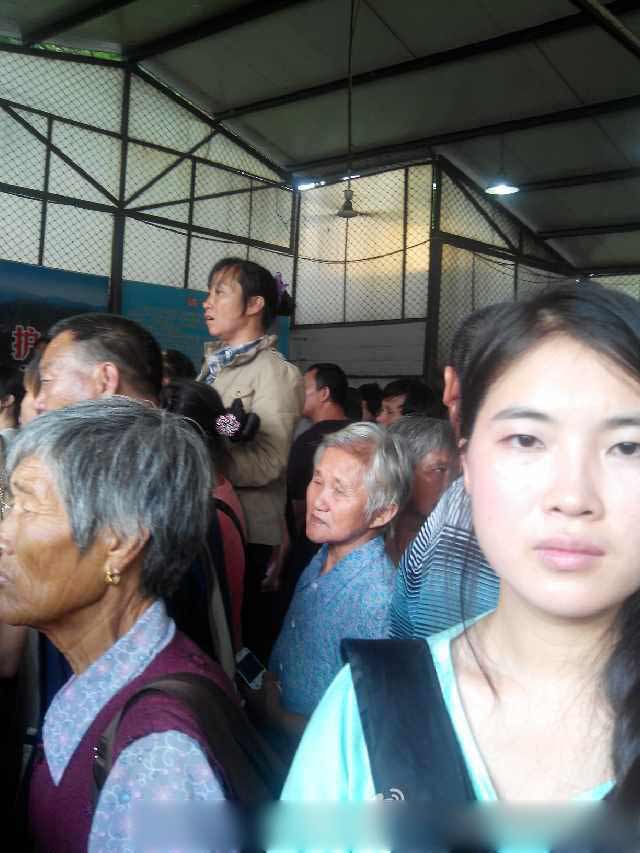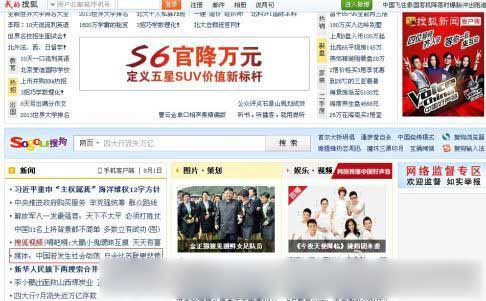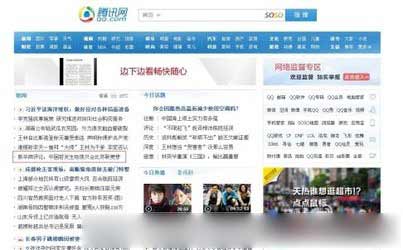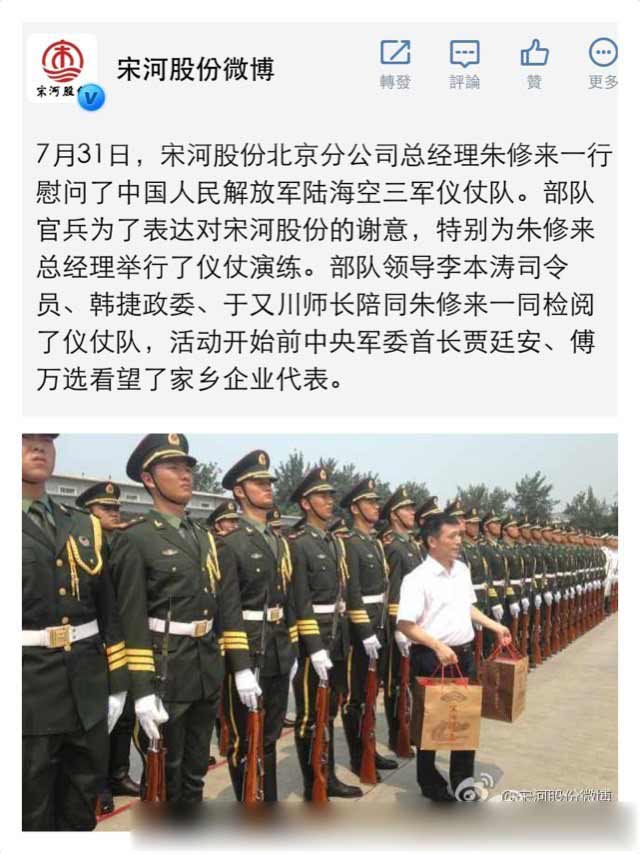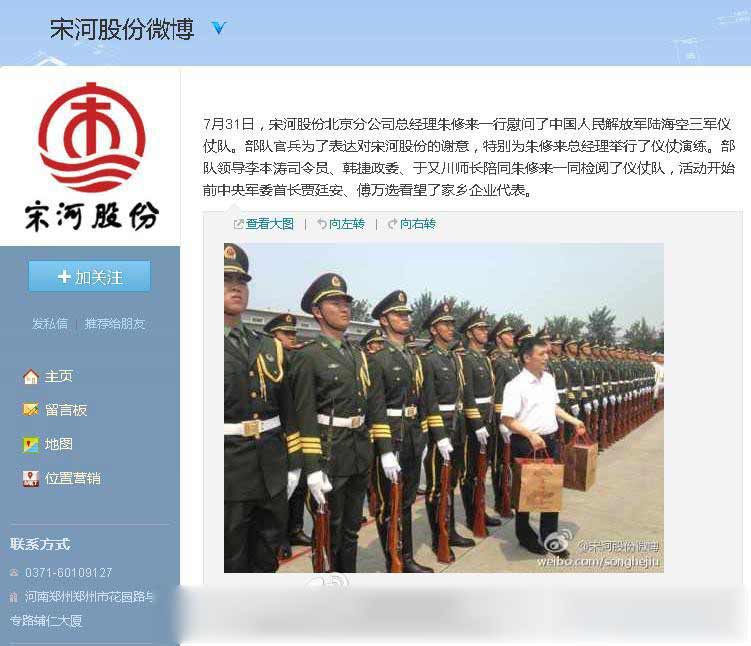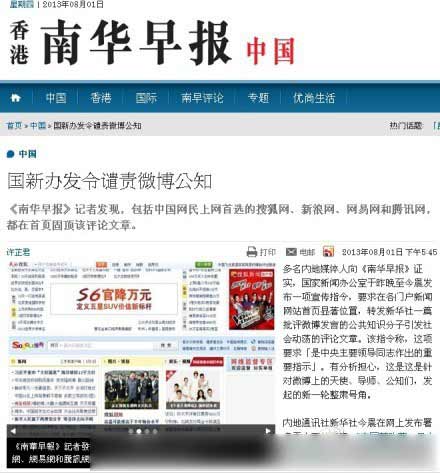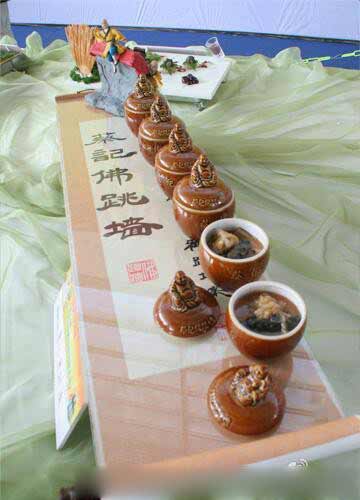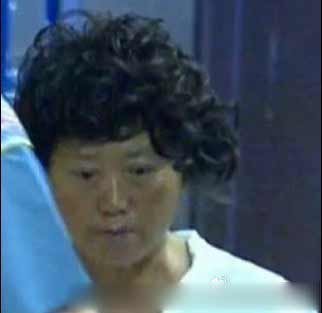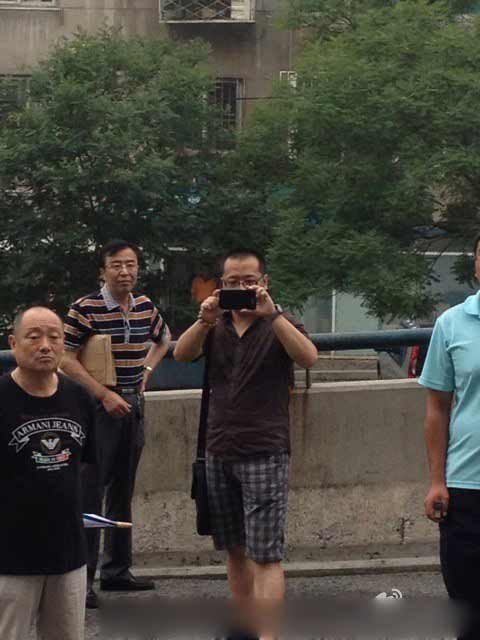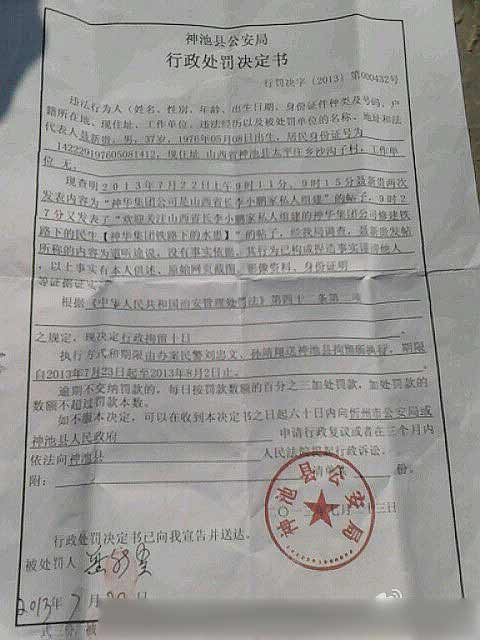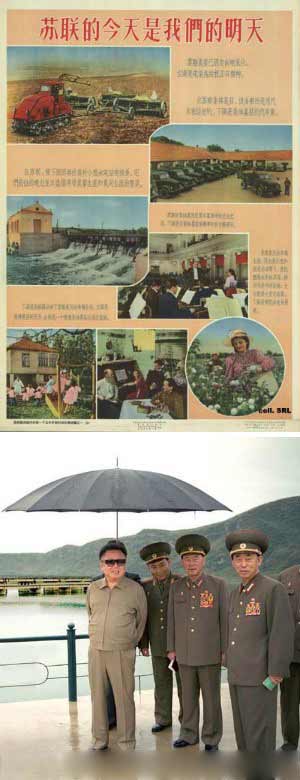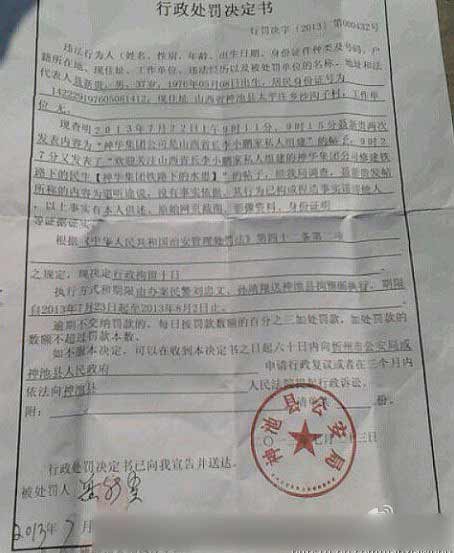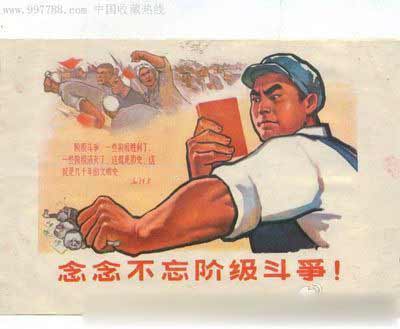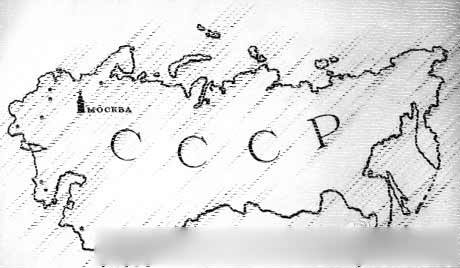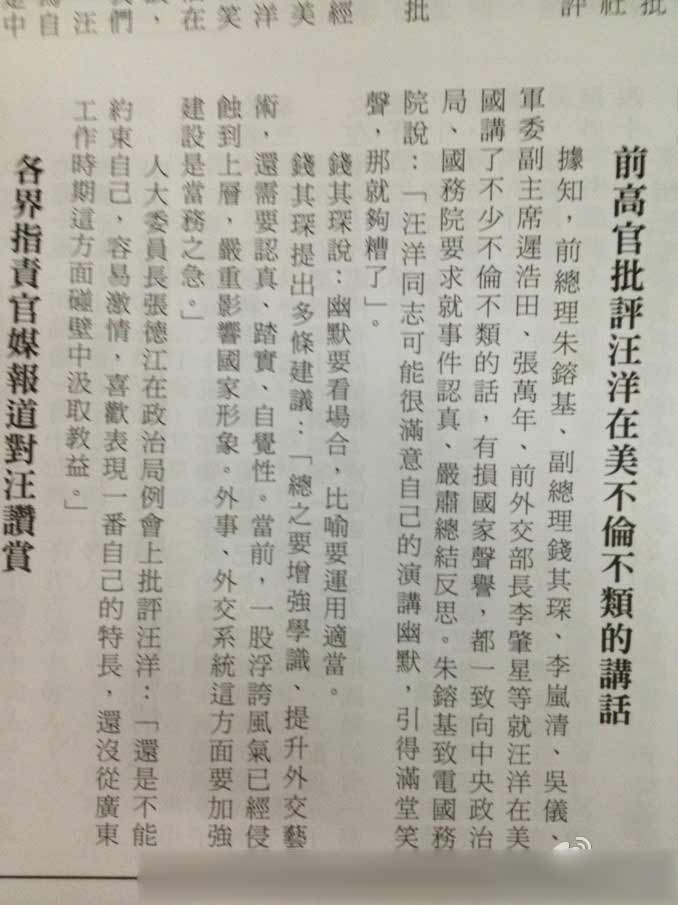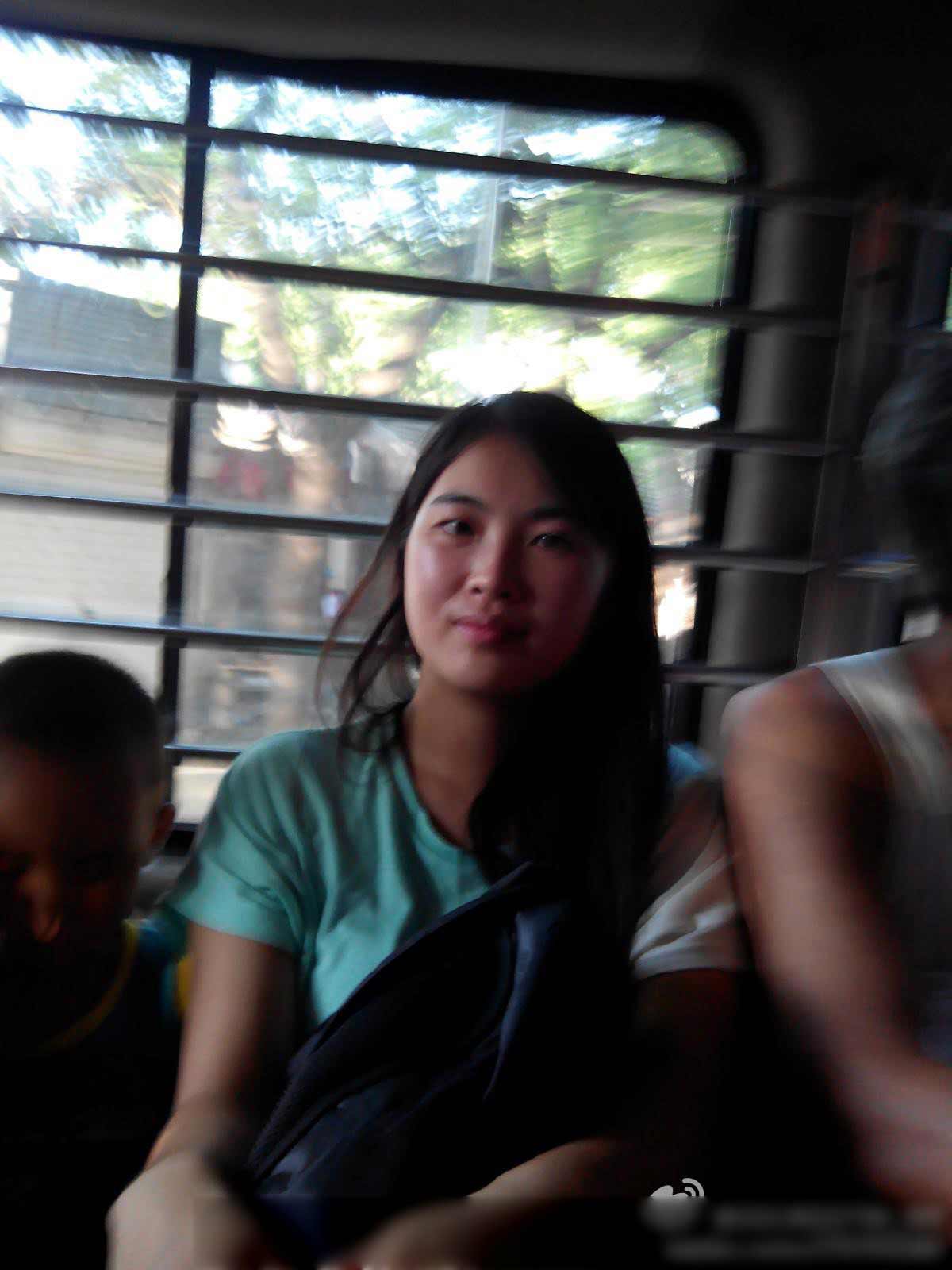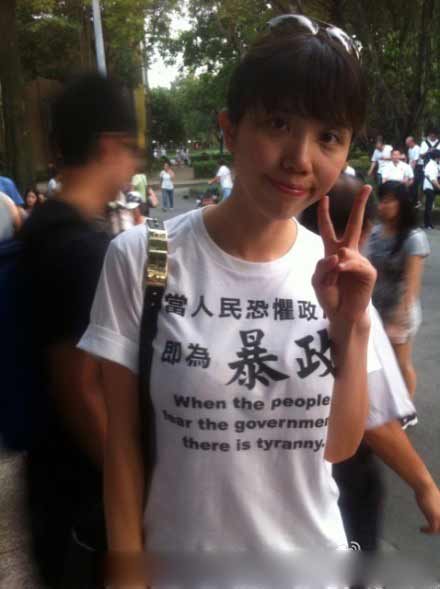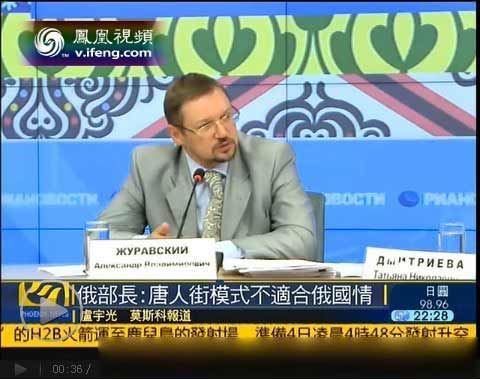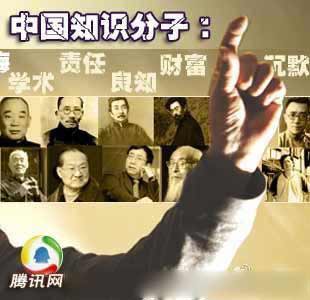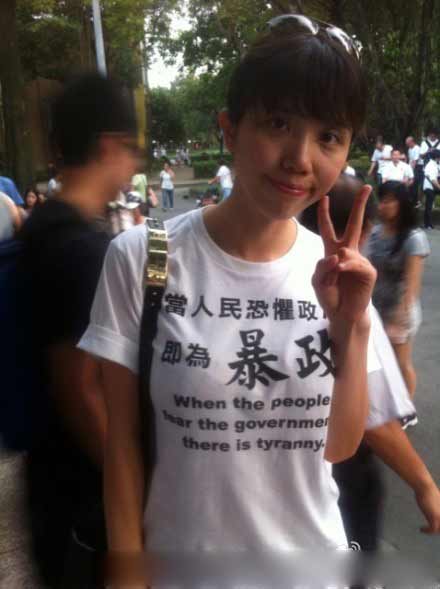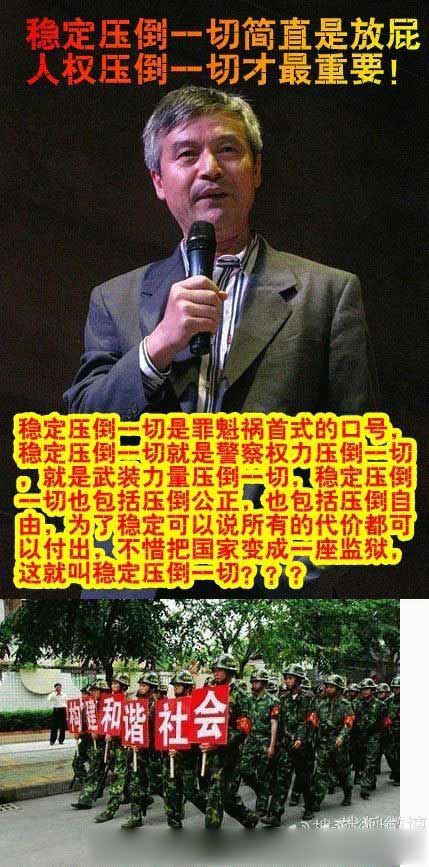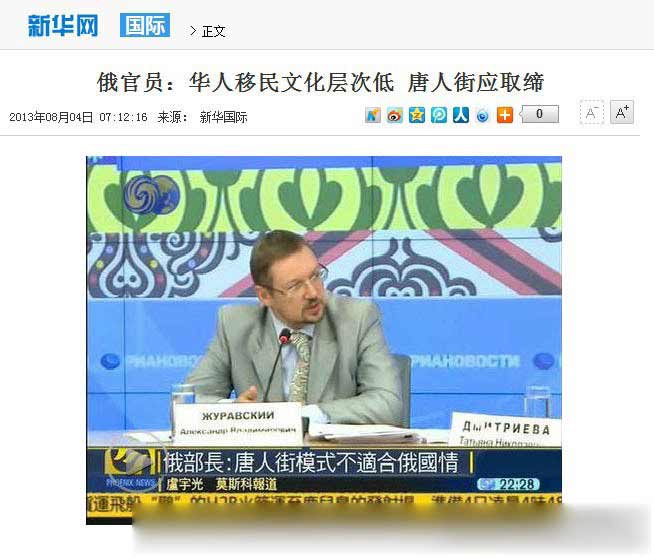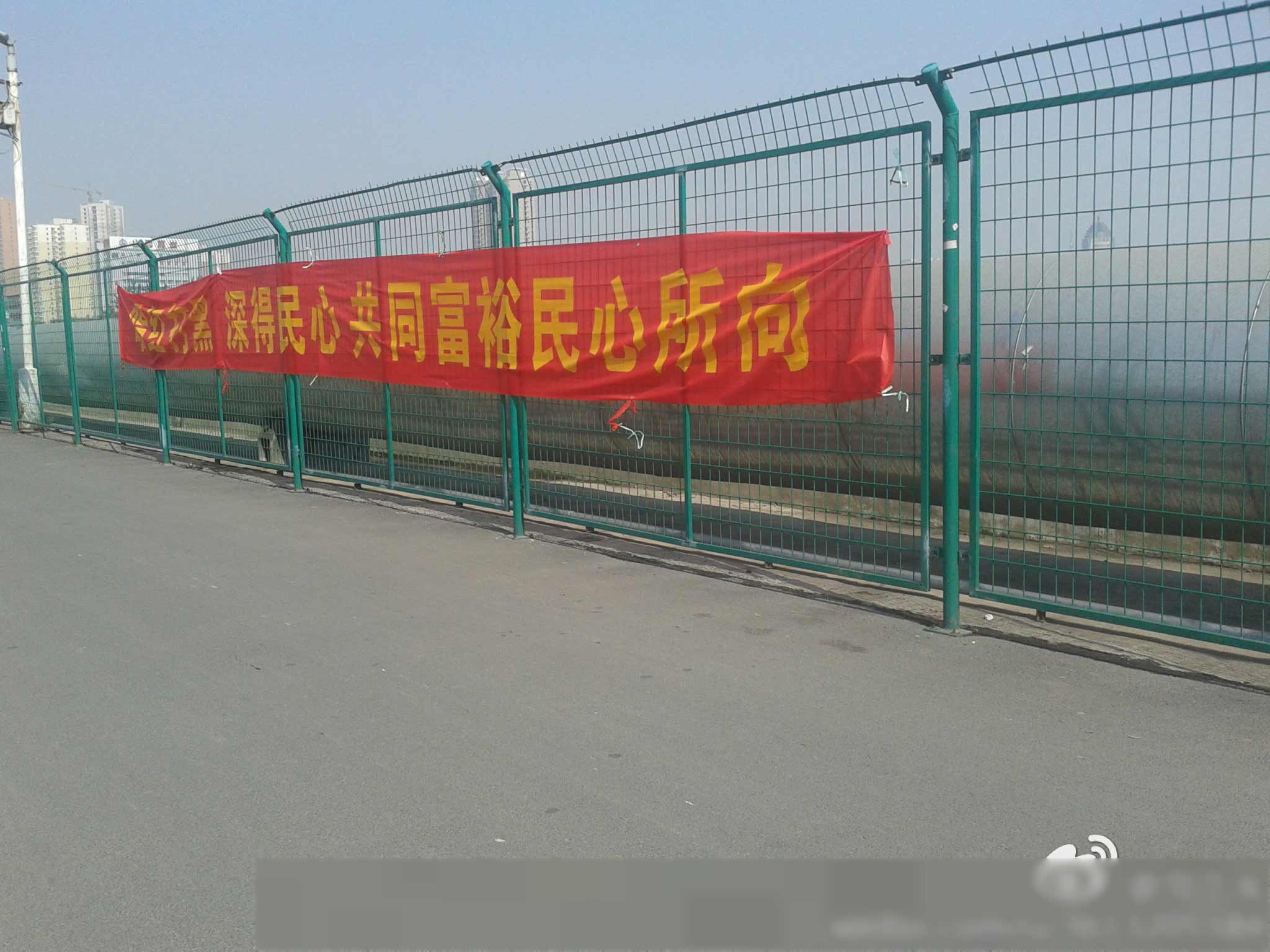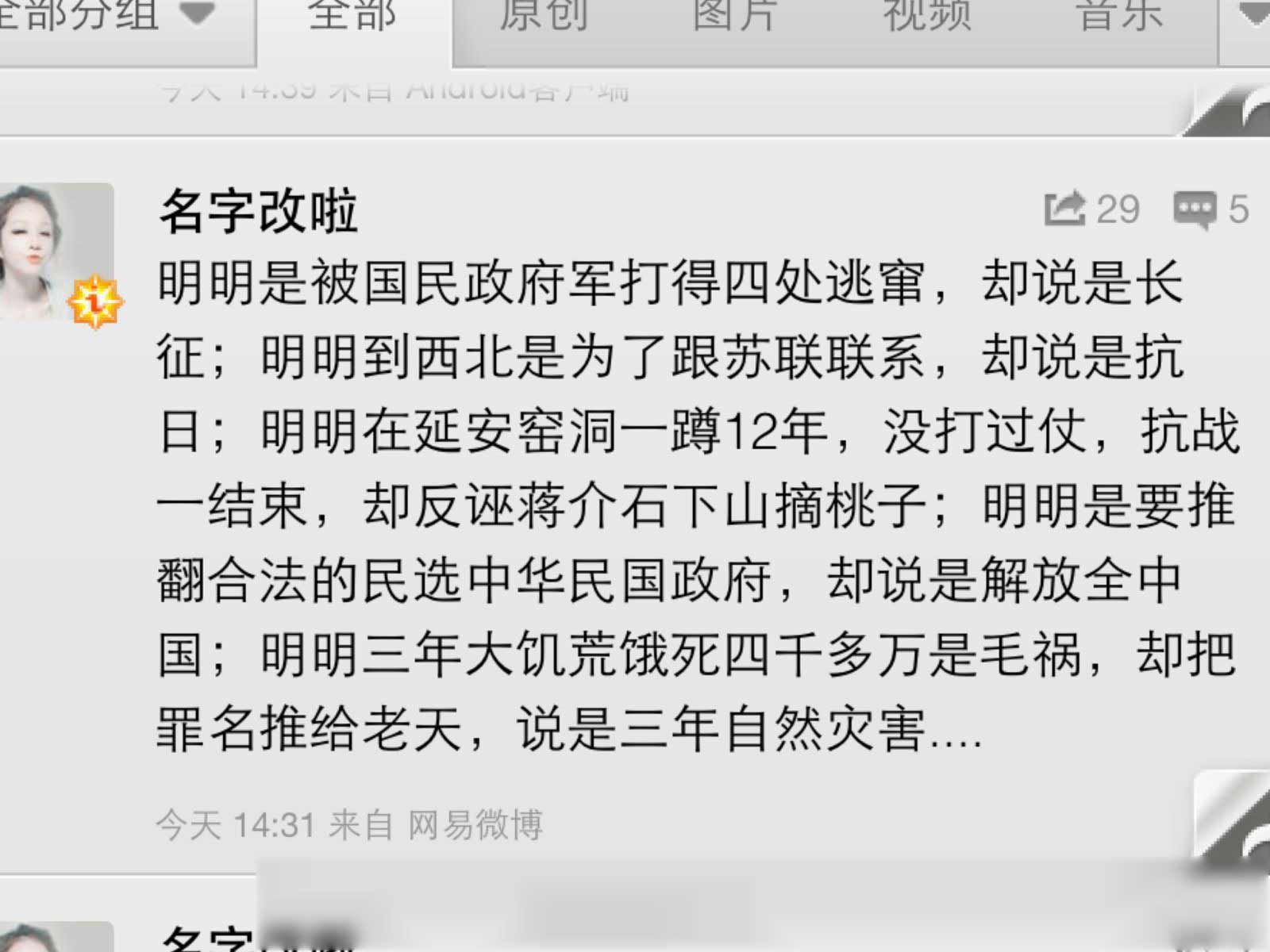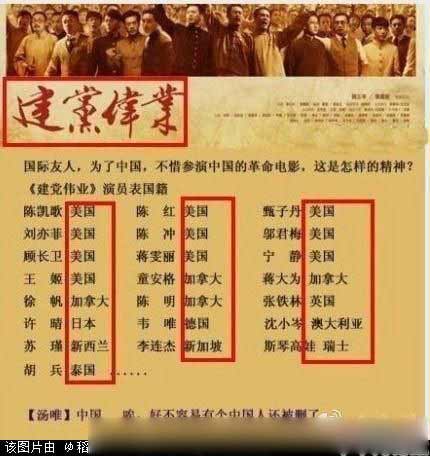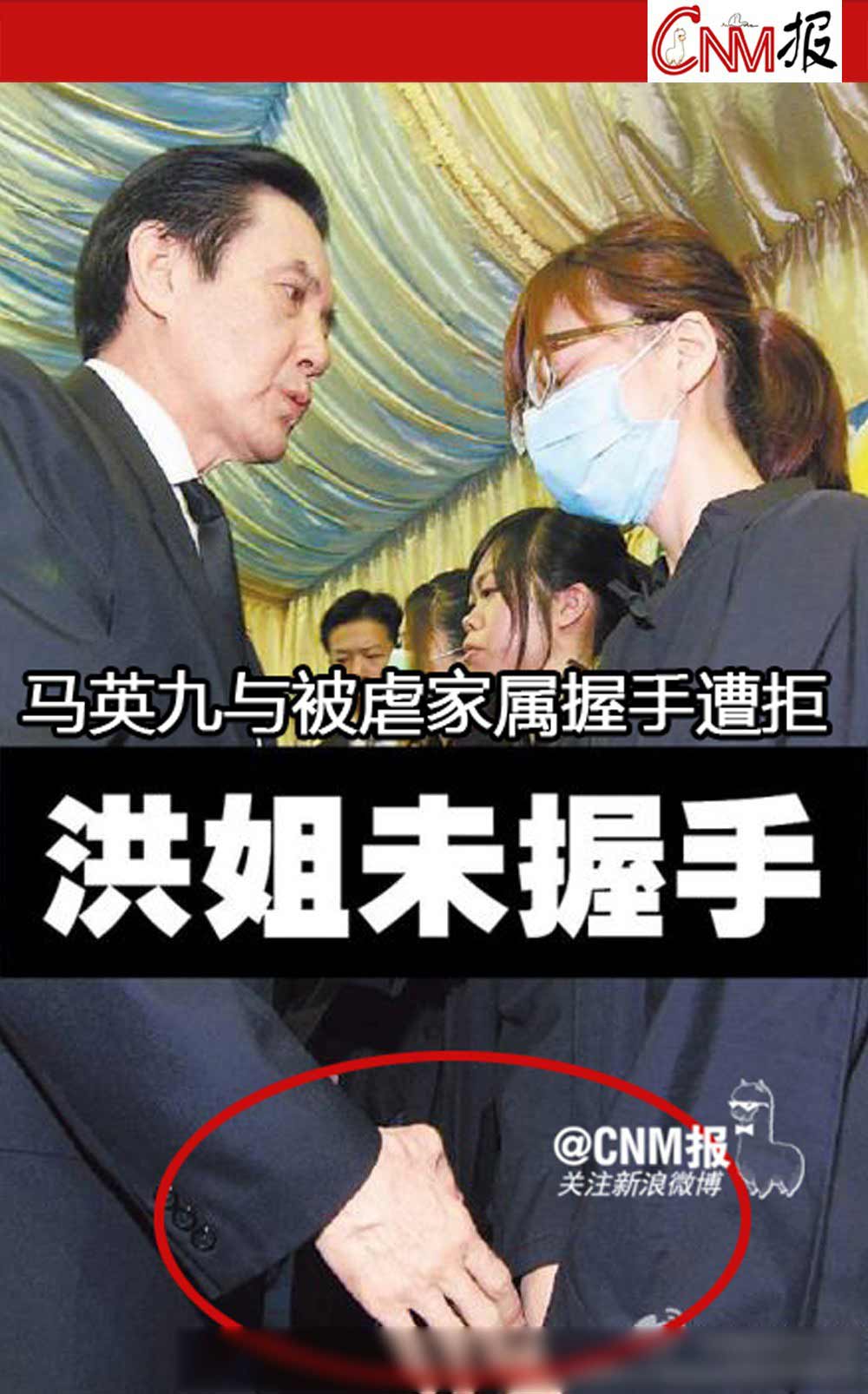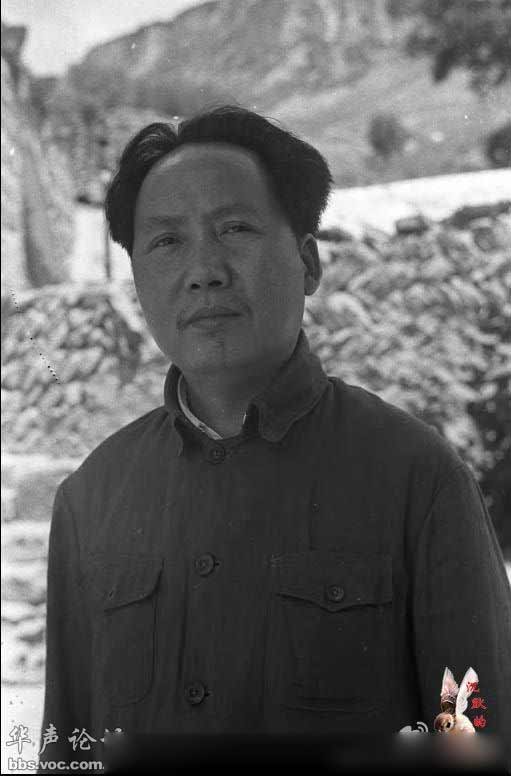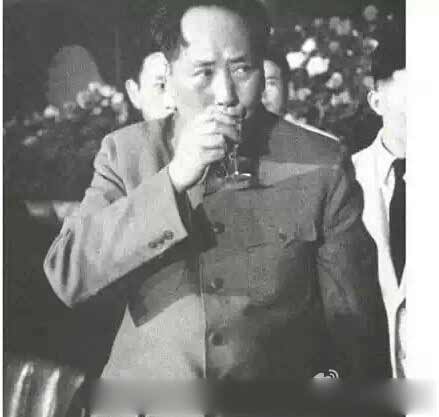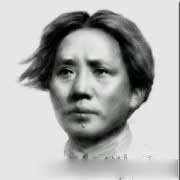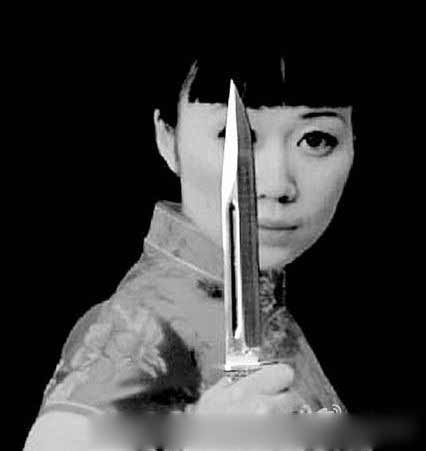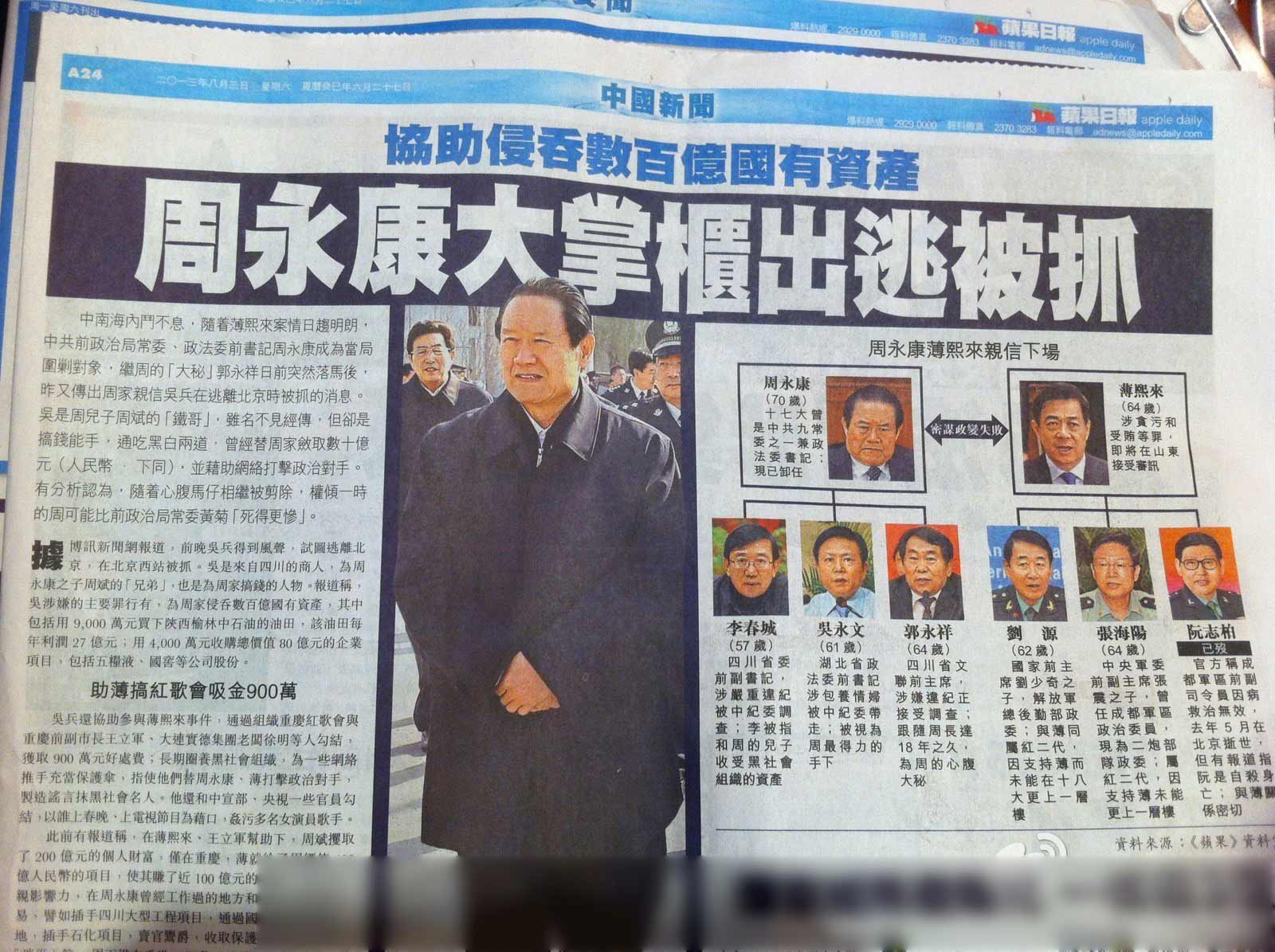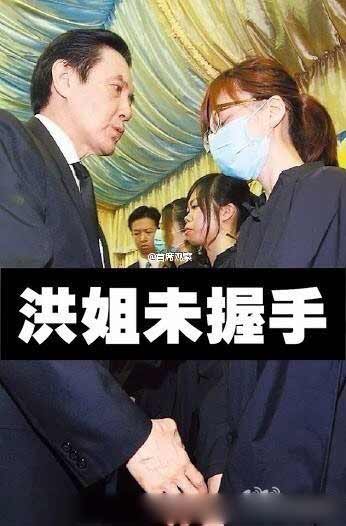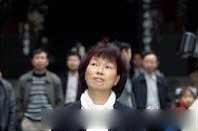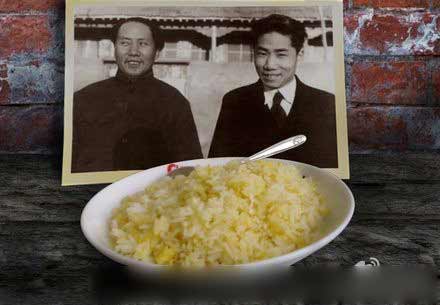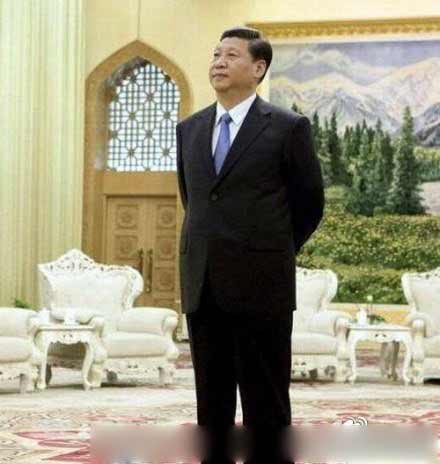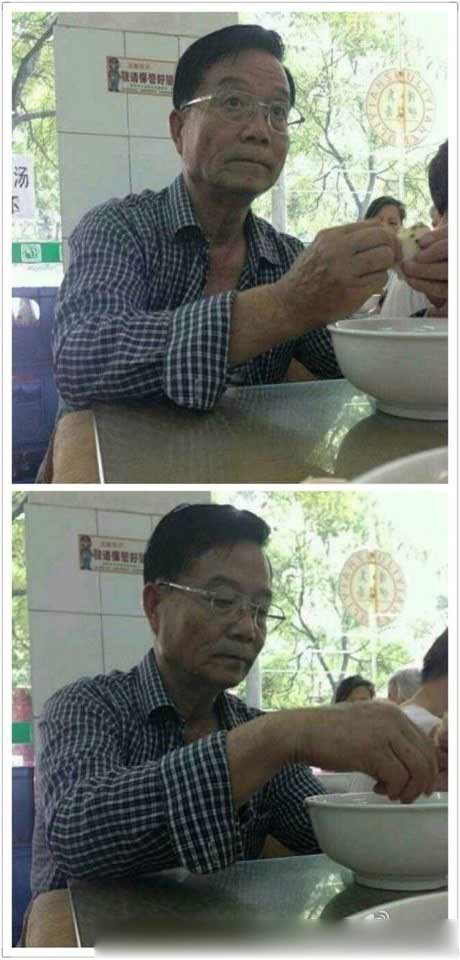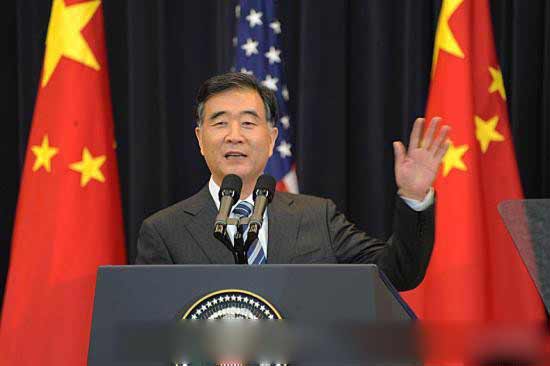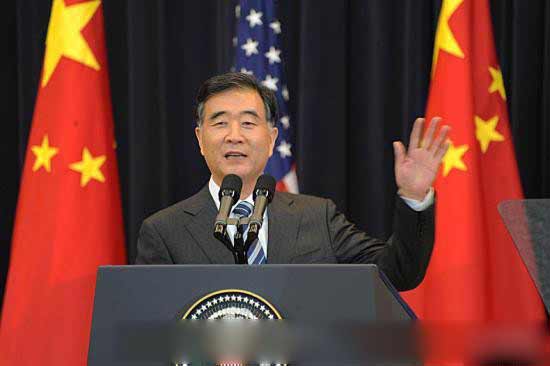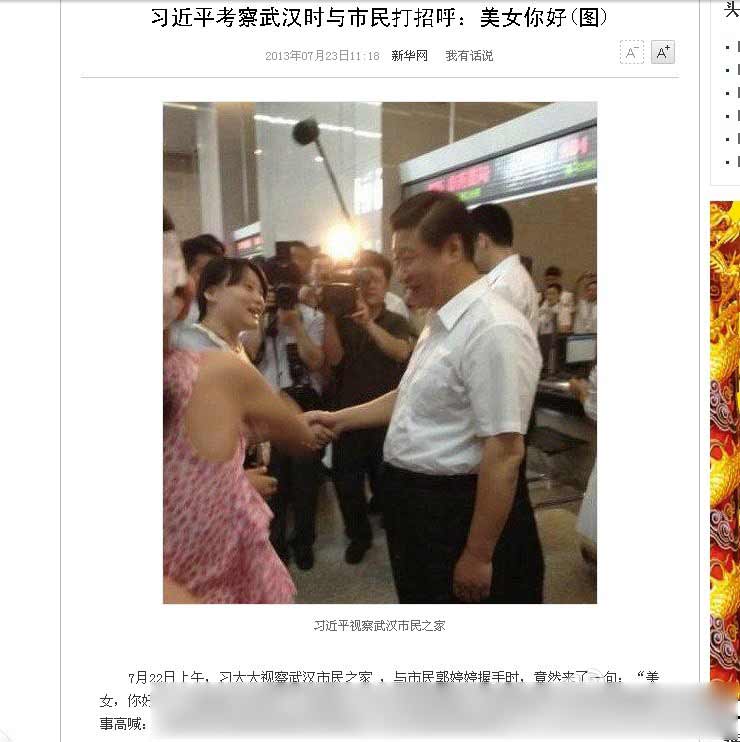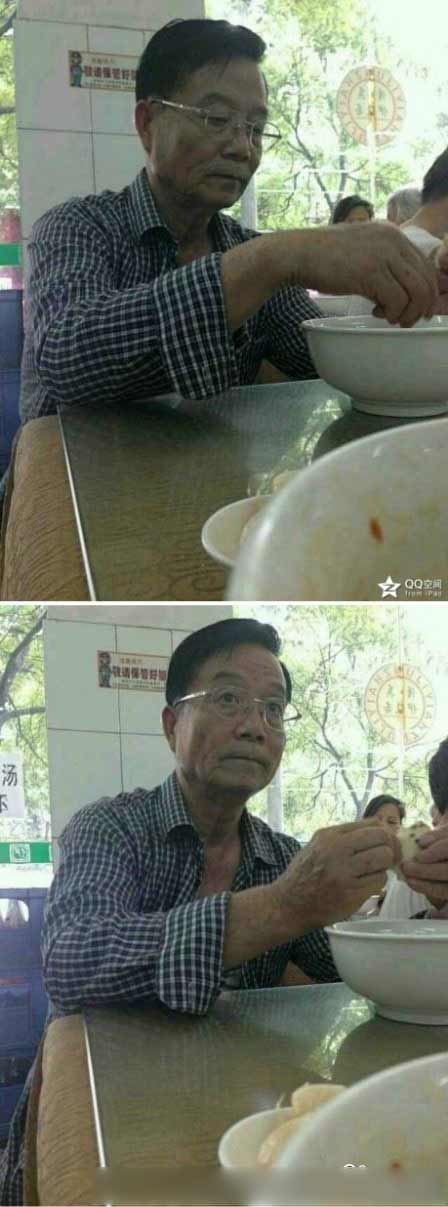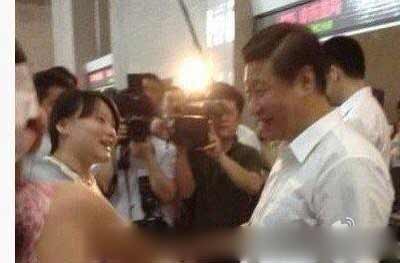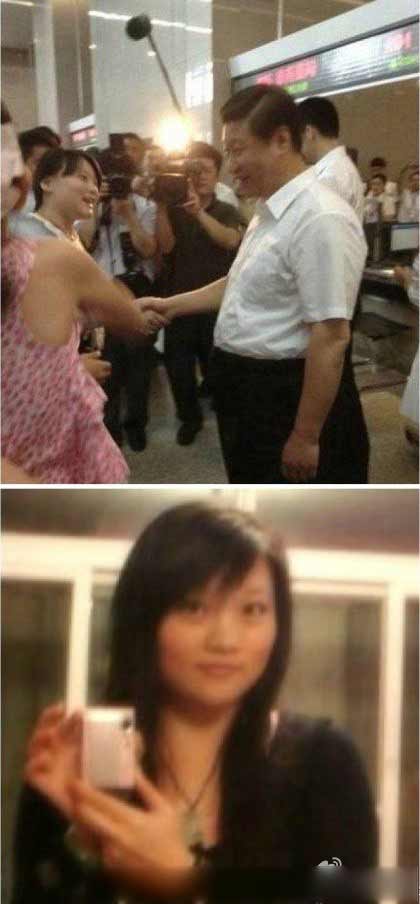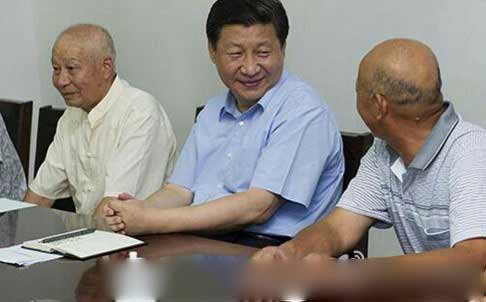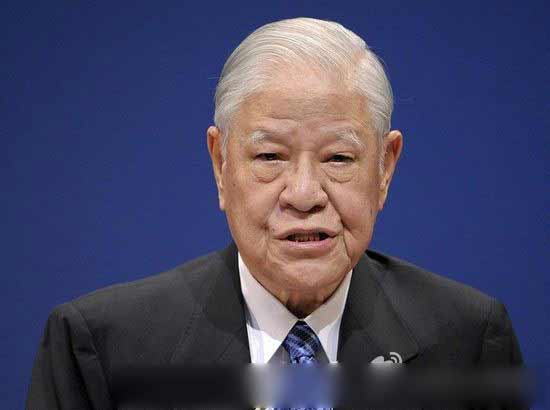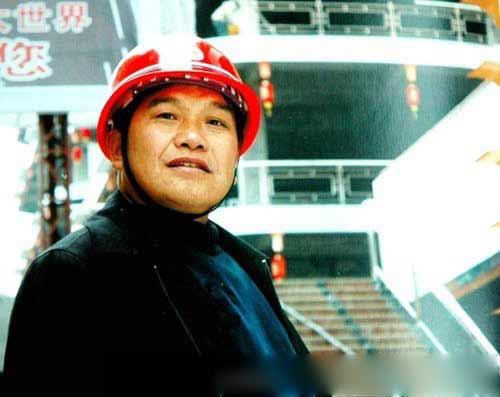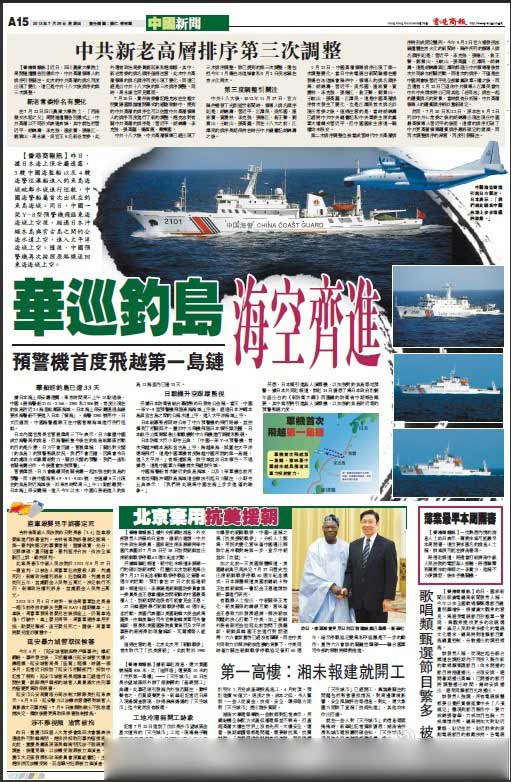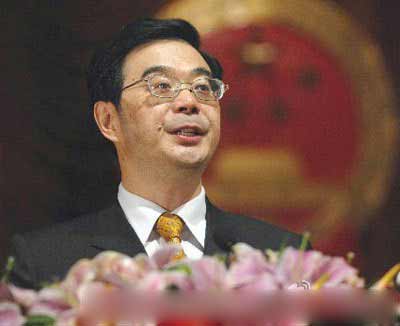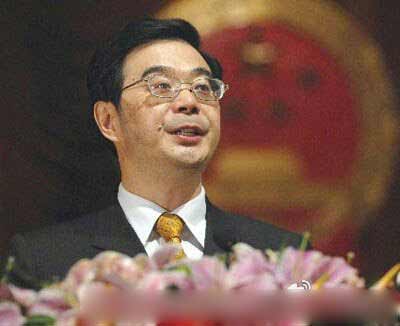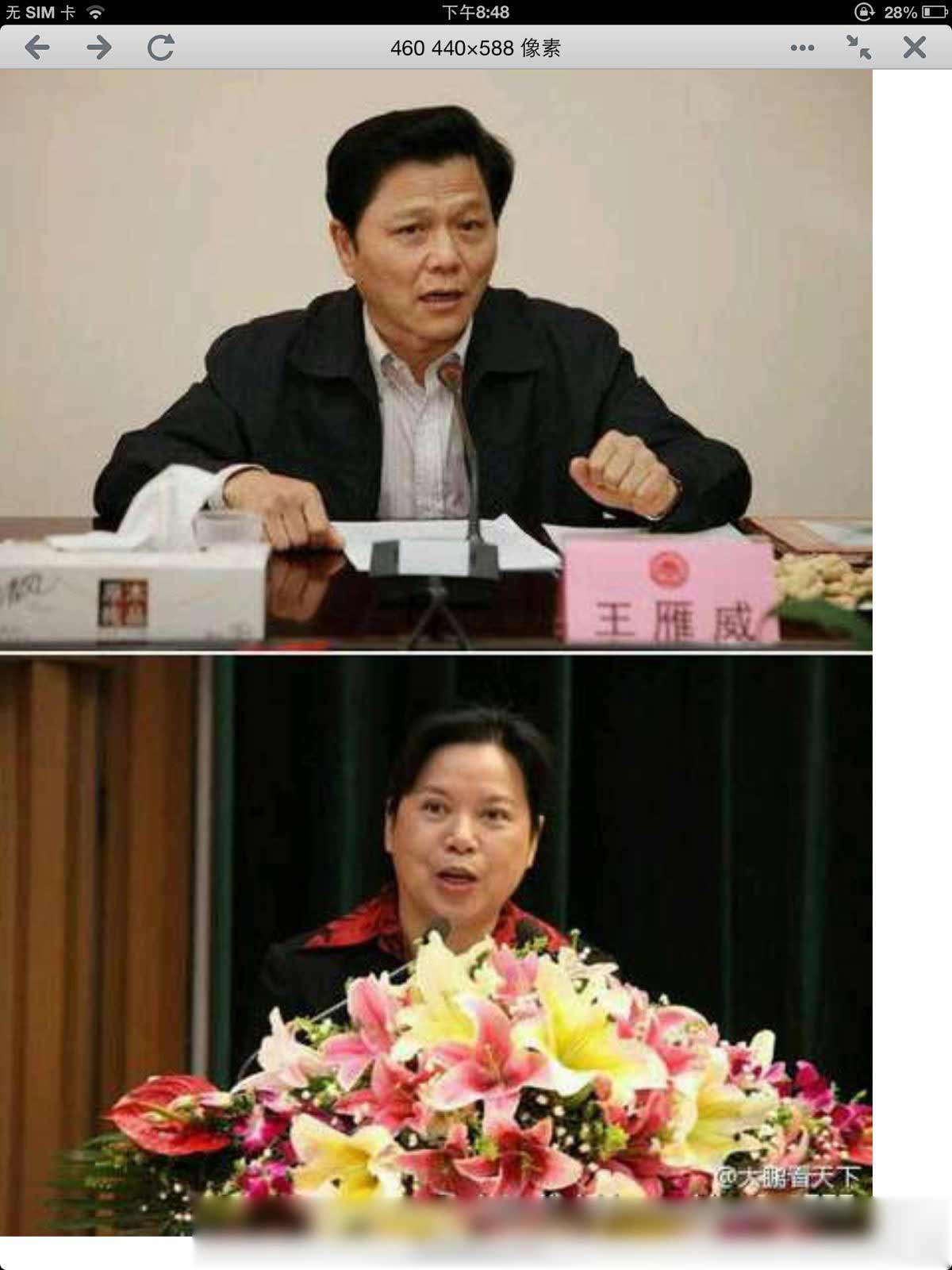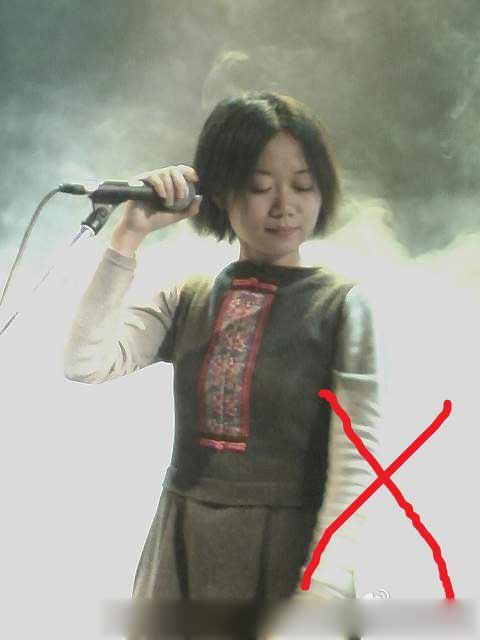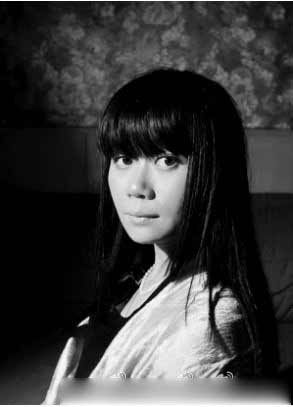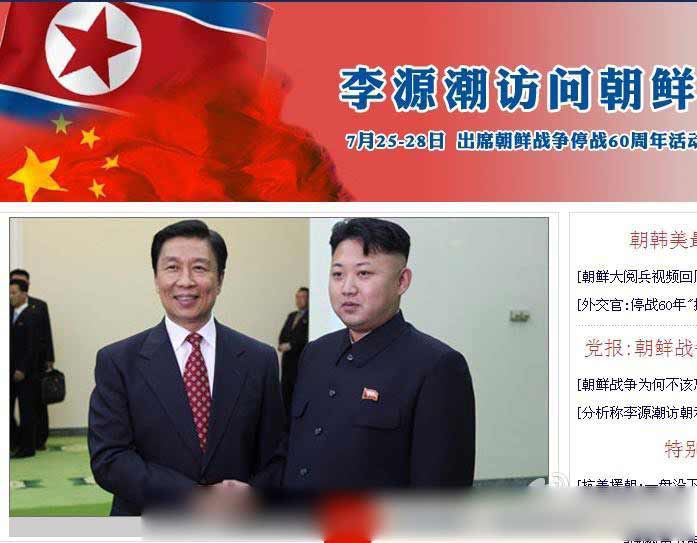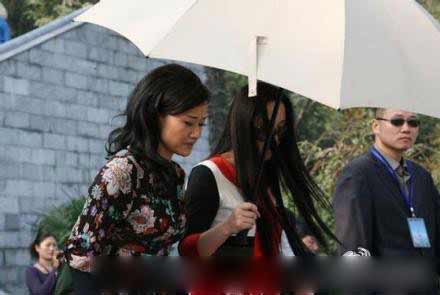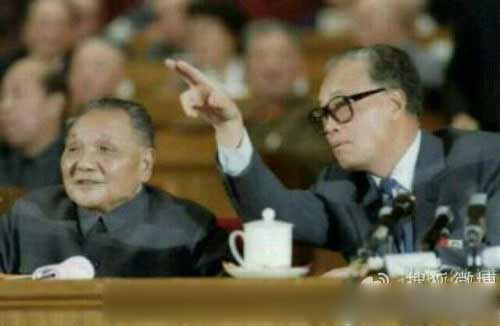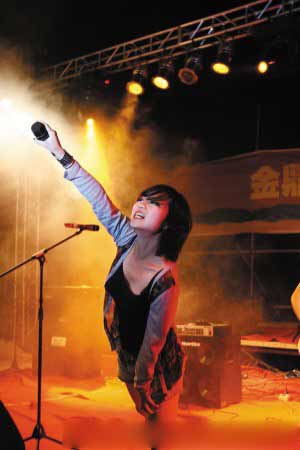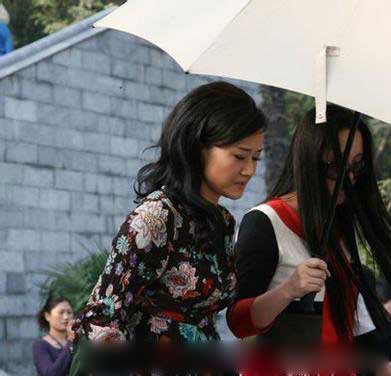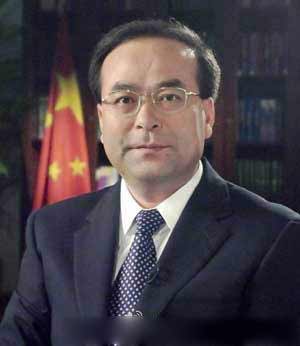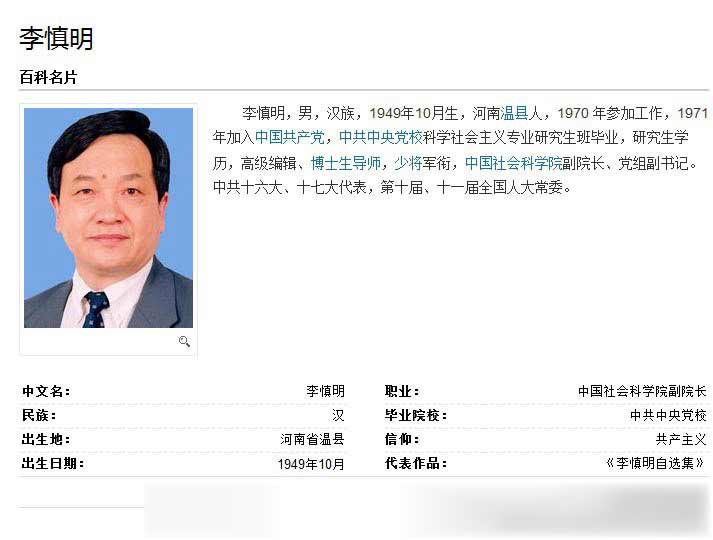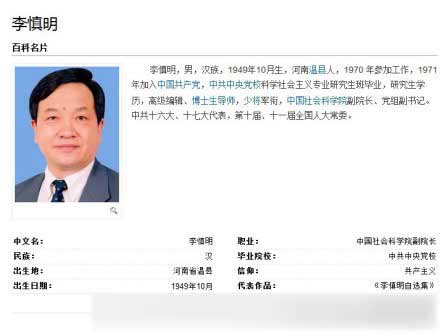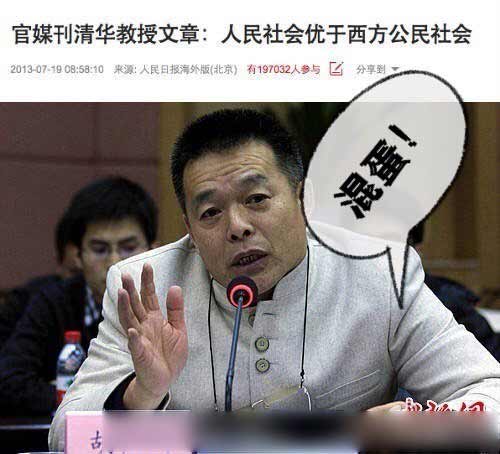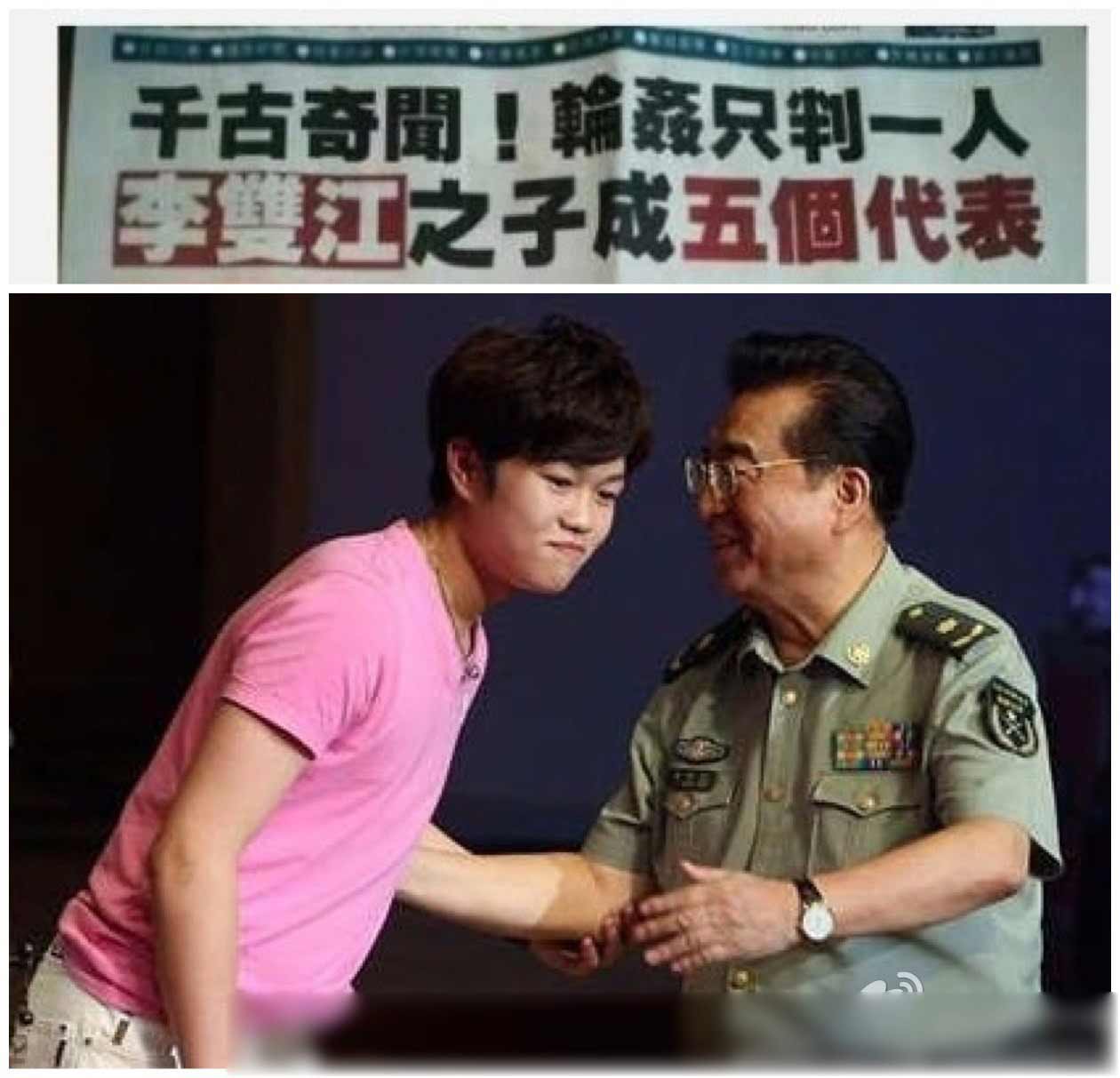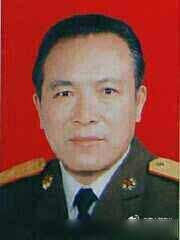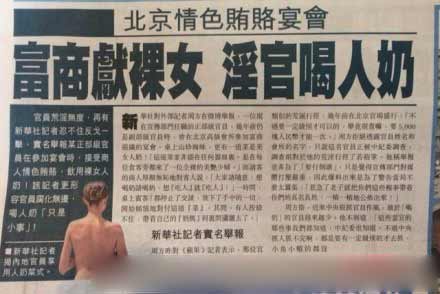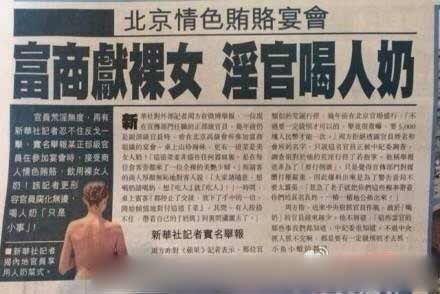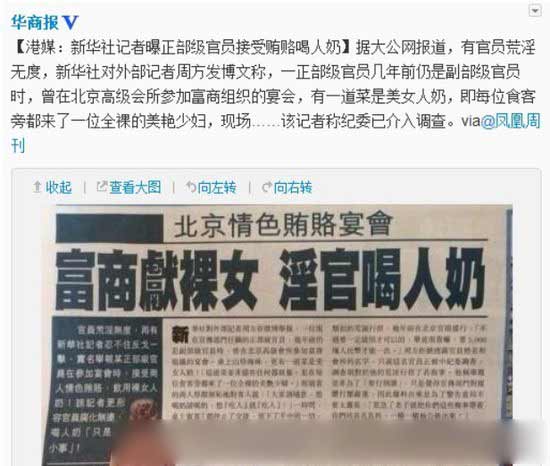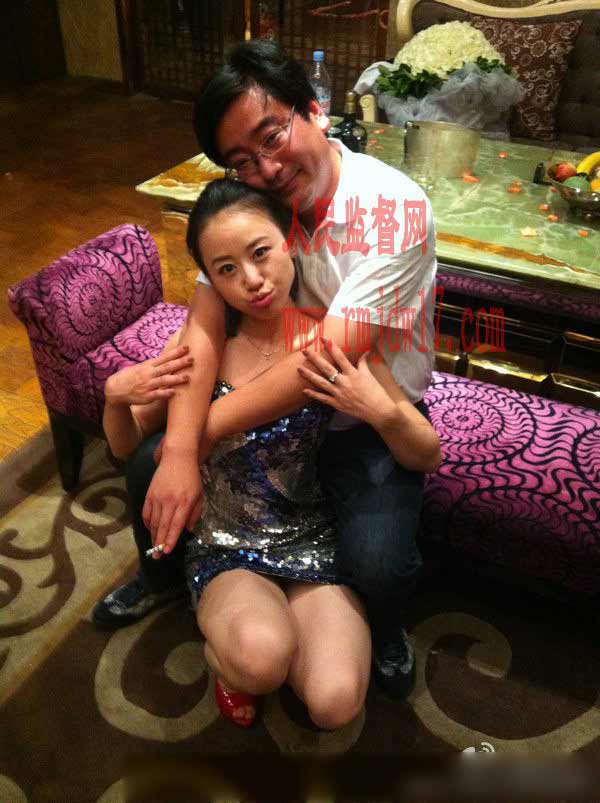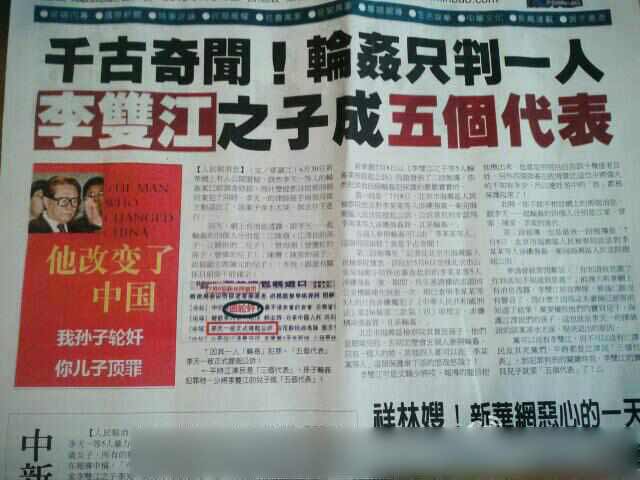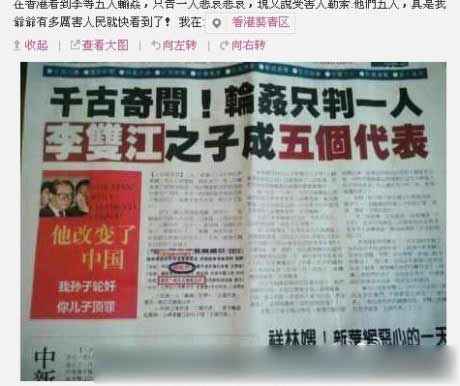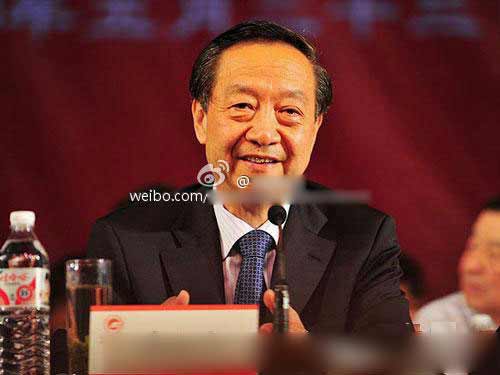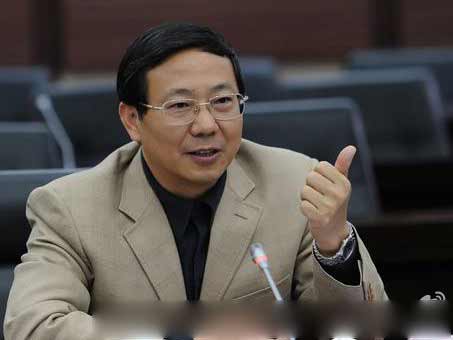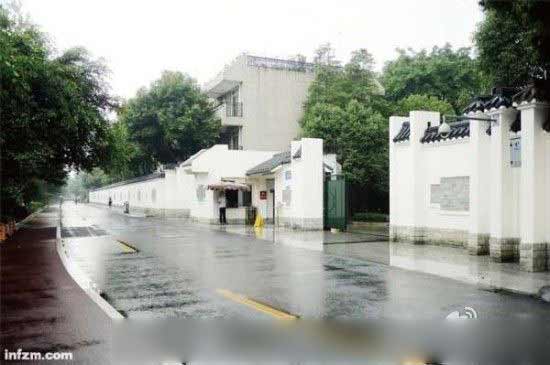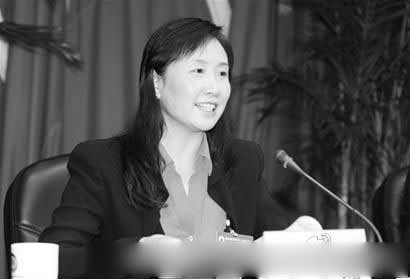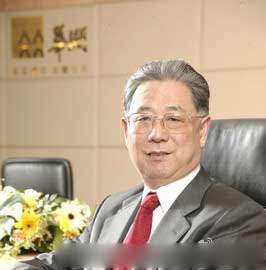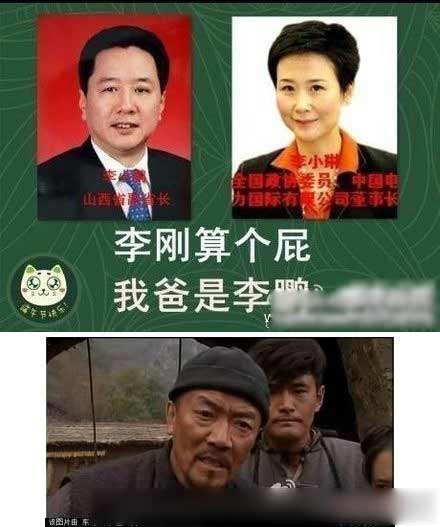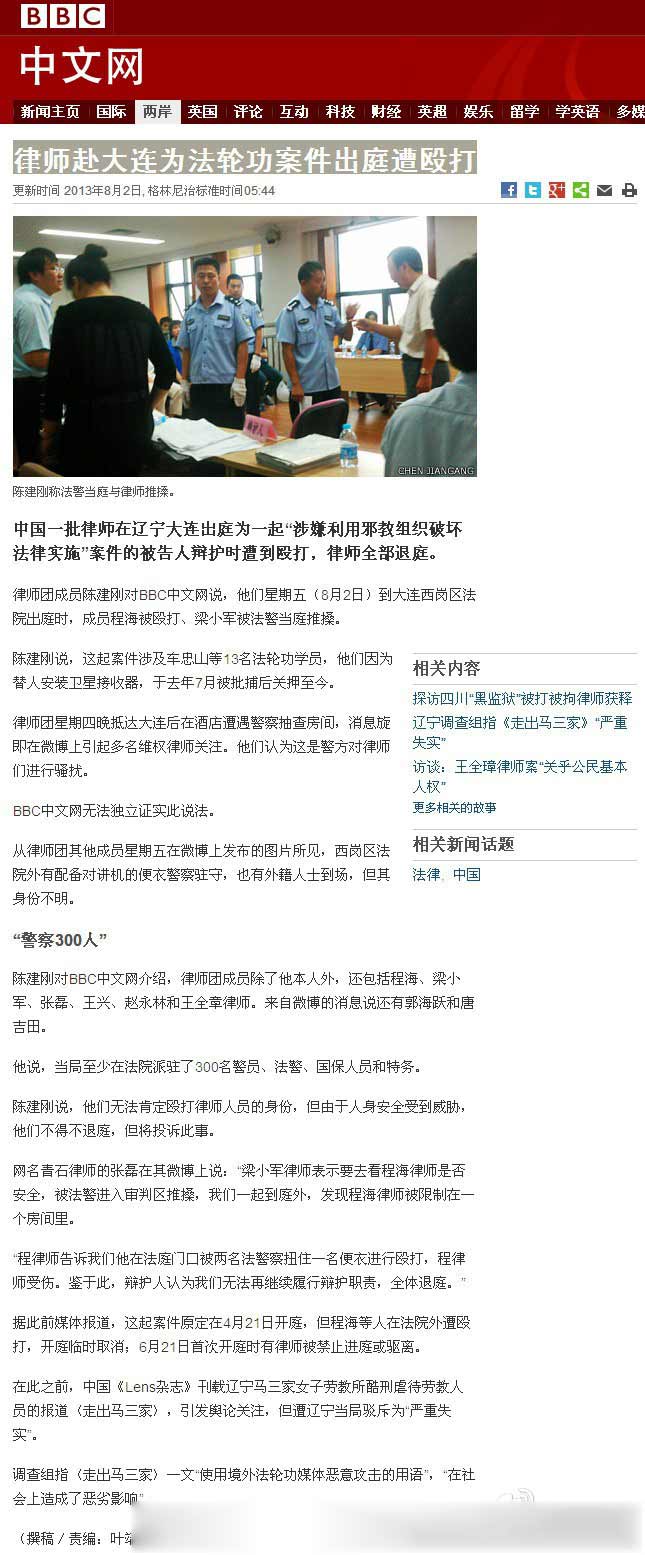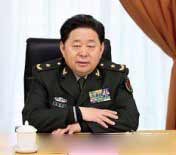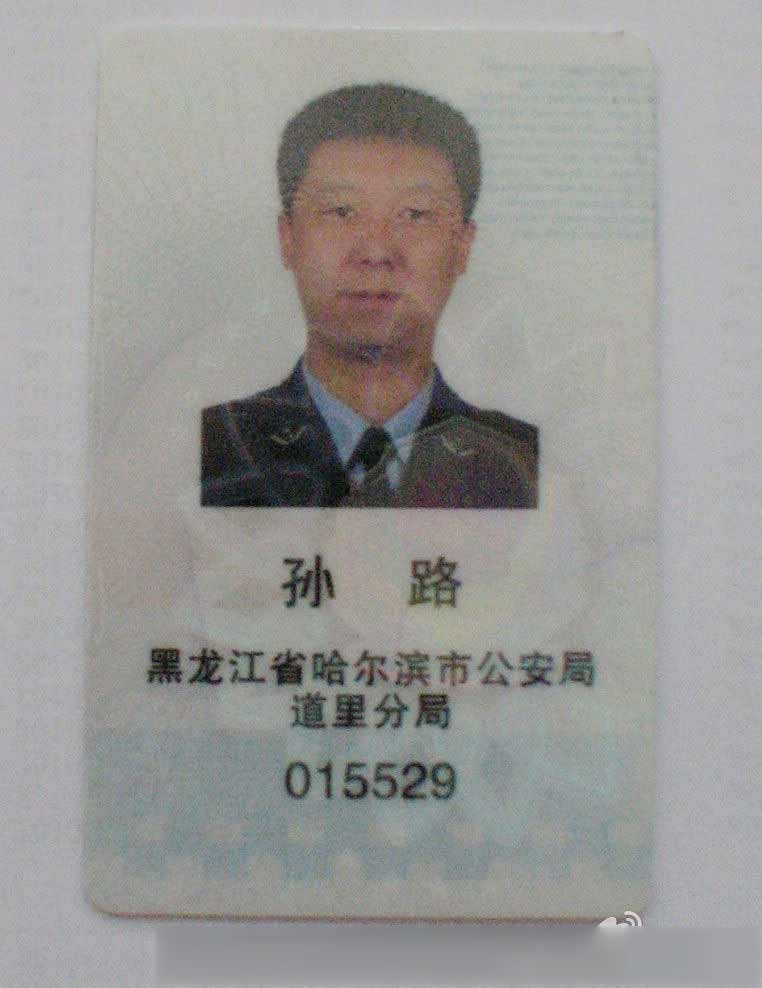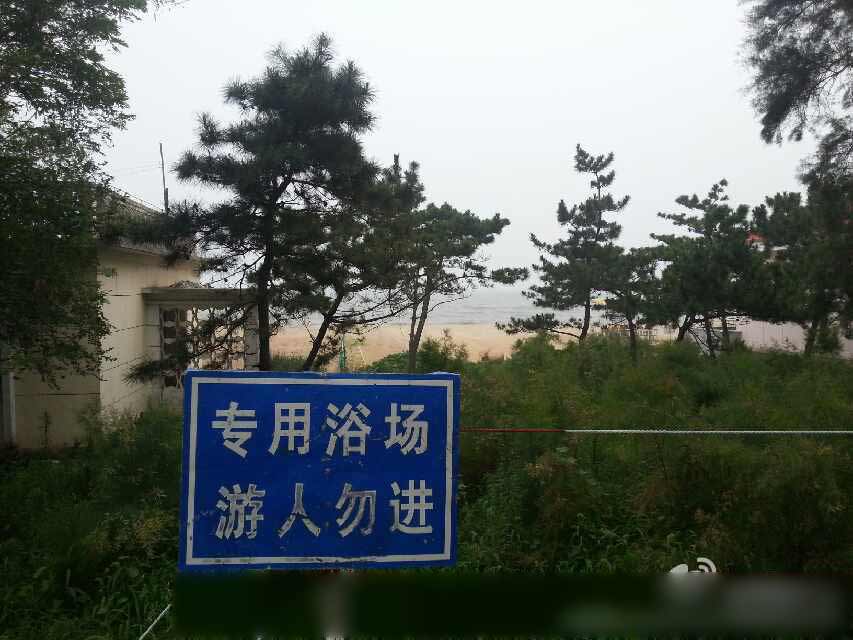A written biography of Ji Zhongxing, who
bombed the Beijing airport in July 2013. The image shows Ji injured after he was beaten and paralyzed by "chengguan," who act as city security guards, in 2005, which led him to stage the airport bombing earlier this year.

The caption beneath this image quotes a Beijing US embassy secretary as noting that thousands of Chinese people are suffering from unjust treatment in China, and that they live a life worse than what the lowest class in America experiences.

The text ridicules the political slogan "let the
China Dream fly," claiming that the promise of the government has been downgraded from "liberation of the entire human being" to "a big dream." The banner in the image says "let the China Dream fly."

The Weibo user writes that Liu Zhimei, a former Tsinghua University student, was expelled from school because she refused to give up her religious beliefs. Liu was arrested in 2001 and tortured during her detention. To prevent her from exposing the extent of her suffering in jail, her captors "poisoned" her, altering her mental state, before setting her free in 2008.

A photo of Wei Lin, the vice president of the Fudan University Department of Economics. The Weibo post quotes him saying, "If financial policies are not focused on the people, the people have no path to life!" The user then writes about how the United States spends a significant amount of its budget on health care, and China, with all its tax income, does not spend nearly enough on services for the common people.

A screenshot of an article from the People's Daily, a newspaper that is considered an organ of the Chinese Communist Party, titled: "Policy Goal of Maintaining Societal Stability Is Fundamentally Centered On the People." The Weibo comment mocks this claim and says that the policy goal of maintaining social stability actually means to crush and suppress the people, while only protecting vested interests.

The Weibo comment accompanying this image says: "Let me tell you why I got fired by the hospital. One stormy summer day, a group of injured were being sent to the ER from a couple traffic accidents. The hospital director called us for emergency operations. Meanwhile, I was sent out of the hospital to stand in the middle of the road and greet passersby while holding an umbrella. After getting soaked, I went back to the operating room, only to find the director extremely angry with me: 'Can't you see people are dying here? Who needs your pretentious gestures?" The post then ends with profanity.

This photoshopped image seems to be daring a group of "chengguan," who act as local city security guards, and Chinese President Xi Jinping, to "Come if you dare," as is written on the wall. The Weibo user writes in the post that "I know the entire truth, come if you dare."

A photoshopped image of journalist Li Chengpeng with his mouth taped shut, and holding up a sign saying "Injustice," being buried underneath a coffin labeled with "8,970,000." The Weibo post writes that without tens of thousands of Internet users, there would be no communication between Chinese citizens and the government.

The Weibo user writes that this is a regulation announced in the Xinjiang Uygur Autonomous Region in Northwest China. The policy stated that locals ought to report to the authorities and apply for permission for the following events: hosting or attending a dinner, weddings, funerals, Ramadan Iftar dinner feast, etc.

In the Weibo comment, the user claims to be a journalist, and while he or she was conducting interviews, the photographed policeman injured his hand. The user is asking for an explanation, and tagged the Weibo account of the Beijing Xicheng Government Information office.

A compilation of quotations from the Chinese language version of The Wall Street Journal and Hong Kong-based newspaper South China Morning Post. Both stories include interviews with Jack Ma, founder and former CEO of e-commerce company Alibaba Group. Ma compares his position in the company to that of Deng Xiaoping when the former Chinese president decided to crack down on the Tiananmen Square protesters in 1989. Ma describes Deng's decision as "not perfect but definitely right." The words "Tiananmen" and "Six Four," referring to June 4th and the massacre, are redacted in the image.

A collection of photos taken during the Cultural Revolution.

A warning about a second "Ji Zhongxing," the Beijing International Airport bomber. The Weibo comment argues that this person was judged unjustly because of perjury by a policeman in Linyi, Shandong. He threatens to cause two explosions on New Year's eve, 2014, and to die with the corrupt officials.

Smartphone photograph captures the collapse of "Communism Bridge" in He Nan province while under construction.

A discussion of Jack Ma, founder and former CEO of e-commerce company Alibaba Group, and if he supported the violent crackdown of Tiananmen Square protesters in 1989. The tape recording Alibaba provided to the Wall Street Journal showed that Ma said that the government's decision was "not perfect but definitely right."

The image is of well-known Hong Kong-based economist Lang Xianping, known for his outspoken criticism of the Chinese government. In the Weibo comment, the user describes Lang accusing the Chinese authorities of falsifying public data, while criticizing state-owned newsrooms that cannot publish anything with a slightly negative tone. The user then laments how the general public in China cannot enjoy the positive result of 30 years of economic revolution, but must still suffer the negative outcomes.

The Weibo comment argues that it is scandalous for a court to secretly execute a prisoner, a businessman named
Zeng Chengjie who had been arrested on dubious grounds, and questions why the judge has not been impeached for this case. The image is of Zeng's daughter with the words "Hunger strike! Rescue my father!" on the gauze around her forehead, hoping to generate online sympathy and pressure the authorities to release her father.

The Weibo user describes how people from Huadu, a northern suburb of the city of Guangzhou, were detained without reason, and that people should be against government plans to build a garbage incineration plant in the city.

This essay argues that Li Kaifu, an outspoken entrepreneur and the former head of Google's Beijing office, uses social media to vilify the Chinese government and incite hatred in society.

This essay questions the official account of the role of the Communist Party in the Second Sino-Japanese War (1937-45), prompting the Weibo user to note how ever since the advent of the Internet in China, this official narrative has spread at a staggering rate.

An unidentified man. The post reads, "In this country, every person is a victim." The user continues that everyone should pass this quote on to those next to them.

After reading the linked article, a Weibo user asks questions about the government and Falun Gong, a spiritual movement that is critical of Chinese authorities and is outlawed in mainland China.

The headline says that after someone used a knife to injure others in a supermarket in Beijing, many supermarkets took knives off the shelf. The Weibo user mocks the article.

This Facebook post lists what problems each of China's historical dynasties have had, and states that all of the aforementioned problems apply to the current era.

An open letter to Yuan Chunqing, the Secretary of the Chinese Communist Party Committee in Shanxi Province, regarding the case of a Shanxi businessman, Li Yongyun. Li was sentenced to life imprisonment in 2009 for the crime of swindling, but was then set free in 2012. The Weibo comment calls for the release of truthful information regarding the corruption of Shanxi party officials.

This compilation of screenshots is from a documentary film titled
Mao's Great Famine. These screenshots are of an interview with Yang Jisheng, reporter and author of
Tombstone (2012). The book documented the Great Chinese Famine of 1958-1961, and is banned in mainland China. The Weibo comment stresses that if officials at the time had been more willing to acknowledge the human error that contributed significantly to the disaster, there would have been far fewer casualties.

The image is of a man who suffered beatings from "chengguan," or local city security officers. The Weibo comment angrily reports the location and details of the brutal attack. The user concludes with a suggestion to the nation: "Swiftly cut off the malignant tumor that is the chengguan!"

Both the text in the image and the Weibo comment accuse those in power of corruption, criticizing them for living a luxurious life at the expense of the common people.

The Weibo user in the accompanying comment protests the government's demolition of her residence in Nanjing, where she lives with her 66-year-old mother. It is unclear where the marks shown in the image came from.

This image shows an article with the headline, "No Hong Kong student over 18 self-identifies as Chinese." The user also claims that his/her earlier post with similar content was shut down by Weibo system administrators.

An article on Voice of America's Chinese website: "Detained Anhui Province pro-democracy activist Zhang Lin meets with lawyer." The user calls for the release of Zhang.

The image is the Chinese character for the color black. The Weibo user calls for the complete disclosure of the wealth and assets of all members of the Politburo Standing Committee of the Communist Party of China.

A man in Jiangsu Province is detained for wearing a hat that says, "Citizen," indicating support for the New Citizen's Movement and its imprisoned founder, activist Xu Zhiyong. Xu released a video message from his prison cell in August 2013 calling for people to
add the word "citizen" in front of their names as a way of asserting their rights under the Chinese constitution.

The text in the image says "the speed of demolition equals the speed of our development" and "it is of little consequence if eight or ten people die." According to the Weibo comment, these words are from Sun Xiangguo, the municipal party secretary in Panjin, a major city in Liaoning province.

The text in the image explains five features of a series of public hearings that took place in major Chinese cities such as Chongqing, Hefei and Chengdu, most likely in reference to Bo Xilai's upcoming trial.

The iPhone screenshot shows the sharing of an image of singer Wu Hongfei and her original blog post to bomb government buildings. The user in the image sharing the post states that the rapid security response to Wu's online post that resulted in her immediate detention for
"causing trouble" was typical police procedure that really had to stop.

This smartphone screenshot includes a Weibo post disclosing the financial and property assets of former Guangdong province governor Huang Huahua. The post also includes figures for other government officials, including an official's family that owns more than 3,270 businesses.

Image contains Chinese actor and comedian Chen Peisi. In the text he exclaims how happy he is to see significant changes for the better in Chinese society, including fewer boycotts of Japanese products, less official corruption, less anti-U.S. sentiment, more policies to hold the government accountable, and fewer "Fifty Cent Party" members who are paid 0.5 yuan for every pro-government post they submit. "I appreciate the national changes brought about by the Internet and free speech, and have great hopes for a better tomorrow!"

Image of Weibo users sharing original post of Chinese singer Wu Hongfei, who, after a wheelchair-bound man detonated a homemade bomb in Beijing Airport on July 22,
joked that she wanted to blow up Beijing's official government department responsible for managing construction work. In her post, Wu strongly expresses her distaste for the government office by referring to it by a variety of vulgar names. She was subsequently arrested by the government on the grounds of "picking a quarrel and starting a fight." The text accompanying this image warns readers to be careful about what they say, as vulgar expressions can be misconstrued as being far more serious than they originally intended.

The title of this article says "Testimony of Google's Support for Tibetan Autonomy."

The text in the image calls for justice for the pictured woman, an elementary school teacher in Hong Kong. She allegedly used coarse language to address police officers when she saw them interrupting Falun Gong members' peaceful activities on the street. Her controversial behavior has caused heated debates in Hong Kong and mainland China.

Image contains the phrase "We revile the President," using the homonym "horse" to stand in for the word "revile."

In the Weibo comment, the user claims that representatives from the U.S. State Department met with Chinese officials in the city of Kunming on July 30-31, 2013, to discuss human rights issues. The user then claims that the U.S. called for China to release any political prisoners it had taken into custody.

This image is of a post that discusses current president Xi Jinping's political ascension and shrewd calculus. The text makes parallels to Mao Zedong's own method of purging his ranks and the suffering of his close associates Deng Xiaoping and Liu Shaoqi under Mao's hand. The post also references high-ranking politicians of the previous Politburo cabinet, Hu Jintao and Wen Jiabao, and suggests that their investigation into Bo Xilai is a purge reminiscent of the Mao era.

The words in the image say "Breaking News." The Weibo user talks about his/her plans to bomb various major cities because of rampant corruption, saying that there are already bombs in major cities including Tokyo, New York City, London and Sydney.

This post touches upon the Bo Xilai incident, specifically highlighting the great numbers of Chinese who "will steadfastly support him" and the "corrupt triad society" that characterizes the "Hu Jintao and Wen Jiabao revolution." .

The Weibo comment details security personnel at Nanjing Olympic Sports Center Gymnasium, who cordoned off its southern entrance from a man who repeatedly said he wanted to detonate a bomb because "society had not treated him equally."

The image is of an advertisement on the highway that says "The Nanjing Government secretly demolishes homes; when will they return mine?" The Weibo comment asks if others have seen this billboard, emphasizing that "the people have advertised the defense of their legal rights! And on a highway billboard too!"

The caption describes China People's University law professor Xiao Han as saying, "I've paid attention to petitioners for many years, I can't help anymore. I only have one suggestion: Once you've wiped away your tears, packed up and gone home, stop petitioning. If you can't swallow your anger, take refuge in religion, and use your spirit to forgive those who have wronged you. If you can't accomplish this, then just take revenge. This type of revenge in any social system is allowed: it has a certain sense of justice."

Advertisement on highway that says "The Nanjing Government secretly demolishes homes; when will they return mine?" The Weibo comment asks if others have seen this billboard, gleefully emphasizing that "the people have advertised the defense of their legal rights! And on a highway billboard too!"

The image is a cover of Shanghai-based Chinese magazine Xinmin Weekly. The title says "Zeng Chengjie: His Secretive Death Sentence." The Weibo text says a number of politically provocative things, including a claim that the "most barbarous and uncivilized act in the world is brutally destroying the homes of the people," which is a reference to the widespread government-authorized
demolition of residential housing in order to seize land.

Picture of Datong Train Station, in China's northwestern Shanxi Province. In the comment the Weibo user marvels at how, after traveling to so many of China's train stations, Datong remains the only one that is not covered with "ugly Party inscriptions" and its typically "characterless typeface."

A screenshot of a Weibo post by Guizhou vice-governor Chen Mingming, telling Chinese online users who curse their own country to leave China, and to ensure they hide their Chinese identity when arriving in another country.

"Protect my homeland." The Weibo post claims that two families are standing outside of their residences with gas tanks and lighters. The city planning office requested that the families demolish the houses, or they will be forcibly demolished.

Both the image title and Weibo comment discuss pension funds in China, with the latter describing how the system is being managed by corrupt officials.

The words held up by the soldiers say "Building a harmonious society," a frequently used government slogan. The Weibo user posted only the emoticon for being scared.

Image of Jack Ma, Chinese entrepreneur and former CEO of e-commerce company Alibaba. The Weibo user references an interview where Ma was asked about the Tiananmen massacre and whether the government decision to send in tanks was correct. The user calls Ma a "bandit" for responding that although the decision "was not perfect, it was the right one."

A banner asking local Chinese governments to pay more attention to HIV patients and treatments.

Image of Weibo user sharing another user's post, which states: "I've been held under 'twenty-four hour supervision' for seven days now, and am unsure when it will end. It looks very serious to me: six personnel guard my front door at all times."

The article discusses one man who has begun to investigate the municipal government and past corruption in failed projects.

The captions for the images in the montage read as follows: "1) Enormous spending (the picture is of an official defending his money and wealth from the cameras, saying "Too many secrets; I cannot disclose them to the public!"); 2) State-owned business monopoly, causing citizen dissatisfaction; 3) Expensive housing requires two decades of income to own; 4) Environmental degradation costing you your health and keeps the poor in poverty; 5) Artificial foodstuffs reaching an extreme point and costing us money and our health; 6) Medical treatment is tough to access and very expensive; 7) Devaluing credit — shrinking savings; 8) Stock market trepidation; 9) High cost of children's education; 10) The incessant increase of consumable item prices (in the picture the snake is asking the man to hand over his savings).

The image is a photograph on Weibo with user Liu Jialing commenting "48 years, I've finally arrived! The Red East, The Sun of my Heart!" The accompanying Weibo text with the image describes how Liu and her photograph were heavily criticized by the People's Daily newspaper, on the grounds that her choice of words "should be more prudent and cautious." The user directly addresses People's Daily: "Please tell me, how should Liu Jialing speak 'more prudently and cautiously'? People's Daily is becoming more and more unreliable!"

Image is of a provincial official defending what appears to be the actions of government figures like Chen Mingming, the vice-governor of Guizhou province. Chen
caused an uproar in early August 2013 after calling Chinese critics a "bunch of degenerates." The Weibo comment describes the pictured vice-governor being castigated by members of the Weibo community, who describe the official as "ignorant, senseless, and shameless."

The words "Freedom" and "Liberty leading the people" are written on top of the iconic painting by the same name portraying the French revolution. In the Weibo post, the user intersperses symbols in between the characters for Xu Zhiyong in order to bypass the automatic censorship filters.

Essay describing President Xi Jinping visiting and interacting with top officials, establishing a military force whose primary responsibility is to "ensure the security of the capital Beijing." At the end the user notes that this development sets an uneasy precedent for the future, and could cause panic and instability.

This image is a table that compares various eras in modern Chinese history, from the turn of the 20th century under Empress Dowager Cixi, to the eras under rulers Yuan Shikai and Sun Yatsen in the pre-1949 years, to the days after the People's Republic of China was formally established. The columns illustrate what types of speech were possible, such as the capacity to criticize the leadership, independently gather news information, and the extent of censorship in the media. In the final row, which is labeled as the current version of China as run by the PRC government, all the variables fare poorly and are the exact opposite of what had been true for other eras; strict censorship policies; no ability to criticize the government; and mandatory eulogizing of the regime by the people.

An essay reflecting on the undesirable state of affairs in China and describing the state of democracy in America.

The Weibo post references the many temples destroyed in the past, referencing the 1967-1976 Cultural Revolution where, amidst national disarray and upheaval, anything that evoked earlier traditions was to be destroyed. As a result, many religious buildings and figures were smashed. The Weibo user hopes that by advocating for the protection of any remaining temples, he won't get assaulted for being "anti-patriotic."

An image contrasting Obama casually bumping fists with a janitor in greeting, versus a Chinese official posing for a picture with a group of women behind him. The Weibo text reads: "One photo comments on civil society versus people's society."

The banner reads: "Wherever there is a Communist party member, there is disaster." The Weibo user wonders if this photo was photoshopped, and sarcastically exclaims "That would be too horrible."

This image is a table that compares various eras in modern Chinese history, from the turn of the 20th century under Empress Dowanger Cixi, to the eras under various rulers Yuan Shikai and Sun Yatsen in the pre-1949 years, to the days after the People's Republic of China was formally established. The various columns illustrate what types of speech were possible, such as the capacity to criticize the leadership, independently gather news information, and the extent of censorship in the media. In the final row, which is labeled as the current version of China as run by the PRC government, all the variables fare poorly and are the exact opposite of what had been true for other eras; strict censorship policies; no ability to criticize the government; and mandatory eulogizing of the regime by the people.

It is unclear who the person in the image is. The Weibo user mentions a new Chinese memoir, whose author describes childhood during the Cultural Revolution in the late 1960s and early 1970s. The Weibo user continues to outline the author's coming of age in an era of turbulent tragedy, social upheaval, and Mao Zedong's policies and purges.

This essay argues that "even after more than twenty years of the so-called 'revolutionary struggle to open China to the world,' the Chinese people have still not been granted the circumstances for a safe and prosperous livelihood."

The banner reads: “Punish the culprits of the Cultural Revolution. Clearly account for all of Mao Zedong's crimes against humanity." The Weibo text asks if a banner like this is illegal and if the people in the photo will be sent to a labor camp.

This article strongly criticizes the People's Daily, a newspaper that is an organ of the Central Committee of the Communist Party of China. The title says: "People's Daily, you have already been disorderly for so many years."

The Weibo user argues that the image is of a 1966 massacre that occurred during the context of the Cultural Revolution. The slogan "Uproot" was used to describe the massacre, which did not even spare infants and children.

This image is of an online user-generated notice titled "Please Ask the Central Government." The text outlines how Li Xiaopeng and Li Xiaolin, two sons of former Premier of China Li Peng, were placed into high-ranking positions in Shanxi province, questioning whether it was their ability or their bloodline that was the deciding factor. The user continues to ask whether nepotism can continue to operate in modern government, as it is stifling the people.

Images of people gathered around police officers. The Weibo post says, "Look, the people are waiting to get their name called, to get in the car."

A man in Jiangsu Province is detained for wearing a hat that says, "Citizen," indicating support for the New Citizen's Movement and its imprisoned founder, activist Xu Zhiyong. Xu released a video message from his prison cell in August 2013 calling for people to
add the word "citizen" in front of their names as a way of asserting their rights under the Chinese constitution.

On a hashtag created to celebrate Mao Zedong's 120th birthday, one user posted an infographic showing the results of a poll that proposed two scenarios: if after rejecting Mao Zedong, China would plunge into chaos (red), or if after rejecting Mao Zedong, China would have a brighter future (blue).

The Weibo user claims to be from Xinjiang, and details in the comment that his/her parents went to visit relatives in Shandong Province. At the motel pictured here, the employees, upon realizing the group was from Xinjiang, said they had no rooms available. This incident prompted the Weibo user to angrily lament that people from Shandong do not welcome those from Xinjiang, and questions whether Uighurs are still people too in China.

This post asks in the title, "The USSR: A Tragedy?" It goes on to question the premise that the current social situation in China is unstable, even more than what brought the Soviet Union down. This post directly refutes an essay written by Wang Xiaoshi, an online name for Li Shenming, Deputy Secretary at the Chinese Academy of Social Sciences. His work focused on the tragedy of the Soviet Union in the 1990's after its dissolution and argued that if China continues bemoaning its societal troubles and inequities, it will suffer a worse fate than the USSR did.

The image is an article from a volume titled "The History of the Chinese Communist Party: 1949-1978." The Weibo user has circled the figures of reported deaths during the Great Famine of the late 1950's (over 37 million deaths). The red text asserts that the number is much lower than what Western media outlets have reported, and the real number should be nearly 50 million deaths.

The Weibo comment and the image both discuss the luxurious treatment of ministers in the Chinese government, which include a 220 square meter (722 square feet) house, a 54 square meter (177 square feet) office, a 450,000 yuan (74,000 dollars) car, and many other benefits after retirement.

In the comment, the Weibo user talks about a particular week receiving frequent calls from local police personnel. They talk about the location of Bo Xilai's trial, saying that if one goes the other must also attend. The Weibo user refuses to go, citing singer Wu Hongfei's
recent online bomb joke that security personnel harshly cracked down on. The Weibo user then asks whether the police officer knew anyone involved with Wu's arrest.

The headline reads "The truth behind one car crash." The man in the interview says, "I just feel that either way I'm a little unsatisfied with the government." The Weibo text alleges that this man wrote a post detailing the total number of fatalities from car crashes in China, but because the number he described was higher than the "real" national number, he was forced to apologize on television.

Image is a screenshot of excerpts of two essays. The first is by Weibo user 'Wang Xiaoshi' who wrote an article about the tragedy of the Soviet Union, arguing that if China continues bemoaning its societal troubles and inequities, it will suffer a worse fate than the USSR did. The second article was a story written earlier, stating the opposite -- that despite its post-1989 troubles, Russia did quite well as a nation.

The title of the article in this screenshot says "Xinhua News Criticizes Public Intellectuals for Inciting the Populace to Hate the Government."

State-owned Xinhua News Agency published an op-ed under the name "Wang Xiaoshi" titled "An unstable China will end up more tragic than the Soviet Union after its 1991 collapse." 'Wang' made his point by quoting economic indicators of Russia. This Weibo user emphasized how most of the cited figures are inaccurate.

The Weibo comment says, "Who can tell me what to do?" The user describes how his or her mother was beaten to death and no one is investigating the case, and the user will continue to plead for justice. It ends with "return justice to my mother!"

On the woman's chest is an image of Chinese president Xi Jinping, with the words "The
Chinese Dream Is Here In My Heart."

The Weibo user writes that recently all Chinese news sites, such as the one pictured, were required to feature an article criticizing those who seek to disturb society by writing long, opinion essays on Weibo.

The Weibo user writes that recently all Chinese news sites, such as the one pictured, were required to feature an article criticizing those who seek to disturb society by writing long, opinion essays on Weibo.

The screenshot is the Weibo page of a Beijing-based stock company. Pictured is the president of the company participating in a military review of the Chinese People's Liberation Army honor guard. To express his appreciation for the president's visit, the head of the honor guard organizes a ceremonial exercise just for his visit.

This is a screenshot of the South China Morning Post, a Hong Kong-based newspaper. The title of the article in the image says "State Council Information Office Gives Orders to Criticize Weibo's Public Intellectuals," who are most likely viewed as rabble-rousing, socially destabilizing forces by the Chinese government. The Weibo comment has the title: "The Glamour of Autonomous Expression."

This image is a compilation of excerpts from an essay written by Wang Xiaoshi, the pseudonym for Li Shenming, Deputy Secretary at the Chinese Academy of Social Sciences, and a series of rebuttals from the online community. Wang's essay focused on the tragedy of the Soviet Union in the 1990's after its dissolution, and argued that if China continues bemoaning its societal troubles and inequities, it will suffer a worse fate than the USSR did. Attached to Wang's article are responses from Weibo users, who point to works, figures and tables that refute his essay.

The Weibo comment and the image both discuss the luxurious treatment of ministers in the Chinese government, which include a 220 square meter (722 square feet) house, a 54 square meter (177 square feet) office, a 450,000 yuan (74,000 dollars) car, and many other benefits after retirement.

This screenshot is of a Beijing-based stock company's Weibo profile. Pictured is the president of the company participating in a military review of the Chinese People's Liberation Army honor guard. To express his appreciation for the president's visit, the head of the honor guard organizes a ceremonial exercise just for his visit.

This is a screenshot of the South China Morning Post, a Hong Kong-based newspaper. The title of the article in the image says "State Council Information Office Gives Orders to Criticize Weibo's Public Intellectuals," who are most likely viewed as rabble-rousing, socially destabilizing forces by the Chinese government. The Weibo comment has the title: "The Glamour of Autonomous Expression."

This essay refers to an article written by online user 'Wang Xiaoshi', who wrote that if China continues bemoaning its social troubles and inequities, it will suffer a worse fate than the USSR did. This censored image is titled "Ninety Percent of Wang's Article is Based on Rumor." The remainder of the text then proceeds to dispute the numbers Wang used in his argument.

Image is of an essay titled "China's Black Leadership is the Most Shameless Community."

This article refutes an essay written by Wang Xiaoshi, an online name for Li Shenming, Deputy Secretary at the Chinese Academy of Social Sciences. His work focused on the tragedy of the Soviet Union in the 1990's after its dissolution, and argued that if China continues bemoaning its societal troubles and inequities, it will suffer a worse fate than the USSR did.

The photo is of a famous Chinese dish called "Buddha Jumps the Wall." The Weibo comment links to an article by the People's Daily, a daily newspaper published by the communist party, that has the headline, "The path of the people, following what the people desire." The user writes that this article reminds him of the famous dish in the photograph, and criticizes the article for not aligning with the reality.

Essay by Chinese journalist Xiao Shu.

The user describes the woman in the photo as 58-year-old "Old Miss Tian," who is suspected of spilling paint over a memorial for party leadership, and is therefore attending a court hearing. The user alleges that she may face imprisonment for up to 10 years and tens of thousands of yuan in fines, and comments, "Such systematic evil! It'd be strange if this country doesn't fail!"

This article refers to an essay written by Wang Xiaoshi, an online name for Li Shenming, Deputy Secretary at the Chinese Academy of Social Sciences. His work focused on the tragedy of the Soviet Union in the 1990's after its dissolution, and argued that if China continues bemoaning its societal troubles and inequities, it will suffer a worse fate than the USSR did. This pictured article starts with "Many Chinese Weibo users have pointed out that over ninety percent of the numbers in Wang's article are rumors."

State-owned Xinhua News Agency published an op-ed under the name "Wang Xiaoshi" titled "An unstable China will end up more tragic than the Soviet Union after its collapse." This poster claims to have found the clue in confirming that "Wang Xiaoshi" is actually the pen name of Li Shenming, vice-president of the Chinese Academy of Social Sciences.

The Weibo comment references a World Bank proposal for China to undertake economic reforms, especially in its agriculture sector.

The Weibo user's post reads: "What decade are we living in? I just received news that someone is reminding us: Currently, Dalian's situation is very grim. To stay safe, leave Dalian." Dalian is a Chinese city where Bo Xilai formerly presided as mayor from 1993 to 2000. The image's connection to this message is unclear.

The Weibo user describes how a villager in Shandong Province was imprisoned for 10 days for slandering politician Li Xiaopeng, son of former Chinese Premier Li Peng. The incident occurred on July 22 when the villager posted on Weibo that the Shenhua Group, a state-owned mining and energy company in China, is privately owned by Li. The village resident continued encouraging other people on Weibo to scrutinize what other companies Li owned and had established. Upon hearing about this online activity, police immediately detained the villager, holding him for 10 days before releasing him. The pictured image is the arrest warrant for the villager.

Image is a montage of an old Chinese propaganda poster praising the Soviet Union. The title is "Today's Soviet Union is Our Tomorrow." The bottom photograph is of former North Korean leader Kim Jong-il. The Weibo comment claims that in 1991, former Russian President Boris Yeltsin remarked that "Communism is a beautiful yet stupid utopia; even though some countries continue maintaining this system, I hope the people of these nations will eventually realize this truth."

The Weibo user describes how a villager in Shandong Province was imprisoned for 10 days for slandering politician Li Xiaopeng, son of former Chinese Premier Li Peng. The incident occurred on July 22, when the villager posted on Weibo that the Shenhua Group, a state-owned mining and energy company in China, is privately owned by Li. The village resident continued encouraging other people on Weibo to scrutinize what other companies Li owned and had established. Upon hearing about this online activity, police immediately detained the villager, holding him for 10 days before releasing him. The pictured image is the arrest warrant for the villager.

An old propaganda poster with the caption "Never forget the class struggle!"

Image of a map detailing the boundaries of the Soviet Union. The Weibo comment notes: "Chinese Weibo: Amazingly, the one laughing because another's pants fly is down has forgotten that his own buttocks are exposed."

The screenshot is of a historical drama. The character pictured is Yue Fei, a general during the Southern Song Dynasty, and the words beneath him read, "Those who understand me understand I am worried." The Weibo user says that while watching the drama, he felt that a high-ranking official in China also said these words.

The newspaper article in this photograph writes about the reactions of former top government officials to a speech by Wang Yang, the Vice Premier of China. The article notes that the speech was perceived as horrible and requested that the central government start investigating Wang.

The title of this essay is as follows: "Chinese Weibo: Amazingly, the one laughing because another's pants fly is down has forgotten that his own buttocks are exposed." The article goes on to document how online user 'Wang Xiaoshi' published an essay about the tragedy of the Soviet Union in its downfall -- implying that if China continues bemoaning its societal troubles and inequities, it will suffer a worse fate than the USSR did. The essay highlighted the strong criticism the author has received from the online community as a result.

This screenshot contains purported quotes from Chinese president Xi Jinping admitting how some problems have originated from within the party.

Image is a screenshot of a Weibo comment directly addressing Chinese President Xi Jinping: "In order for the Party to prepare for progressive reforms and address past instability, it needs to acknowledge that the root causes to certain problems lay within itself." The comment includes the original user lamenting that "such words of mine cannot be publicly broadcast by state-run media."

This essay says what a significant struggle capitalism has been for China, suggesting that after 30 years of forced uphill battle, the country is gasping for breath, and has not even reached the place it originally wanted to be.

The image is of a letter to Party Secretary of Jiang Su province written by a factory worker in Nanjing, whose name and personal details are blanked out. The worker details his recent release from detainment by the propaganda department because of his participation in annual protests regarding crucial paperwork that his superiors failed to properly administer, and criticizes the government for frequently "locking up this poor man of more than sixty years of age, and separating him from his severely mentally ill partner."

An unidentified woman. The Weibo text states that either the user or this woman is petitioning the government for grievances against her mother, including threats to her life.

The image is of a letter to Party Secretary of Jiang Su province written by a factory worker in Nanjing, whose name and personal details are blanked out. The worker details his recent detainment by the propaganda department because of his participation in annual protests regarding crucial paperwork that his superiors failed to properly administer, and criticizes the government for frequently "locking up this poor man of more than sixty years of age, and separating him from his severely mentally ill partner."

The user says this photo is a woman standing outside the Taiwan Presidential Palace. The Weibo post proclaims that the user's daughter went to Taiwan and shouted, "Democracy is not only apparent in the government, but also in daily life!"

The beginning of an essay by online user "Wang Xiaoshi" about the tragedy of the Soviet Union in its downfall -- implying that if China continues bemoaning its societal troubles and inequities, it will suffer a worse fate than the USSR did.

The main caption reads, "Russian Minister: The Chinatown model is not appropriate for Russia." The Weibo user writes that the Russians view the Chinese as lacking significant qualities in character.

A montage of historical Chinese intellectuals. The Weibo post describes the bleak lives these intellectuals experienced throughout various historical eras.

The characters held up by the soldiers say "Building a harmonious society," a frequently used government slogan. The Weibo user writes that people have the right to know whether one shall be held in slavery or servitude.

The user says this photo is a woman standing outside of the Taiwan Presidential Palace. The Weibo post proclaims that the user's daughter went to Taiwan and shouted, "Democracy is not only apparent in the government, but also in daily life!"

The image criticizes the government's preoccupation with emphasizing a stable society, concluding with the question of whether it is "worth paying any price for national stability, including turning the country into a prison?" The Weibo comment talks about former Communist leader Liu Shaoqi who had been a close comrade of Mao before being purged and dying as a traitor. The user notes that Liu pushed for a constitutional government.

The main caption reads, "Russian Minister: The Chinatown model is not appropriate for Russia." The Weibo user writes that the Russians view the Chinese as lacking significant qualities in character.

The image is a transcribed interview "between me and a Chinese Weibo user" -- with questions that include "Besides Chairman Mao and Stalin, who else do you respect the most?" The Weibo comment questions why Chairman Mao was unwilling to protect his loyal followers and believers, and why he abandoned those on the left.

The banner reads, "... truly understands the hearts of the people. Together, prosperous, where the people's hearts lean." The Weibo user writes that his or her child saw this banner on a bridge, took this picture and nearly cried. It may be interpreted as a thinly veiled criticism of how far from the truth this banner is.

The screenshot is of a Radio Free Asia article, with the title "Op-Ed Contributor Liang Jing: Bo Xilai's case puts Xi Jinping's political management to the test."

Image is a statement by Xiao Shu calling for the release of activist Xu Zhiyong.

Screenshot of a Weibo post on smartphone, focusing on the official and actual versions of historical events. Highlights include: "Mao's disaster that resulted in three years of famine, where more than forty million died, is written off as merely a natural catastrophe."

This image makes fun of the fact that in a 2011 star-studded Chinese
film about the establishment of the Communist Party, none of the actors are Chinese citizens. The image lists how many of the main actors and actresses hold passports from other countries such as the United States, Canada and Singapore.

A poem arguing for reason and justice.

In the comment, the Weibo user describes a World Bank proposal for China. The suggestions included a push for complete economic reform of the Chinese agricultural sector. The user then writes that if such a proposal were realized, it could topple the Chinese Communist Party's outlook on the system.

Image is of
Hung Chung-chiu's sister refusing to shake the hand of current Taiwanese president Ma Ying-Jeou. Hung Chung-chiu, a 24-year-old Taiwanese corporal, died three days short of completing his military service in Taiwan. The Weibo post says that if this tragedy took place in North Korea, the president would never personally greet the victim's family.

An iPhone screenshot of a Hong Kong newspaper reporting how Beijing websites are coming together to fight against online rumor-mongering. The Weibo user asserts that those who want to fight rumor-mongering are actually those initiating the rumors.

 Political Speech
Political Speech Long Text
Long Text Dissidents
Dissidents Bo Xilai
Bo Xilai Public Figures
Public Figures Protests
Protests Wang Lin
Wang Lin Scandals & Corruption
Scandals & Corruption Censorship
Censorship Cartoons & Humor
Cartoons & Humor